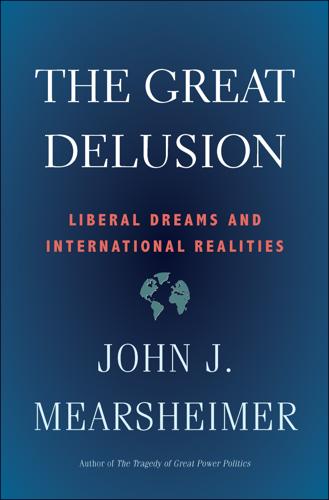
The Great Delusion: Liberal Dreams and International Realities
by
John J. Mearsheimer
Published 24 Sep 2018
Markus Fischer, “The Liberal Peace: Ethical, Historical, and Philosophical Aspects” (BCSIA Discussion Paper 2000-07, Kennedy School of Government, Harvard University, April 2000), p. 18. Fischer also talks about the “emptiness of liberalism” (p. 59). John Rawls is well aware of the charge that liberalism is “distraught by spiritual emptiness.” While he notes that “spiritual questions” are certainly important, he believes that dealing with them is not the government’s business; instead “it leaves them for each citizen to decide for himself or herself.” John Rawls, The Law of Peoples: With “The Idea of Public Reason Revisited” (Cambridge, MA: Harvard University Press, 1999), p. 127. 18. Stephen Holmes, Passions and Constraint: On the Theory of Liberal Democracy (Chicago: University of Chicago Press, 1995), p. 10. 19.
…
Specifically, they argue in Democracy for Realists: Why Elections Do Not Produce Responsive Government (Princeton, NJ: Princeton University Press, 2016) that the voting behavior of Americans can best be explained by their social and group identities, not by how each individual assesses a politician’s position on the issues he cares about most. 92. Most liberal theorists acknowledge that individuals have important social ties. John Rawls, for example, writes: “Each person finds himself placed at birth in some particular position in some particular society, and the nature of his position materially affects his life prospects.” John Rawls, A Theory of Justice (Cambridge, MA: Harvard University Press, 1971), p. 13. Moreover, in The Law of Peoples: With “The Idea of Public Reason Revisited” (Cambridge, MA: Harvard University Press, 1999), Rawls focuses directly on peoples, which is a synonym for nations.
…
The subsequent quotations in this paragraph are from ibid. Also see Axelrod and Keohane, “Achieving Cooperation under Anarchy,” pp. 232–33. Chapter 8. The Case for Restraint 1. Scholars such as John Rawls and Michael Walzer are aware of the crusading impulse built into liberal theory, and go to considerable lengths to argue against using force to make the world a better place. See Michael Walzer, Just and Unjust Wars: A Moral Argument with Historical Illustrations (New York: Basic Books, 2007); John Rawls, The Law of Peoples: With “The Idea of Public Reason Revisited” (Cambridge, MA: Harvard University Press, 1999). This discussion of Walzer’s views points up that initiating wars to spread liberal democracy around the world is at odds with just war theory, which is concerned with ruling offensive wars out of bounds except under highly restrictive circumstances, which do not include democracy promotion.
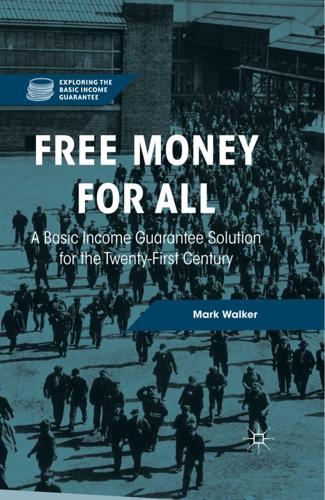
Free Money for All: A Basic Income Guarantee Solution for the Twenty-First Century
by
Mark Walker
Published 29 Nov 2015
As you begin to row towards one island chosen at random, the ghost of John Rawls appears and says, “You are rowing toward the wrong island, at least if you care about freedom. You should head to the island on your far left if you value your freedom and the freedom of society at large.” You ask, “Do you mean the one on the far left is B-island?” However, the ghost vanishes as you ask your question. While it is a shame that the eminent philosopher did not answer your question, still, you think it is best to take his advice rather than letting luck be your guide. After all, John Rawls was known as a kind and generous person. When you hit the shores of the far left island, it soon becomes apparent that you have landed on C-Island.
…
For example, under the present system in the United States, if one is laid off, then one may be entitled to unemployment insurance after a certain number of weeks. When unemployment insurance runs out, then one may be entitled to welfare after one proves to some government official that one is actively seeking work. Turning from practice to theory, welfare liberals are divided on the question of BIG. The most prominent welfare liberal is John Rawls. In his magisterial A Theory of Justice and other works, Rawls provides a defense of many aspects of the current welfare state.15 Like Marx, Rawls sees that capitalism has helped increase the material prosperity of society as a whole. However, according to Rawls, a laissez-faire capitalism is not justified.
…
Yet, at least since Karl Marx, the issue of distributive justice has eclipsed peace as being of paramount importance in political philosophy. In the nineteenth and early twentieth centuries, utilitarianism inspired many social and economic reforms in Great Britain. In analytic philosophy, distributive justice has been at the fore of political philosophical debate since the publication of John Rawls’s A Theory of Justice. However, the two subjects of distributive justice and peace are never too far apart. Plato realized that the question of who owns what could be the source of social unrest. He proposed that the idyllic state would be ruled by propertyless philosopher kings—only the governed would own wealth.
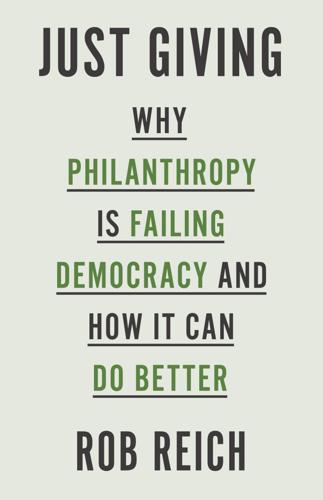
Just Giving: Why Philanthropy Is Failing Democracy and How It Can Do Better
by
Rob Reich
Published 20 Nov 2018
As in previous chapters, the terms “charitable” and “philanthropic” are used interchangeably here to indicate private transfers of money whose ultimate goal is to support some kind of public benefit. 9. See Thompson, “Representing Future Generations.” 10. See John Rawls, The Law of Peoples (Cambridge, MA: Harvard University Press, 1999), 106–107. 11. See John Rawls, A Theory of Justice (Cambridge, MA: Harvard University Press, 1971), 252–256, 288–292; John Rawls, Political Liberalism (New York: Columbia University Press, 2005), 274; Rawls, Law of Peoples, 170. 12. Rawls, Law of Peoples, 107. 13. Ibid., 107. 14. Ibid., 107. 15. Ibid., 108. 16. Ibid., 107. 17.
…
Whereas the latter should be limited or forbidden in the interest of intergenerational equality, the former should, under certain circumstances, be permitted or encouraged in the interest of intergenerational justice. Philanthropy, unlike the family, can play three important roles in promoting justice for future generations. It can, first, complement political institutions that aim to secure the reproduction of social capital over time. Second, it can supplement political institutions in fulfilling what John Rawls called the “just savings principle,” especially as a hedge against remote, low-probability but highly consequential risks (such as potentially cataclysmic natural disasters). Third, as developed in the previous chapter, the intergenerational existence and potential long-time-horizon outlook of private philanthropic foundations can counteract built-in features of short-termism and presentism in the democratic process. 1 Philanthropy as an Artifact of the State INSTITUTIONAL FORMS OF PHILANTHROPY The practice of philanthropy is as old as humanity.
…
In particular, we ask whether a liberal democracy may have good reasons, derived from a principle of intergenerational justice, to encourage private charitable transfers (while, by assumption, also having good reasons to limit or forbid transfers of wealth from parents to children). We argue that there are three main reasons why an intergenerational principle of just savings, such as that found in John Rawls’s work, may support policies aimed at encouraging private intergenerational charitable transfers.⁸ The first reason relates to the distinctive role that long-enduring philanthropic institutions can play to support the reproduction of a particular form of capital—social capital—over time. Since (1) the reproduction of this form of capital, at each generational stage is, we will argue, required by an intergenerational just savings principle, and since (2) private philanthropic entities may be better placed than other actors to support this reproductive function, we argue that (3) a state may have justice-based reasons to encourage private intergenerational charitable transfers through philanthropic entities, like foundations or alternative independent bodies (instead of transferring public funds to the next generation through centralized public funds).
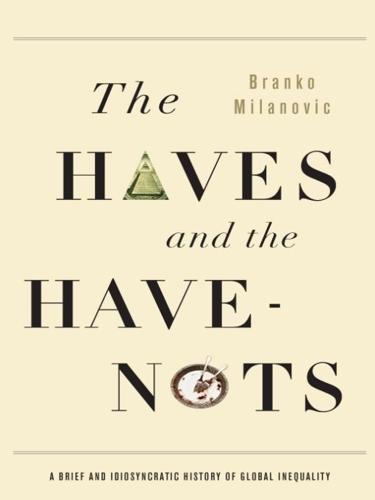
The Haves and the Have-Nots: A Brief and Idiosyncratic History of Global Inequality
by
Branko Milanovic
Published 15 Dec 2010
In addition to them, I am grateful to Tim Sullivan and Melissa Veronesi, my editors, who have shaped the organization of the book; Annette Wenda, who has carefully gone through every sentence; Michele Alacevich and Valentina Kalk, on whose substantive and aesthetic advice I have much depended; Gouthami Padam, who has worked with me for more than seven years; Shaohua Chen, whose assistance on Chinese household surveys was invaluable; Leif Wenar, to whose advice regarding issues of political philosophy and in particular the interpretation of John Rawls’s works I have frequently turned and who has given me excellent comments on several parts of the manuscript; and Slaheddine Khenissi, for his vast knowledge of the Arab and Muslim worlds. Of course, the responsibility for the opinions expressed in this book is solely my own. CHAPTER 1 ESSAY I Unequal People Inequality Among Individuals Within a Nation Until about the turn of the twentieth century, income inequality among individuals was subsumed under the topic of the functional distribution of national income—that is, how total income was split between large social classes (workers and capitalists).1 It was considered by many to be the key topic in political economy.
…
The great dream of Jeremy Bentham and John Stuart Mill, the fathers of utilitarianism, that an “objective” way of comparing different societies had been discovered, is probably dead. On the ruins of this dream was built the most famous recent attempt to provide some guidance on how to reconcile economic inequality and justice: that of John Rawls, an American political philosopher. Rawls, in enunciating his celebrated “difference principle” in A Theory of Justice published in 1971, argued that the justification for any departure from equality can be found only if it is needed to raise the absolute income of the poorest. In other words, the baseline position is that of complete economic equality among citizens.
…
As explains one of its key proponents, Thomas Nagel, “Justice is something we owe through our shared institutions only to those with whom we stand in a strong political relation. It is ... an associative obligation.”9 The political conception of distributive justice does not rule out humanitarian duty of assistance to foreigners, but it also does not impose on rich people and rich countries anything beyond that. Philosopher John Rawls offered a different view of why global inequality is immaterial. Rawls saw the most desirable global arrangement as the one where conditions from his Theory of Justice (see Essay I) are satisfied for each individual country; at the global level different rules hold, and the duty of assistance of rich countries is limited in extent and time (see Vignette 3.8).
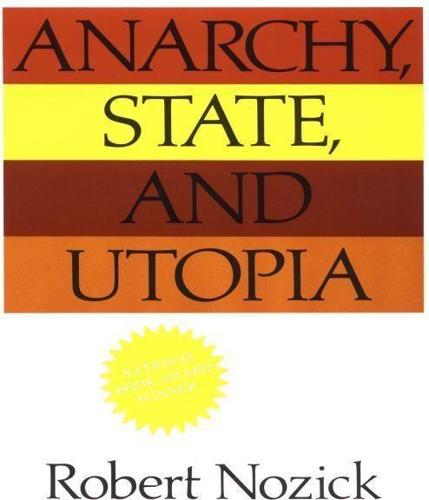
Anarchy State and Utopia
by
Robert Nozick
Published 15 Mar 1974
CHAPTER 3 / Moral Constraints and the State 1 Here and in the next section I draw upon and amplify my discussion of these issues in footnote 4 of “On the Randian Argument,” The Personalist, Spring 1971. 2 For a clear statement that this view is mistaken, see John Rawls, A Theory of Justice (Cambridge, Mass.: Harvard University Press, 1971), pp. 30, 565-566. 3 Which does which? Often a useful question to ask, as in the following:—“What is the difference between a Zen master and an analytic philosopher?” —“One talks riddles and the other riddles talks.” 4 Groundwork of the Metaphysic of Morals. Translated by H. J. Paton, The Moral Law (London: Hutchinson, 1956), p. 96. 5 See John Rawls, A Theory of Justice, sects. 5, 6, 30. 6 See Gilbert Harman, “The Inference to the Best Explanation,” Philosophical Review, 1965, pp, 88-95, and Thought (Princeton, N.J.: Princeton University Press, 1973), chaps. 8, 10. 7 See Judith Jarvis Thomson, “A Defense of Abortion,” Philosophy and Public Affairs, 1, no. 2 (Fall 1971), 52-53.
…
Kenneth Arrow, “Economic Equilibrium,” International Encyclopedia of the Social Sciences, vol. 4, p. 381. 3 See John Rawls, A Theory of Justice (Cambridge, Mass.: Harvard University Press, 1971), chap. 9, sect. 79, “The Idea of a Social Union,” and Ayn Rand, Atlas Shrugged (New York: Random House, 1957), pt. III, chaps. 1, 2. 4 See Richard Lipsey and Kelvin Lancaster, “The General Theory of Second Best,” Review of Economic Studies, 24 (December 1956), which has stimulated an extensive literature. 5 Compare John Rawls, Theory of Justice, sect. 63, n. II. It is not clear how extensively Rawls’ later text would have to be revised to take this point explicitly into account. 6 Some theories underlying such imposition are discussed by J.
…
EQUALITY EQUALITY OF OPPORTUNITY SELF-ESTEEM AND ENVY MEANINGFUL WORK WORKERS’ CONTROL MARXIAN EXPLOITATION VOLUNTARY EXCHANGE PHILANTHROPY HAVING A SAY OVER WHAT AFFECTS YOU THE NONNEUTRAL STATE HOW REDISTRIBUTION OPERATES CHAPTER 9 - Demoktesis CONSISTENCY AND PARALLEL EXAMPLES THE MORE-THAN-MINIMAL STATE DERIVED HYPOTHETICAL HISTORIES PART III - Utopia CHAPTER 10 - A Framework for Utopia THE MODEL THE MODEL PROJECTED ONTO OUR WORLD THE FRAMEWORK DESIGN DEVICES AND FILTER DEVICES THE FRAMEWORK AS UTOPIAN COMMON GROUND COMMUNITY AND NATION COMMUNITIES WHICH CHANGE TOTAL COMMUNITIES UTOPIAN MEANS AND ENDS HOW UTOPIA WORKS OUT UTOPIA AND THE MINIMAL STATE NOTES BIBLIOGRAPHY INDEX Material quoted from Lawrence Krader, Formation of the State.© 1968, pp 21-22, reprinted by permission of Prentice-Hall, Inc., Englewood Cliffs, New Jersey. Excerpts from A Theory of Justice by John Rawls are reprinted by permission of the publishers, Cambridge, Mass.: The Belknap Press of Harvard University Press and Oxford: The Clarendon Press, and are copyright © 1971 by the President and Fellows of Harvard College. Copyright © 1974 by Basic Books, Inc. Library of Congress Catalog Card Number. 73-91081 ISBN: 0-465-00270-6 (cloth) ISBN: 0-465-09720-0 (paper) Printed in the United States of America DESIGNED BY VINCENT TORRE DHAD 02 03 04 05 49 48 47 46 45 44 43 42 41 40 PREFACE INDIVIDUALS have rights, and there are things no person or group may do to them (without violating their rights).
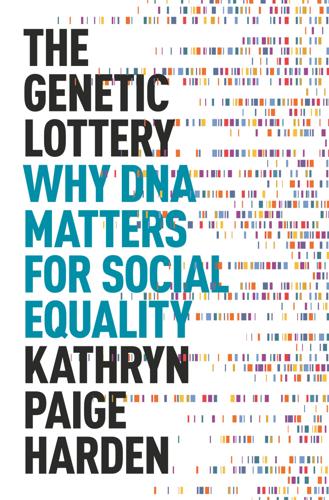
The Genetic Lottery: Why DNA Matters for Social Equality
by
Kathryn Paige Harden
Published 20 Sep 2021
There are two big ideas crammed into these few sentences: (1) that people do not deserve economic disadvantages simply because they happened to inherit a particular combination of DNA, and (2) that society should be organized so that it benefits the least advantaged members of society. It’s disorienting to come across these ideas in The Bell Curve, because they sound like they come straight out of a very different book: A Theory of Justice, by the egalitarian political philosopher John Rawls. In A Theory of Justice, Rawls used the metaphor of the “natural lottery” to describe how people differ in their initial positions in life. As I’ll describe in chapter 2, a lottery is a perfect metaphor for describing genetic inheritance: the genome of every person is the outcome of nature’s Powerball.
…
… Are “genetic” differences more fixed and irreversible than “environmental” differences? To argue that we should be upset by cultural-familial retardation, while cheerfully accepting the genetically determined (but easily preventable) PKU, would be obviously absurd. Kamin’s rhetorical questions—“Why should a liberal not be upset?”—mirror the arguments of the political philosopher John Rawls, who pointed out that if one found inequalities stemming from environmental luck disturbingly unfair, one might also find inequalities stemming from genetic luck just as disturbing:24 Once we are troubled by the influence of either social contingencies or natural chance on the determination of distributive shares, we are bound, on reflection, to be bothered by the influence of the other.
…
As Elizabeth Alexander put it, “the Deaf … want to make claims on the hearing in a manner that expresses the dignity they see in their lives and community, rather than in a manner that appeals to pity for their condition” (emphasis added).32 On the whole, the relationship between the genetics of deafness and the politics of Deafness is consistent with the ideas of the political philosopher John Rawls, who argued:33 The natural distribution is neither just nor unjust.… These are simply natural facts. What is just and unjust is the way that institutions deal with these facts. Aristocratic and caste societies are unjust because they make these contingencies the ascriptive basis for belonging to more or less enclosed and privileged social classes.
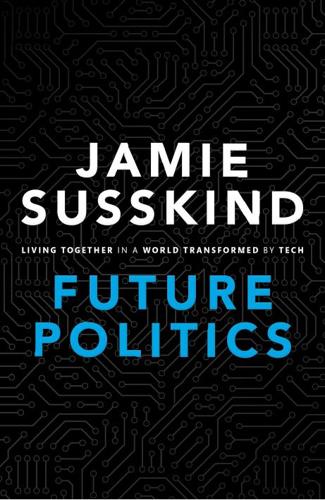
Future Politics: Living Together in a World Transformed by Tech
by
Jamie Susskind
Published 3 Sep 2018
Kennedy OUP CORRECTED PROOF – FINAL, 28/05/18, SPi РЕЛИЗ ПОДГОТОВИЛА ГРУППА "What's News" VK.COM/WSNWS FOURTEEN Algorithms of Distribution ‘A well-ordered society is . . . one that is effectively regulated by a public conception of justice’ John Rawls, A Theory of Justice (1971) The pursuit of justice can inspire us to great acts of sacrifice and devotion.The sight of injustice can move us to unspeakable sadness and rage. The political theorist John Rawls called justice the ‘first virtue’ of social institutions.1 Martin Luther King taught that it lay at the end of the arc of the moral universe. The ideal of justice has never been the exclusive preserve of politics or law.
…
These are the sorts of questions that political theorists try to answer. The discipline has a long and rich history. From Plato and Aristotle in the academies of ancient Greece to Thomas Hobbes and Jean-Jacques Rousseau in the tumult of early modern Europe, to the giants of twentieth-century political thought like Hannah Arendt and John Rawls, western political thinkers have long tried to clarify and critique the world around them, asking why it is the way it is—and whether it could or should be different. For several reasons, political theory is well-suited to examining the interplay of technology and politics. First, the canon of political thought contains wisdom that has outlived civilizations.
…
As hacking grows in political importance, it would be quite naïve to entrust it entirely to the judgment of hackers themselves, particularly (as appears to be the case) if the work of hacking itself is becoming increasingly automated.53 As with all important political activity, we’ll need to develop an acceptable ethical framework by which the work of political hackers can be judged. Drawing on the ideas of John Rawls, for instance, we might say that:54 • Hacks can only be justified in the public interest, not the interests of the hacker or any other party. • Hacks affecting policies that were decided democratically should be limited to cases of ‘substantial and clear injustice’. • Hacks should be proportionate to the injustice they seek to remedy, going no further than necessary to achieve their aim. • Hacks should never cause physical harm to persons. • As far as possible, the consequences of hacks should be public and visible rather than ‘covert or secretive’. • Hacks should be used sparingly, even when justified. • In a democracy, hacks should be a last resort after efforts made in ‘good faith’ through the proper procedural channels.
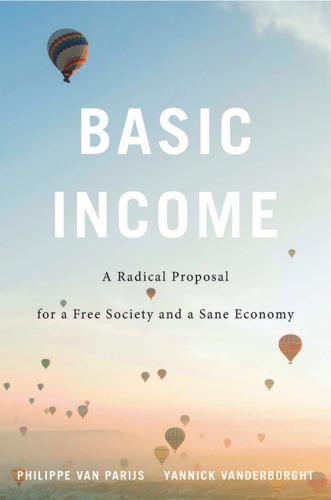
Basic Income: A Radical Proposal for a Free Society and a Sane Economy
by
Philippe van Parijs
and
Yannick Vanderborght
Published 20 Mar 2017
As stressed in chapter 1, �because of its freedom from obligation, a basic income contributes to weakening the cash nexus, to de-�commodifying �labor power, to boosting socially useful yet unpaid activities, to protecting our lives against forced mobility and destructive globalization, and to emancipating us from the despotism of the market. John Rawls Versus the Malibu Surfers The conception of distributive justice appealed to in the previous section is one that belongs to a �family of conceptions commonly labeled liberal-� egalitarian. It is liberal in the sense that it does not rest on a par�tic�u�lar conception of the good life but instead is committed to respecting equally the vari�ous conceptions of the good life that are pres�ent in our pluralist socie�ties.30 It is egalitarian in the sense of taking as a baseline an equal distribution of the resources �people have at their disposal in order to try to realize their conceptions of the good life.
…
It can also be legitimate Â�because of efficiency considerations; justice is about sustainably maximizing the prospects of those Â� with the worst prospects, not about equalizing prospects even at everyÂ�one’s expense. The most influential theory that fits this characterization is the one proposed by John Rawls, founding Â�father of the liberal-Â�egalitarian tradition and of conÂ�temporary poÂ�litiÂ�cal philosophy, in his 1971 A Theory of Justice. Does Rawls’s theory also provide a justification for an unconditional basic income? Yes, no, and perhaps. At first sight, the answer is an obvious yes. The core of Rawls’s theory consists of three princiÂ�ples hierarchically ordered.
…
The more efficient the targeting, the more the recipients are identified as being Â�really incapable of providing for themselves and are accordingly stigmatized.32 Moreover, both in an earlier article and in A Theory of Justice, Rawls picked up explicÂ�itly the (then fairly novel) concept of a “negative income tax” to illustrate how his princiÂ�ples of justice could shape the distributive branch of the institutions of a just society, at a time when that concept was sometimes used in a broad sense that covered the so-Â�called demogrant—Â�that is, an unconditional basic income.33 Consequently, the Rawlsian case for basic income seems overwhelming. It just needs spelling out.34 Yet, John Rawls himself did not agree. He wrote that “Â�those who surf all day off Malibu must find a way to support themselves and would not be Â�entitled to public funds.”35 According to the most straightforward interpretation of Rawls’s difference princiÂ�ple, as presented above, Â�people without earnings, Â�whether voluntarily or not, are among the least advantaged and hence entitled to some benefit.
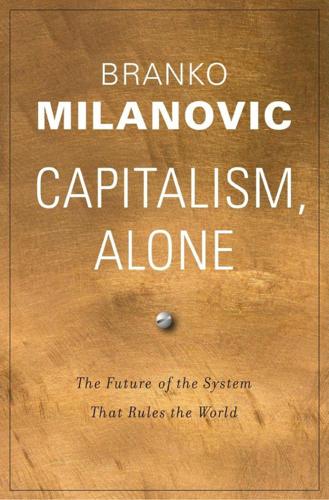
Capitalism, Alone: The Future of the System That Rules the World
by
Branko Milanovic
Published 23 Sep 2019
Capitalism has been remarkably successful in imparting its objectives to people, prompting or persuading them to adopt its goals and thus achieving an extraordinary concordance between what capitalism requires for its expansion and people’s ideas, desires, and values. Capitalism has been much more successful than its competitors in creating the conditions that, according to the political philosopher John Rawls, are necessary for the stability of any system: namely, that individuals in their daily actions manifest and thus reinforce the broader values upon which the social system is based. Capitalism’s mastery of the world has been achieved, however, with two different types of capitalism: the liberal meritocratic capitalism that has developed incrementally in the West over the past two hundred years (discussed in Chapter 2), and the state-led political, or authoritarian, capitalism that is exemplified by China but also exists in other parts of Asia (Singapore, Vietnam, Burma) and parts of Europe and Africa (Russia and the Caucasian countries, Central Asia, Ethiopia, Algeria, Rwanda) (discussed in Chapter 3).
…
I define capitalism in the fashion of Karl Marx and Max Weber, as the system where most production is carried out with privately owned means of production, capital hires legally free labor, and coordination is decentralized. In addition, to add Joseph Schumpeter’s requirement, most investment decisions are made by private companies or individual entrepreneurs.1 Definition of liberal meritocratic capitalism The terms “meritocratic” and “liberal” come from the definitions of various forms of equality that John Rawls lays out in A Theory of Justice (1971). “Meritocratic equality” is a system of “natural liberty,” in which careers are “open to talent”—that is, there are no legal obstacles preventing individuals from achieving a given position in society. It fully accepts inheritance of property. “Liberal equality” is more egalitarian because it corrects, in part, for inheritance of property by imposing high taxes on inheritance and includes free education as a way to reduce the intergenerational transmission of advantages.
…
Moreover, the perpetuation of an upper class is made possible through its ability to transfer, often tax-free, many assets across generations. Thus, a tax on inheritance also has an important role to play in reducing inequality of opportunity. It is important to situate the inheritance tax within an intellectual and ideological framework. John Rawls, in his taxonomy of various equalities, introduces taxation of inheritance as the first (and lowest) complement to equality before the law (1971, 57). In Rawls’s lowest state of equality, there are no legal constraints to people achieving the same position in life. This level of equality satisfies Rawls’s first principle of justice, namely, that everyone has the same political liberty regardless of economic or social class.
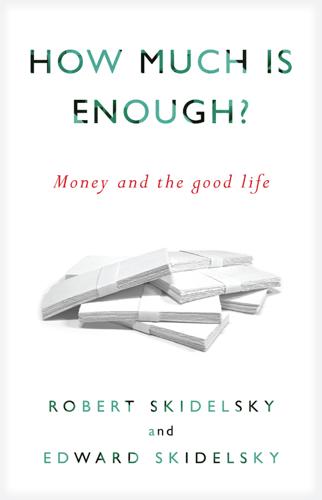
How Much Is Enough?: Money and the Good Life
by
Robert Skidelsky
and
Edward Skidelsky
Published 18 Jun 2012
We are not proposing that money-making should be banned, as it was in the Soviet Union, but that “the game” should be subject to rules and limitations that do not move society away from the good life. The last, and deepest, objection to our project concerns its supposedly illiberal character. A liberal state, John Rawls and others have taught us to believe, embodies no positive vision but only such principles as are necessary for people of different tastes and ideals to live together in harmony. To promote, as a matter of public policy, a positive idea of the good life is by definition illiberal, perhaps even totalitarian.
…
The last few decades, however, have seen the triumph of two movements of thought whose combined tendency has been to erode the very language of “fair” and “foul”—modern liberal theory on the one hand, neoclassical economics on the other. Between them, these two movements have established a virtual monopoly on public discourse, forcing older ethical traditions into a marginal, counter-cultural position. Ever since the publication of John Rawls’s A Theory of Justice in 1971, liberal thinkers have insisted on public neutrality between rival conceptions of the good.* The state, they claim, should not throw its weight behind this or that ethical outlook; rather, it should leave citizens free to follow their own moral lights, insofar as is compatible with a similar freedom for others.
…
But the concept of respect itself is universal, as is shown by our ability to respond sympathetically to depictions of humiliation in stories from around the world.3 “It is ultimately the ‘same’ human being,” writes German philosopher Ernst Cassirer, “who meets us again and again in a thousand manifestations and in a thousand masks.”4 We have, then, the materials for a universal inquiry into the good life, transcending limits of time and place. We are not doomed to a chauvinistic “clash of civilizations,” mediated only by the rules of the market or international treaties. What is the relationship of our enterprise to other recent discussions? In A Theory of Justice and subsequent works, John Rawls outlined a category of “primary goods,” goods that a rational individual will want whatever else he wants, “since they are in general necessary for the framing and the execution of a rational plan of life.”5 Rawls’s list of primary goods includes civic and political liberties, income and wealth, access to public office, and “the social bases of self-respect.”
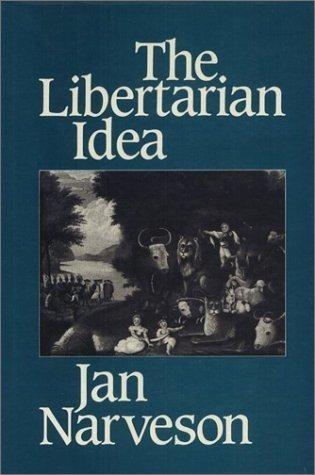
Libertarian Idea
by
Jan Narveson
Published 15 Dec 1988
People are slowly providing, day by day, material for The Grey Book of Allegedly Liberal Democracy, in which the figures won‟t concern the number shot in cellars or dying of cold, starvation, and the like in concentration camps, but rather, about people imprisoned for no good reason, taxed for any number of reasons, almost none of which make any real sense, and just generally required to do all sorts of things that they‟d rather not have done, and the doing of which would have caused no discernible hurt to anyone. Contemporary philosophers have, or so they think, precious little influence. But the example of Marx shows that it may not be so. Perhaps John Rawls will, in his much more benign way, come to have as much influence as Marx; indeed, in the past few decades he has probably had a good deal more. The Libertarian Idea devotes less space than the topic deserves to the incoherences of the prevailing mix of moral and political ideas of our time — ideas that are, I think, exerting an influence that will also leave hundreds of millions of people worse off than they might have been, as the new century and the new millennium unroll before us.
…
And since, moreover, a defensibly strong Lockean proviso on the formation and retention of economic systems will rule that no one should be worse off in the given economic system than he would have been under some unignorable alternative, it almost certainly follows that not only capitalism but every economic system will fail to satisfy a defensibly strong Lockean proviso, and that one must therefore abandon the Lockean way of testing the legitimacy of economic systems.”15 69 Then we have the suggestion that “one different alternative is John Rawl‟s difference principle, in its strict meaning . . . {which is] satisfied by a given economic system only if those who are worst off under it are not more badly off than the worst off would be under any alternative to it. . . . when it is satisfied one may respond to the complaint of the worst-off group by pointing out that others would suffer at least as much as they do in any dispensation in which they were better off than they actually are.”
…
But the trouble is, it is also true that 90 percent of the people plainly can be wrong, about all sorts of things: why not about this, then?—Especially when the effect of their opinion is to cram something down the craws of the remaining 10 percent. . . . ! Reflective Equilibrium Major impetus for integrating appeals to intuition into moral theory came from John Rawls‟s celebrated treatise, A Theory of Justice.5 There he develops, and has been followed by others6 in further developing, a method called “reflective equilibrium”. The idea here is that one tries to develop a theory that is the best mix of one‟s considered beliefs and such theory as one can find.
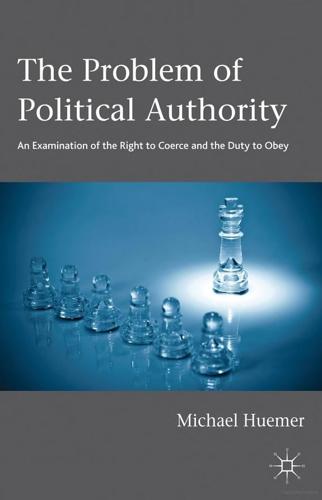
The Problem of Political Authority: An Examination of the Right to Coerce and the Duty to Obey
by
Michael Huemer
Published 29 Oct 2012
There is no reason to think that all reasonable persons could agree on a social contract. 3.3.3 The validity of hypothetical consent The reasonableness of a contract does not make it obligatory for parties to accept it nor render it permissible to force parties to do so. 3.4 Hypothetical consent and ethical constraints 3.4.1 Rawls’s contract theory as an account of authority John Rawls, the most influential political philosopher, advances a hypothetical social contract theory. 3.4.2 Could agreement be reached? There is no reason to think agreement could be reached in Rawls’s hypothetical scenario. 3.4.3 The validity of hypothetical consent, part 1: the appeal to fair outcomes The fairness of a contract does not make it obligatory for parties to accept it nor make it permissible to force parties to do so. 3.4.4 The validity of hypothetical consent, part 2: sufficient conditions for reliable moral reasoning Rawls’s scenario embodies some necessary conditions, not sufficient conditions, for reliable moral reasoning.
…
But, he concedes, there is a substantial intermediate range in which any principle could reasonably be rejected, either by the poor or by the wealthy; hence, no unanimous agreement would be possible with respect to the principles of distributive justice.6 Nagel goes on to raise the possibility that we might alter our motivations in such a way that the conditions for legitimacy would become satisfiable in the future. In his later work, John Rawls takes a view similar to Nagel’s view of the conditions for political legitimacy, though he seems more sanguine about the prospects for agreement. Rawls’s optimism, however, is without justification.7 He describes at length how it is conceivable that his own theory of justice should be the focus for a consensus among individuals with differing religious, moral, and philosophical views.
…
One must begin by ascribing some special moral status to the state to believe the state morally entitled to force an arrangement on individuals merely because they would be unreasonable to reject the arrangement. 3.4 Hypothetical consent and ethical constraints 3.4.1 Rawls’s contract theory as an account of authority John Rawls is, by far and without question, the most influential political philosopher of the last hundred years. As a rough indicator, a search for the keyword ‘Rawls’ in the Philosopher’s Index yields more than 2,000 hits for articles and books published between 1990 and 2011. He is chiefly known for the hypothetical social contract theory of A Theory of Justice.
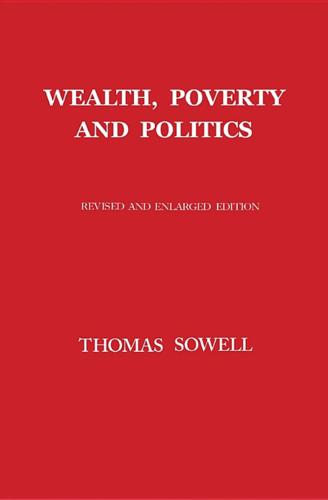
Wealth, Poverty and Politics
by
Thomas Sowell
Published 31 Aug 2015
Chapter 14: Implications and Prospects Epigraph: Paul Johnson, The Quotable Paul Johnson: A Topical Compilation of His Wit, Wisdom and Satire, edited by George J. Marlin, et al (New York: Farrar, Strauss and Giroux, 1994), p. 138. 1. John Rawls, A Theory of Justice (Cambridge, Massachusetts: Harvard University Press, 1971), p. 73. 2. Ibid., p. 74. 3. Ibid., pp. 79–80. 4. Thomas Piketty, The Economics of Inequality, translated by Arthur Goldhammer (Cambridge, Massachusetts: Harvard University Press, 2015), pp. 1–2. 5. Ibid., p. 1. 6. John Rawls, A Theory of Justice, pp. 79–80, 82–83. 7. Herman Kahn, World Economic Development: 1979 and Beyond (Boulder, Colorado: Westview Press, 1979), pp. 60–61. 8.
…
Moreover, unlike economic inequalities, which are compatible with rising standards of living for all, a concentration of power, which is inherently relative, means that an increase of power for some means a loss of freedom for others— the latter usually being a far larger number of people. The concentration of power being sought by redistributionists is usually as completely ignored as the productivity differences behind differences in income and wealth. Indeed, a whole vocabulary of camouflage words obscures the concentration of power involved. Thus Professor John Rawls, for example, refers repeatedly to how “society” should “arrange” certain economic outcomes,59 when only the government has the power to force millions of people to accept a third party’s overriding of the transactions terms agreed to by transactors dealing directly with each other. This overriding of transactions terms may be done either directly or by confiscating a portion of the earnings of whoever’s income is deemed to be “too much” by third parties.
…
While many beliefs cannot survive a thorough examination of facts, there are also moral considerations which require considerations that extend beyond facts, though these considerations cannot defy both facts and logic without becoming simply arbitrary dogmas. One of the dominant moral concerns of our times has been what is called “social justice.” “Social Justice” Perhaps the best-known contemporary exposition of moral principles relevant to differences in income and wealth has been that in John Rawls’ influential treatise A Theory of Justice. Professor Rawls’ conception of “social justice” in the economy is that “those who are at the same level of talent and ability, and have the same willingness to use them, should have the same prospects of success regardless of their initial place in the social system, that is, irrespective of the income class into which they are born.”1 Perhaps few Americans or other Western peoples would object to this ideal, even if they might disagree as to how or whether it can be put into practice.
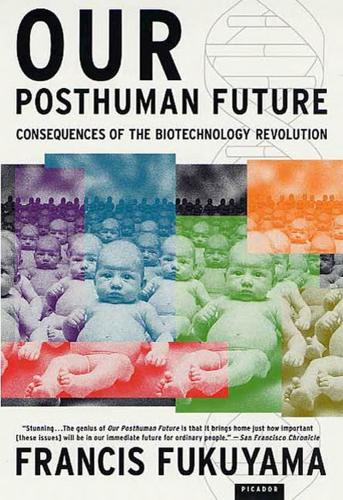
Our Posthuman Future: Consequences of the Biotechnology Revolution
by
Francis Fukuyama
Published 1 Jan 2002
Kant himself said that his moral rules would apply to any rational agents, even if they were not human beings; society could in fact be composed of “rational devils.” Following Kant, subsequent deontological theories begin from the premise that there can be no substantive theory about human ends, whether drawn from human nature or any other source. According to John Rawls, for example, in a liberal state, “systems of ends are not ranked in value”;19 individual “life plans” can be distinguished by their greater or lesser rationality, but not by the nature of the goals or ends they set.20 This is the view that has become embedded in a good deal of thinking on contemporary U.S. constitutional law.
…
This assertion of Kant’s already makes several strong assumptions about human nature: that humans are rational creatures, that they benefit from and enjoy the use of their rationality, and that they may develop this rationality over time. The latter implies the need for education, and for a state that is not neutral on the question of whether citizens can choose dogmatic ignorance or education. The same is true of contemporary Kantians like John Rawls, whose theory of justice explicitly sidesteps any discussion of human nature and seeks to establish a set of minimal moral rules that would apply to any group of rational agents, based on the so-called original position. That is, we are to select rules of just distribution from behind a “veil of ignorance,” where we don’t know what our actual position in society is.
…
The philosopher Peter Sloterdijk raised a storm of protest in 1999 when he suggested that it will soon be impossible for people to refuse the power of selection that biotechnology provides them, and that the questions of breeding something “beyond” man that were raised by Nietzsche and Plato could no longer be ignored.19 He was condemned by the sociologist Jürgen Habermas, among others, who in other contexts has also come out against human cloning.20 On the other hand, there are some on the Left who have begun to make the case for genetic engineering.21 John Rawls argued in A Theory of Justice that the unequal distribution of natural talents was inherently unfair. A Rawlsian should therefore want to make use of biotechnology to equalize life chances by breeding the bottom up, assuming that prudential considerations concerning safety, cost, and the like would be settled.
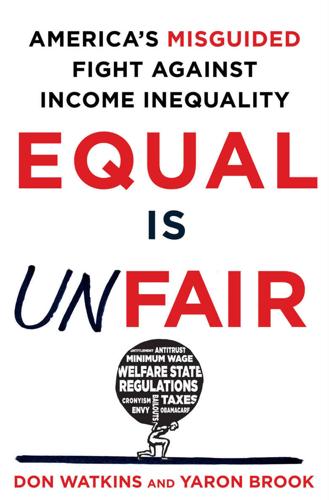
Equal Is Unfair: America's Misguided Fight Against Income Inequality
by
Don Watkins
and
Yaron Brook
Published 28 Mar 2016
The “Equality of Opportunity” Ruse Today it is fashionable to speak, not of opportunity, but of equality of opportunity. This phrase is seldom defined, and comes in a variety of flavors, but the most influential conception of equality of opportunity comes from the late egalitarian philosopher John Rawls. For Rawls, equality of opportunity does not refer simply to the absence of legal barriers to success (e.g., Jim Crow laws), but to equality of initial chances of success as well. In the race of life, according to the Rawlsian view, everyone should have a fair shot at success; just as a track meet would be unfair if some people started halfway to the finish line, so it’s critical that the government help even out the opportunities we encounter in life—to level the playing field by taking away advantages from the fortunate (e.g., huge inheritance taxes) and giving advantages to the less fortunate (e.g., government provision of health care and education).49 This idea of equality of opportunity is appealing to many people, even those untroubled by unequal economic outcomes.
…
Whatever the original meaning of that statement, Piketty’s own view is that economic inequalities must be justified by reference to some higher “public good.”17 Later in the book he writes, “One reasonable interpretation [of the phrase “based on common utility”] is that social inequalities are acceptable only if they are in the interest of all and in particular of the most disadvantaged social groups. . . . The ‘difference principle’ introduced by the U.S. philosopher John Rawls in his Theory of Justice is similar in intent.”18 This means, for instance, that if you earn a million dollars when most people make less than $100,000, you have to prove not only that your fortune was honestly earned, but that it benefits society (or the least well-off in society) to let you keep it.
…
Don’t you have a right to dedicate your efforts to making yourself as rich and successful as possible—regardless of how much inequality this leads to? The answer we get from the alarmists is a resounding “no.” Why not? For that, we need to turn to the philosopher Piketty cites in support of his theory: the late Harvard philosopher John Rawls. Most inequality critics today are economists, journalists, politicians, policy wonks, or political commentators. But most of their ideas are derived from egalitarian philosophers: Rousseau, Marx, and their modern heirs—people like Nagel, Dworkin, Singer, Cohen, and above all Rawls. Whatever their differences, these thinkers have a distinctive view of justice and of its implications for political and economic issues, one that shapes the thinking of the inequality alarmists at the deepest levels.
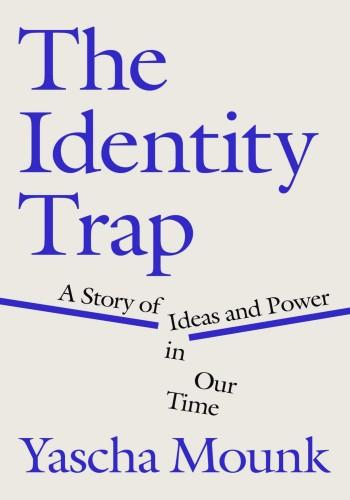
The Identity Trap: A Story of Ideas and Power in Our Time
by
Yascha Mounk
Published 26 Sep 2023
Electronic version of the English translation by Elizabeth Fraser Chamberlain, published in 1918. GO TO NOTE REFERENCE IN TEXT “Is not the same sun”: Abdu’l-Bahá, “Abdu’l-Bahá on Divine Philosophy.” GO TO NOTE REFERENCE IN TEXT consensus among critics: John Rawls has used the idea of an “overlapping consensus” as a term of art in his defense of political liberalism. See John Rawls, Political Liberalism (New York: Columbia University Press, 1993), as well as John Rawls, “The Idea of an Overlapping Consensus,” Oxford Journal of Legal Studies 7, no. 1 (1987): 1–25. My use of the term here is more colloquial. GO TO NOTE REFERENCE IN TEXT deformed their scholarship: Private communication.
…
GO TO NOTE REFERENCE IN TEXT highest GDP per capita: Malta, Iceland, Macau, San Marino, Brunei, and Luxembourg all have populations below four million. See GDP per capita by country 2023, accessed Jan. 29, 2023, worldpopulationreview.com/country-rankings/gdp-per-capita-by-country. (Data aggregated from World Economic Outlook, Oct. 2022.) GO TO NOTE REFERENCE IN TEXT resources they need: For related arguments, see John Rawls on “primary goods” in John Rawls, A Theory of Justice (Cambridge, Mass.: Harvard University Press, 1971); as well as Amartya Sen and Martha Nussbaum on capabilities: Amartya Sen, “Human Rights and Capabilities,” Journal of Human Development 6, no. 2 (2005): 151–66; and Martha C. Nussbaum, “Capabilities as Fundamental Entitlements: Sen and Social Justice,” in Capabilities Equality, ed.
…
For an intellectual history more focused on the permutations of the word’s meaning, see Helena Rosenblatt, The Lost History of Liberalism: From Ancient Rome to the Twenty-first Century (Princeton, N.J.: Princeton University Press, 2018). For classic texts in the liberal tradition, see, for example, Benjamin Constant, The Liberty of Ancients Compared with That of Moderns (1819); and John Rawls, Political Liberalism (New York: Columbia University Press, 1993). For recent defenses from a philosophical perspective, see Francis Fukuyama, Liberalism and Its Discontents (New York: Farrar, Straus and Giroux, 2022); and from an empirical perspective, Deirdre McCloskey, Why Liberalism Works: How True Liberal Values Produce a Freer, More Equal, Prosperous World for All (New Haven, Conn.: Yale University Press, 2019).
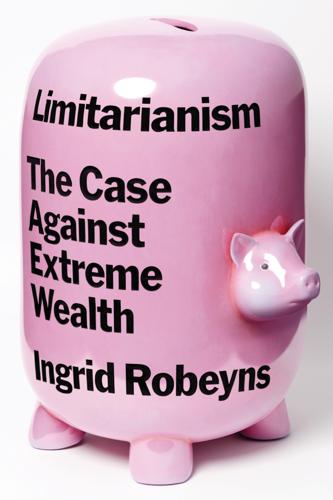
Limitarianism: The Case Against Extreme Wealth
by
Ingrid Robeyns
Published 16 Jan 2024
It is ultimately luck, as well as biases in the way humans judge each other, that decides who triumphs in their industry and reaps the top earnings that come with it.18 There is a second, much more fundamental problem with the argument that high pay can be justified because it tracks talent and performance, and that leads to a deeper philosophical question: why do we think that rewards should track talent or performance? Why should these be the best criteria for determining a fair financial reward? In the case of talent, we again encounter the issue that our innate skills are not something for which we can claim credit. Rather, as John Rawls, the most influential political philosopher of the twentieth century, put it, they are part of “the natural lottery”—what the chance encounter of one spermatozoid with one oocyte/human egg cell has given you in terms of genetic material. Sure, natural talents have to be nurtured and developed after birth.
…
Atkinson, “On the Measurement of Poverty,” Econometrica 55:4 (1987), pp. 749–64; Polly Vizzard, Poverty and Human Rights (Oxford: Oxford University Press, 2006); Jonathan Wolff and Avner De-Shalit, Disadvantage (Oxford: Oxford University Press, 2007); and Savage, The Return of Inequality, pp. 34–42. 34. There is a vast literature in contemporary political philosophy arguing why inequality is morally and politically very important. See, for example, John Rawls, A Theory of Justice (Cambridge, MA: Harvard University Press, 1971); Amartya Sen Inequality Reexamined (Cambridge MA: Harvard University Press, 1992); Elizabeth Anderson, “What is the Point of Equality?” Ethics 109:2 (1999), pp. 287–337; Anne Philips, Which Inequalities Matter? (Cambridge: Polity Press, 1999); G.
…
Many people have been excluded from the social contract: they have suffered from settler or colonial oppression, or they have been treated as second-class citizens, even within ostensibly democratic societies. All these oppressed and marginalized groups could rightly argue that the current social contract is not one of their own making, and demand a contract with fairer terms—one in which a democratic government truly fulfils its promise. In a certain sense, this is what John Rawls, the most influential American political philosopher of the twentieth century, believed. He argued that we should decide about the rules of society from behind a “veil of ignorance”—not knowing who we would turn out to be. This thinking device would ideally prompt us to design rules that are fair and impartial.
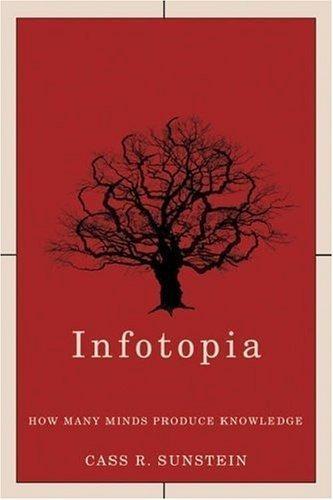
Infotopia: How Many Minds Produce Knowledge
by
Cass R. Sunstein
Published 23 Aug 2006
When there are many who contribute to the process of deliberation, each can bring his share of goodness and moral prudence . . . some appreciate one part, some another, and all together appreciate all.”7 Here, then, is a clear suggestion that many minds, deliberating together, may improve on “the quality of the few best.” More recently, John Rawls wrote of the same possibility: “The benefits from discussion lie in the fact that even representative legislators are limited in knowledge and the ability to reason. No one of them knows everything the others know, or can make all the same inferences that they can draw in concert. Discussion is a way of combining information and enlarging the range of arguments.”8 Rawls is alert to the dispersed nature of knowledge and the possibility that deliberation among diverse people can have significant benefits.
…
Ted Sorensen, Kennedy (New York: HarperCollins, 1966), 343. 5. Arthur Schlesinger Jr., A Thousand Days (New York: Mariner Books, 1965), 258–59. 6. See David Schkade et al., “Deliberating about Dollars: The Severity Shift,” Columbia Law Review 100 (2000): 101. 7. Aristotle, Politics, trans. E. Barker (London: Oxford University Press, 1972), 123. 8. John Rawls, A Theory of Justice (Cambridge, MA: Belknap Press, 1971), 358–59. 9. See James Madison, The Record of the Federal Convention of 1787, ed. Max Ferrand (New Haven: Yale University Press, 1911). 10. Herbert Storing, ed., The Complete Anti-Federalist, vol. 2 (Chicago: University of Chicago Press, 1981), 269. 11.
…
See Duncan Watts, “The Kerry Cascade,” available February 24, 2004, at http://slate.msn.com/id/2095993/. 65. Perspectives on skepticism vary widely. See generally David O. Brink, Moral Realism and the Foundations of Ethics (New York: Cambridge University Press, 1989); Gilbert Harmon and Judith Jarvis Thompson, Moral Relativism and Moral Objectivity (Cambridge, UK: Blackwell, 1996); John Rawls, A Theory of Justice (Cambridge, MA: Belknap Press, 1971), 48–53; Bernard Williams, “Interlude: Relativism,” in Morality: An Introduction to Ethics (New York: Harper & Row, 1972), 20–26. Notes to Pages 93–99 / 245 66. See Duncan Watts, “The Kerry Cascade” (Feb. 24, 2004), available at http://www.slate.com/id/2095993 67.
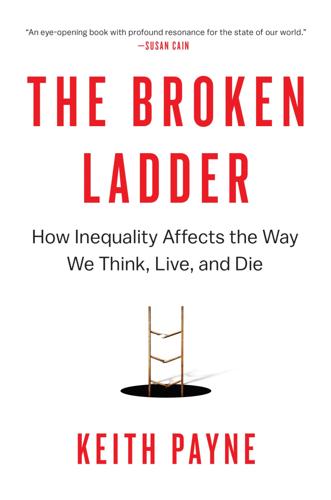
The Broken Ladder
by
Keith Payne
Published 8 May 2017
With constant care, John recovered—but not before he’d passed the infection to his younger brother, Bobby. Bobby was less fortunate; he died before his sixth birthday. A year later young John was bedridden again, this time with pneumonia. Again he recovered. But now he passed the infection to his two-year-old brother, Tommy. Again, the younger boy died. John Rawls grew up to become the most important political philosopher of the twentieth century. His biographer argues that the heartbreaking deaths of his brothers were the most influential events of Rawls’s life. Maybe his younger siblings were less hardy than John; maybe they were simply less lucky. Rawls himself was endowed not only with a strong immune system, but also with a brilliant intellect and unwavering discipline.
…
Rawls himself was endowed not only with a strong immune system, but also with a brilliant intellect and unwavering discipline. Most of us think of these as admirable qualities that should earn anyone who possesses them a well-deserved place in the upper echelons of a meritocratic society. John Rawls, however, was deeply suspicious of that idea. If a man is brilliant, he argued, why should he be praised for being so? He was merely fortunate for being born intelligent. If he has a strong work ethic, he just happened to win the lottery for hardworking traits. And if one boy was strong enough to survive a terrible disease and a weaker boy succumbed, that was merely a brutal fact of life.
…
Boehm, Hierarchy in the Forest: The Evolution of Egalitarian Behavior (Cambridge, MA: Harvard University Press, 2009). Brosnan designed a simple exchange game: S. F. Brosnan and F. B. De Waal, “Monkeys Reject Unequal Pay,” Nature 425 (2003): 297–99. son of William Lee Rawls: T. W. M. Pogge, John Rawls: His Life and Theory of Justice, M. Kosch, trans. (New York: Oxford University Press, 2007). Rawls’s theory of justice: J. Rawls, A Theory of Justice (Cambridge, MA: Harvard University Press, 1971; revised edition, 1999). step further to apply it to actual data: M. I. Norton and D. Ariely, “Building a Better America—One Wealth Quintile at a Time,” Perspectives on Psychological Science 6 (2011): 9–12.
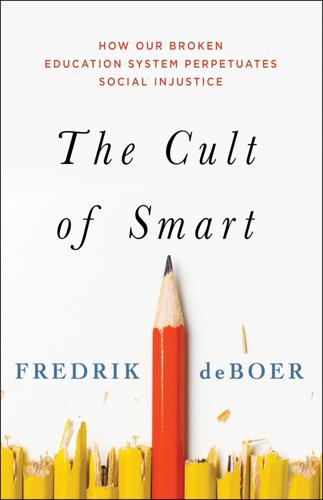
The Cult of Smart: How Our Broken Education System Perpetuates Social Injustice
by
Fredrik Deboer
Published 3 Aug 2020
The liberal ideal of equality of opportunity has become a commonplace, an assumed part of contemporary intellectual and political life, albeit one always subject to basic questions about what exactly society owes to every citizen in terms of their ability to secure the good life. Few ideas have had as much resonance in that debate as the concept of the veil of ignorance. The idea, developed by the eminent liberal philosopher John Rawls, asks us to imagine that we are ignorant of all of our individual demographics and attributes—that we might consider the world from a vantage point lacking basic information about ourselves and our place within it. How might we reconsider our views on how society should function, Rawls asks, if we had no idea about the characteristics that assign us our place in that society?
…
We can’t stand from a distant perspective and consider society before we enter it, but we can still think of ourselves as the beneficiaries, or the victims, of being born into good or bad luck. As I have tried to demonstrate in this book, our place within the modern meritocratic economic sorting machine is profoundly influenced by our genes, which we can’t control. John Rawls’s question becomes even more important in light of that fact: if you knew your genes would play an outsize role in your basic material conditions, would you really support a system in which there is a strong chance that those genes would curse you to economic and social difficulty? Some may recoil at the possible futures in a world where we reject the notion that human beings are blank sheets of paper on which anything can be written.
…
,” New Yorker 96 (2002). 15. Stefan Molyneux, “Race, Evolution, and Intelligence,” Free Domain Radio, 2016. 16. Eric Turkheimer, Kathryn Paige Harden, Richard E. Nisbett, “Charles Murray Is Once Again Peddling Junk Science About Race and IQ,” Vox, May 18, 2017. SEVEN: BEFORE THE VEIL OF IGNORANCE 1. John Rawls, A Theory of Justice, revised edition (Cambridge, MA: Harvard University Press, 2009), 118. 2. Carl N. Degler, In Search of Human Nature: The Decline and Revival of Darwinism in American Social Thought (Oxford: Oxford University Press on Demand, 1992), 330. 3. Milton Friedman and Rose Friedman, Free to Choose: A Personal Statement (New York: Houghton Mifflin Harcourt, 1990), 132. 4.
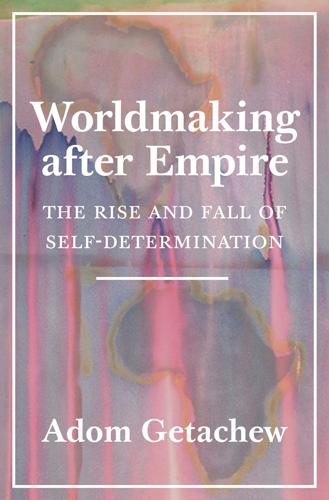
Worldmaking After Empire: The Rise and Fall of Self-Determination
by
Adom Getachew
Published 5 Feb 2019
Historically, these disciplines viewed the domestic sphere and particularly the “sovereign state as the consummation of political experience and activity” and thus limited normative theorizing to questions of domestic politics.68 However, beginning in the 1970s and in a more sustained fashion after the end of the Cold War, the global turn in political theory questioned this disaggregation of the domestic and international and subjected the international to normative theorizing. Fueling this body of work was a confrontation with the nation- state’s empirical and normative limits. On the one hand, the stylized self- sufficient state, which served as the backdrop for John Rawls’s A Theory of Justice, appeared entirely out of sync with the growing interdependence wrought by economic globalization. In his early critique of Rawls’s assumptions about self-sufficient states, Charles Beitz drew on the growing A Politica l Theory of Decoloniz ation [ 31 ] role of multinational corporations and transnational capital flows to argue that “international economic cooperation creates a new basis for international morality.”69 For Beitz and the field of global justice that emerged in the wake of this intervention, this account of economic globalization made it possible to theorize redistributive obligations beyond the state.
…
For the formerly enslaved, Hartman argues, emancipation was a double bind that combined “the onerous responsibilities of freedom with few of its entitlements.”97 On the international stage, Liberia and Ethiopia would find themselves in a similar position as inclusion in the family of nations engendered distinctive burdens. As described here, burdened membership stands in contrast to John Rawls’s account of burdened societies in The Law of Peoples. In his definition, “burdened societies, while they are not expansive or aggressive, lack the political and cultural traditions, the human capital and know-how, and, often, the material and technological resources needed to be well- ordered.”98 They are owed “a duty of assistance” that aims to help burdened societies govern themselves rationally so that they may eventually enter the “Society of well-ordered Peoples.”99 Rawls understands burdens as domestic deficits that are disconnected from the international context.
…
This marked a wholesale rejection of the key tenets of the NIEO—an interconnected account of nation-building and worldmaking that recognized the consequences of economic dependence on self-government, politicized international inequality to ground a claim of redistribution, and was committed to sovereign states as the agents and subjects of the welfare world. In the aftermath of the NIEO’s demise, its call for global justice would be taken up in altered form among Anglo-American philosophers. Beginning with the pioneering work of Charles Beitz in the late 1970s, philosophers, working in the shadow of John Rawls’s 1971 A Theory of Justice and confronted with the NIEO’s internationalization of welfarism, engaged in their own worldmaking by theorizing the moral foundations of global justice.142 With individuals as the subject of global justice, this cosmopolitan reframing highlighted the morally arbitrary nature of state borders and called into question the deeply ingrained antidistributional preferences of the richest countries.
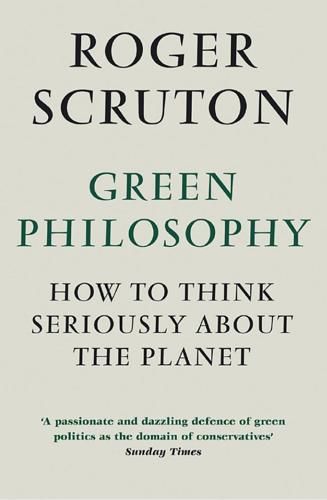
Green Philosophy: How to Think Seriously About the Planet
by
Roger Scruton
Published 30 Apr 2014
I give two such arguments – that of the philosopher Hegel, and that of the psychologist John Bowlby, the one attempting to make sense of self-conscious political life, the other reflecting on a pre-rational adaptation. And I go on to connect their arguments with important considerations raised by philosophy in the phenomenological tradition. Political philosophers of the Enlightenment, from Hobbes and Locke, reaching down to John Rawls and his followers today, have found the roots of political order and the motive of political obligation in a social contract – an agreement, overt or implied, to be bound by procedures and principles to which all reasonable citizens can assent. Although the social contract exists in many forms, its ruling principle was announced by Hobbes with the assertion that there can be ‘no obligation on any man which ariseth not from some act of his own’.238 My obligations are my own creation, binding because freely chosen.
…
Vague terms like ‘country’ may be used to make emotionally satisfying accusations of collective guilt, but the accusations can be turned into definite demands only if we settle questions of agency, personality and transgenerational accountability. The problem here is partly philosophical, partly political. Contractarian theories of justice, such as that famously developed by John Rawls, assign benefits and costs to the members of a ‘society’, which is the subject matter of the contract. They are not global theories, since those outside the contract are not considered. Hence such theories do not yield a clear answer, either to questions of intergenerational justice, or to questions of the just distribution across the world of the benefits and costs of economic growth.
…
Arab Human Development Report 2009: Challenges to Human Security in the Arab Countries, UNDP Regional Bureau for Arab States, p. 118, www.arab-hdr.org/publications/other/ahdr/ahdr2009e.pdf. 16 On the theory of ‘rent seeking’, see Chapters 3 and 4. 17 Garrett Hardin, ‘The Tragedy of the Commons’, Science, 162.1, 1968, pp. 243 –8. 18 Thomas Hobbes, Leviathan, 1651; John Rawls, A Theory of Justice, 1971, 2005. 19 Edmund Burke, Reflections on the French Revolution, 1790; G. W. F. Hegel, Outlines of the Philosophy of Right, 1820; Joseph de Maistre, Le Principe Générateur des Constitutions, 1809. 20 I return to them in Chapters 7 and 8. 21 And whose antics are thoroughly discredited by Adam Zamoyski in Holy Madness: Compatriots, Patriots and Revolutionaries, 1776–1871, London and New York, 2001. 22 George Monbiot, The Age of Consent, London, 2003. 23 For an eloquent assessment of the adverse effects of globalization on the identity, and therefore the environment, of the English nation, see Paul Kingsnorth, Real England, London, 2008. 24 See Roger Scruton, The Need for Nations, London, 2004. 25 Criticisms of these institutions from the left are assembled on the websites of the Global Justice Center and the Global Justice Ecology Center.
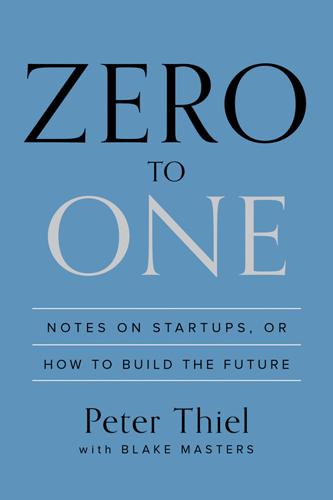
Zero to One: Notes on Startups, or How to Build the Future
by
Peter Thiel
and
Blake Masters
Published 15 Sep 2014
(Remember Marx and Engels’s encomium to the technological triumphs of capitalism from this page.) These thinkers expected material advances to fundamentally change human life for the better: they were definite optimists. In the late 20th century, indefinite philosophies came to the fore. The two dominant political thinkers, John Rawls and Robert Nozick, are usually seen as stark opposites: on the egalitarian left, Rawls was concerned with questions of fairness and distribution; on the libertarian right, Nozick focused on maximizing individual freedom. They both believed that people could get along with each other peacefully, so unlike the ancients, they were optimistic.
…
didn’t. A business with a good definite plan will always be underrated in a world where people see the future as random. YOU ARE NOT A LOTTERY TICKET We have to find our way back to a definite future, and the Western world needs nothing short of a cultural revolution to do it. Where to start? John Rawls will need to be displaced in philosophy departments. Malcolm Gladwell must be persuaded to change his theories. And pollsters have to be driven from politics. But the philosophy professors and the Gladwells of the world are set in their ways, to say nothing of our politicians. It’s extremely hard to make changes in those crowded fields, even with brains and good intentions.
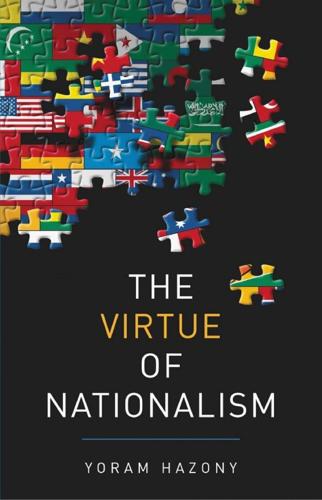
The Virtue of Nationalism
by
Yoram Hazony
Published 3 Sep 2018
It moved the great British statesman and philosopher Edmund Burke, for example, to declare on the floor of Parliament that of all books ever written, the Second Treatise was “one of the worst.”40 But the radical deficiency of Locke’s account has gradually ceased to be recognized as a problem. Western intellectuals have come to delight in it, until today we are inundated with follow-up works—from Rousseau’s On the Social Contract (1762) and Kant’s Perpetual Peace (1795) to Ayn Rand’s Atlas Shrugged (1957) and John Rawls’s A Theory of Justice (1972)—tirelessly elaborating this dream-world, working and reworking the vision of free and equal human beings, pursuing life and property and living under obligations that arise from their own free consent. A theory or program that is committed to this rationalist framework is what I will call a liberal theory or program.41 It is worth paying particular attention to the inability of liberal political theories to account for the existence of borders between nations.
…
Burke’s relationship to Locke is exhaustively treated in Ofir Haivry, The “Politick Personality,” doctoral dissertation at University College London, 2005. 41. Jean-Jacques Rousseau, On the Social Contract (1762); Immanuel Kant, “Perpetual Peace,” in Political Writings, ed. H. S. Reiss, trans. H. N. Nisbet (Cambridge, UK: Cambridge University Press, 1991 [1795]), 93–130; Ayn Rand, Atlas Shrugged (New York, Signet, 1996 [1957]); John Rawls, A Theory of Justice (Cambridge, MA: Harvard University Press, 1972). My account diverges from that of Leo Strauss and others who present Rousseau as a critic of Locke. True, Rousseau argues for a return to certain virtues required to maintain social cohesion and wage war in defense of the community.
…
According to Hayek, “The abrogation of national sovereignties and the creation of an effective international order of law is a necessary complement and the logical consummation of the liberal program.… The idea of interstate federation [is] the consistent development of the liberal point of view.” Friedrich Hayek, “The Economic Conditions of Interstate Federalism.” 47. I have in mind debates such as those in political theory between John Rawls’s A Theory of Justice and Robert Nozick’s Anarchy, State and Utopia (New York: Basic Books, 1974); or in economics between John Maynard Keynes, General Theory of Employment, Interest and Money (New York: Houghton Mifflin Harcourt, 1964 [1936]), and Friedrich Hayek, The Constitution of Liberty (Chicago: University of Chicago Press, 1960); or those in jurisprudence between Herbert Hart, The Concept of Law (Oxford, UK: Oxford University Press, 1961), and Ronald Dworkin, Taking Rights Seriously (New York: Gerald Duckworth, 1977).
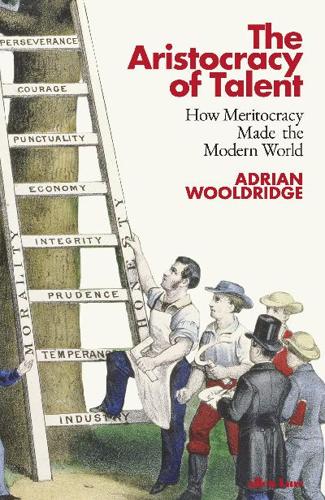
The Aristocracy of Talent: How Meritocracy Made the Modern World
by
Adrian Wooldridge
Published 2 Jun 2021
Crosland, ‘The Transition from Capitalism’, in Crossman (ed.), New Fabian Essays, p. 65 27 Margaret Cole, ‘Education and Social Democracy’, in ibid., p. 109 28 Roy Jenkins, ‘Equality’, in ibid., pp. 85–6 29 Anthony Crosland, The Conservative Enemy (London, Cape, 1962), pp. 173–4 30 David Halberstam, The Best and the Brightest (New York, Random House, 1972), pp. 41, 44 31 John Rawls, A Theory of Justice (Cambridge, Mass., Harvard University Press, 1971), p. 15 32 Michael Young, ‘Down with Meritocracy’, Guardian, 29 June 2001 33 Marc Tracy, ‘Steve Bannon’s Book Club’, The New York Times, 4 February 2017 34 Michael Anthony Lawrence, ‘Justice-as-Fairness as Judicial Guiding Principle: Remembering John Rawls and the Warren Court’, Brooklyn Law Review 82 (2) (2016), https://brooklynworks.brooklaw.edu/blr/vol81/iss2/5/, argues that the Warren Court adopted many of Rawls’s basic principles before he wrote his book. 35 Peter L.
…
But the intellectuals overruled them, aided by their intellectual glamour and personal ties with the president, and when their ideas collided with reality they simply demanded that the war machine try harder. Thanks to Halberstam, the phrase ‘the best and the brightest’ now comes with an exasperated sneer. If Halberstam’s The Best and the Brightest attacked one of meritocracy’s most cherished claims, that it produces ruthless efficiency, John Rawls’s A Theory of Justice (1971) attacked the other, that it produces justice. Rawls, a professor of philosophy at Harvard University and one of the most influential intellectuals of his time, wanted to ban ‘merit’ from any calculus of distributive justice. He argued that inequalities in wealth or authority were justifiable only in so far as they benefited everyone in society and, in particular, the ‘least amongst them’, a principle established by using the ‘veil of ignorance’, behind which people are supposed to think about the design of a fair society without knowledge of their own particular talents, class or sex.
…
Rawls broke with the old-fashioned American faith in both hard work and individual achievement. The main theme of American radicalism from Jacksonian campaigns against monopolies to feminist campaigns in favour of equal reward for equal pay has been the desire for distributive justice. This faith burns particularly brightly among John Rawls’s own tribe of New Englanders. Rawls, by contrast, was interested in limiting inequality rather than opening up opportunities. Yet A Theory of Justice doesn’t look forward to our current era of campaigns for racial justice: the volume doesn’t contain any reference to race, despite the fact that, when it was written, America was being shaken up by the civil rights movement and traumatized by civil unrest in its great cities, including Boston.
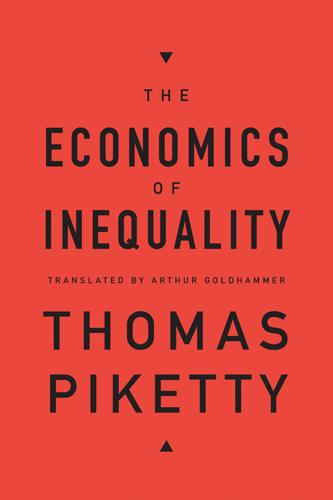
The Economics of Inequality
by
Thomas Piketty
and
Arthur Goldhammer
Published 7 Jan 2015
Modern theories of social justice have expressed this idea in the form of a “maximin” principle, according to which a just society ought to maximize the minimum opportunities and conditions available within the social system. The maximin principle was formally introduced by Serge-Christophe Kolm (1972) and John Rawls (1972), but one finds it more or less explicitly formulated in much earlier works—for example, in the traditional idea that everyone should be guaranteed the broadest possible range of equal rights, a concept widely accepted at the theoretical level. Often, the real conflict is about the most effective way to improve the actual standard of living of the least well-off and about the extent of the rights that can be granted to all in the name of abstract principles of social justice.
…
The answers to these questions depend to a large extent on the magnitude of the negative effects that high redistribution rates may have on incentives to work and to supply human capital and therefore on redistribution itself. There is a fairly broad consensus concerning the fundamental purposes of pure redistribution: a redistribution is just if it does as much as possible to improve the opportunities and living standards of the least well off. This is John Rawls’s maximin principle, discussed in the Introduction. Of course, controversy remains as to which individuals are the least well off. Since individuals differ in multiple dimensions, this is not always easy to decide, and this difficulty can pose problems when it comes to defining the idea of responsibility and setting the goals of social justice, as recent work in social justice theory has shown (Fleurbaey, 1996; Roemer, 1996).
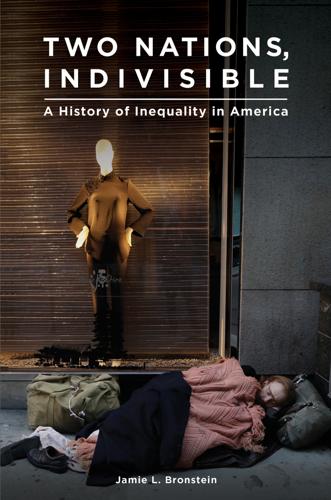
Two Nations, Indivisible: A History of Inequality in America: A History of Inequality in America
by
Jamie Bronstein
Published 29 Oct 2016
Despite the demands put on the U.S. budget by the Vietnam War, the “War on Poverty” continued during the Nixon administration, which attempted a basic income guarantee for low-income Americans: the Family Assistance Plan. Although the plan was never enacted, the Earned Income Tax Credit (1975), a tax refund for low-income working families, had its origin in this idea.6 During the 1970s, philosophers as well as politicians struggled with ideas of fairness. The philosophers John Rawls’s A Theory of Justice (1971) and Robert Nozick’s Anarchy, State, and Utopia (1974) set out important interpretations of fair property-holding and distribution that have influenced divergent policies to this day. By the late 1970s, prosperity was lagging under the pressure of two oil shocks, unprecedented combined inflation and unemployment, and increasing American deindustrialization.
…
With 1980 an election year, a recession year, and a year that promised no end to the crisis of Americans held hostage in Iran, Carter was easily defeated by a resurgent Ronald Reagan.87 WRITING ABOUT INEQUALITY IN THE 1970s The modern academic debate about distributive justice emerged in the 1970s. In 1971, Harvard philosopher John Rawls published A Theory of Justice, a groundbreaking book that continues to be hugely influential as philosophers and policymakers consider, in the abstract, what fairness means.88 Rawls argued that property ownership is only possible in liberal societies because we are interdependent and cooperative in ways that secure a right to property.
…
Helen Lachs Ginsburg, “Historical Amnesia: The Humphrey-Hawkins Act, Full Employment and Employment as a Right,” Review of Black Political Economy vol. 39 (2012): 121–136, at 132. 87. Iwan Morgan, “Jimmy Carter, Bill Clinton, and the New Democratic Economies,” Historical Journal vol. 47 no. 4 (December 2004): 1015–1039, at 1020. 88. John Rawls, A Theory of Justice (Cambridge, MA: Harvard University Press, 1971), passim. 89. R. George Wright, “The High Cost of Rawls’s Inegalitarianism,” Western Political Quarterly vol. 3 no. 1 (1977): 73–79. 90. Philip A. Michaelbach, John T. Scott, Richard E. Matland, and Brian H. Bornstein, “Doing Rawls Justice: An Experimental Study of Income Distribution Norms,” American Journal of Political Science vol. 47 no. 3 (July 2003): 523–539. 91.
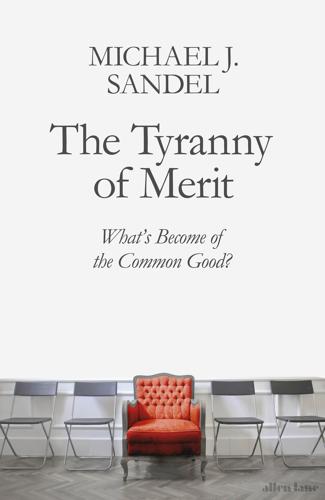
The Tyranny of Merit: What’s Become of the Common Good?
by
Michael J. Sandel
Published 9 Sep 2020
Unlike Hayek, defenders of welfare state liberalism favor taxing the rich to help the poor. Surprisingly, however, they share Hayek’s view that the distribution of income and wealth should not be based on what people merit or deserve. Welfare State Liberalism Welfare state liberalism (or “egalitarian liberalism”) finds its fullest philosophical expression in the work of John Rawls, the noted twentieth-century American political philosopher. In his classic work A Theory of Justice (1971), Rawls argues that even a system of fair equality of opportunity, one that fully compensated for the effects of class differences, would not make for a just society. The reason: If people competed on a truly level playing field, the winners would be those endowed with the greatest talent.
…
I Deserve to Be Rich,’” The New York Times , March 20, 1988, nytimes.com/1988/03/20/business/what-s-new-subliminal-messages-deserve-succeed-deserve-reach-my-goals-deserve-be.html?searchResultPosition=1 ; David Tanis, “You Deserve More Succulent Chicken,” The New York Times , March 29, 2019, nytimes.com/2019/03/29/dining/chicken-paillard-recipe.html?searchResultPosition=1 . 20. See the discussion of Friedrich Hayek, John Rawls, and the luck egalitarians in chapter 3. 21. Reagan used “you deserve” 31 times, compared with a total of 27 uses by Presidents Kennedy, Johnson, Nixon, Ford, and Carter, according to the searchable archive of presidential speeches at the American Presidency Project, presidency.ucsb.edu/advanced-search . 22.
…
“Global Attitudes Project,” Pew Research Center, July 12, 2012: pewglobal.org/2012/07/12/chapter-4-the-casualties-faith-in-hard-work-and-capitalism . 19. Friedrich A. Hayek, The Constitution of Liberty (Chicago: University of Chicago Press, 1960), pp. 92–93. 20. Ibid., pp. 85–102. 21. Ibid., p. 93. 22. Ibid., p. 94. 23. John Rawls, A Theory of Justice (Cambridge, MA: Harvard University Press, 1971). 24. Ibid., pp. 73–74. 25. Ibid., p. 75. 26. Kurt Vonnegut, Jr., “Harrison Bergeron” (1961) in Vonnegut, Welcome to the Monkey House (New York: Dell Publishing, 1998). See discussion in Michael J. Sandel, Justice: What’s the Right Thing to Do?
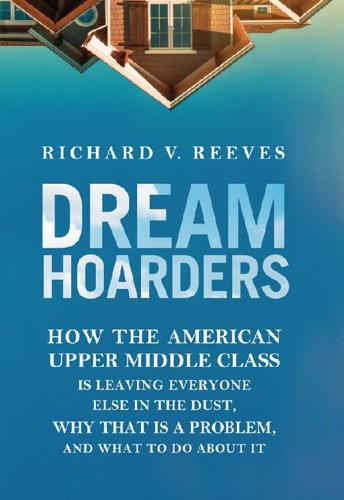
Dream Hoarders: How the American Upper Middle Class Is Leaving Everyone Else in the Dust, Why That Is a Problem, and What to Do About It
by
Richard V. Reeves
Published 22 May 2017
If affluent parents are reasonably certain their children will stay up in the higher reaches of the income distribution, they have less reason to support institutions and policies that favor the less fortunate. After all, their children won’t need them.26 In his famous thought experiment, the philosopher John Rawls suggested that a just society would be the one that was agreed upon by people unaware of which rung they would occupy, from behind what he called a “veil of ignorance.” Behind this veil, “no one knows his place in society, his class position or social status; nor does he know his fortune in the distribution of natural assets and abilities, his intelligence and strength, and the like.”27 Rawls’s elegant, contract-based approach to social justice was arguably the biggest philosophical advance of the twentieth century and prepared the ground for a flowering of egalitarian thought.
…
Oleg Chuprinin and Denis Sosyura, “Family Descent as a Signal of Managerial Quality: Evidence from Mutual Funds,” Working Paper 22517 (Cambridge, Mass.: National Bureau of Economic Research, August 2016) (www.nber.org/papers/w22517.pdf). 26. Benjamin Page, Larry Bartels, and Jason Seawright, “Democracy and the Policy Preferences of Wealthy Americans,” Perspectives on Politics 11, no. 1 (March 2013): pp. 51–73. 27. John Rawls, A Theory of Justice (Harvard University Press, 1999), p. 118. 28. Richard Reeves, “Cracking the Glass Floor: Downward Mobility and the Politics of Redistribution,” Social Mobility Memos (blog), February 27, 2015 (www.brookings.edu/blogs/social-mobility-memos/posts/2015/02/27-cracking-glass-floor-downward-mobility-reeves). 29.
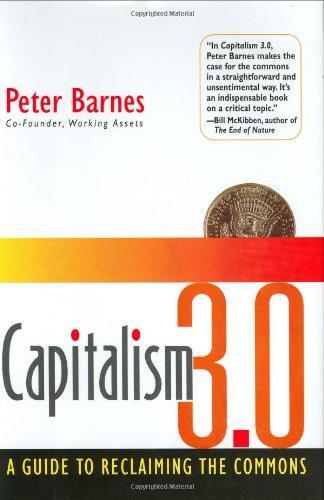
Capitalism 3.0: A Guide to Reclaiming the Commons
by
Peter Barnes
Published 29 Sep 2006
We believe the poor are poor and the rich are rich because they deserve to be, but don’t consider that millions of Americans work two or three jobs and still can’t make ends meet. Plus, we think tinkering with the “natural” distribution of income is “socialism,” or “big government,” or some other manifestation of evil, despite the fact that our current distribution of income isn’t “natural” at all, but rigged from the get-go by maldistributed property. The late John Rawls, one of America’s leading philosophers, distinguished between pre distribution of property and redistribution of income. Under income redistribution, money is taken from “winners” and transferred to “losers.” Understandably, this isn’t popular with winners, who tend to control government and the media.
…
This paper discusses the danger of factions and how the Constitution is designed to mitigate it through checks and balances. www.foundingfathers.info/federalistpapers/fed10.htm. Chapter 7: Universal Birthrights 103 “The aim is not to guarantee . . .”: George Will, “Field of Dollars,” Washington Post, Feb. 28, 1999, p. B7. 105 redistribution vs. pre distribution: John Rawls, A Theory of Justice (Cambridge, Mass.: Harvard University Press, 1971). 106 Less pollution = more revenue: At this moment, the federal government and several states are giving corporate polluters free rights to use the atmosphere. It may seem shocking that politicians would create new property rights from a shared inheritance and give these valuable assets to a few corporations, yet that’s what they’re doing. 108 “[T]he estates . . .”: For text of the Northwest Ordinance of 1787, see www.historicaldocuments.com /NorthwestOrdinance.htm.
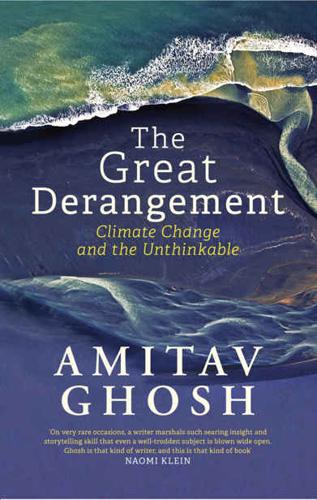
The Great Derangement: Climate Change and the Unthinkable
by
Amitav Ghosh
Published 16 Jan 2018
The ‘everyday political philosophy of the nineteenth century’ (as Keynes described it) remains an immensely powerful force in the United States and elsewhere: for those on the right of the political spectrum, this set of ideas retains something of its millenarian character with individualism, free trade and God constituting parts of a whole. But by no means is it only the religiously minded whose ideas are shaped by this philosophy: it is worth noting that the dominant secular paradigms of ethics in the United States—for example, as in John Rawls’s theory of justice—are also founded upon assumptions about individual rationality that are borrowed from neoclassical economics. It is instructive in this regard to look at an area of the humanities that has been unusually quick to respond to climate change: the subdiscipline of philosophy represented by climate ethicists.
…
Gordon, in What Fanon Said: A Philosophical Introduction to His Life and Thought (New York: Fordham University Press, 2015), writes, ‘In the colonies the truth was naked, the “metropoles” preferred it clothed’ (133). 190 ‘biopolitics’: In Foucault’s definition, biopolitics is the ‘attempt, starting from the eighteenth century, to rationalize the problems posed to governmental practice by phenomena characteristic of a set of living beings forming a population: health, hygiene, birthrate, life expectancy, race’ (Michel Foucault, The Birth of Biopolitics, trans. Graham Burchell [New York: Picador, 2004], 317). 191 ‘would not exist’: Timothy Mitchell, Carbon Democracy, loc. 136. 191 political legitimacy: Although some would argue, following John Rawls, that principles of justice ‘apply only to the internal affairs within nations and cannot be extended to apply either to relations between nations or among all the world’s persons’ (Steve Vanderheiden, Atmospheric Justice: A Political Theory of Climate Change [New York: Oxford University Press, 2008], 83). 192 ‘climate budget’: Cf.
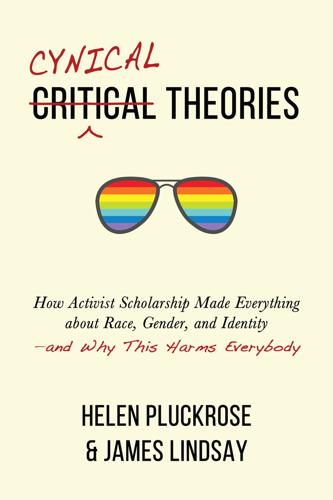
Cynical Theories: How Activist Scholarship Made Everything About Race, Gender, and Identity―and Why This Harms Everybody
by
Helen Pluckrose
and
James A. Lindsay
Published 14 Jul 2020
Under different thinkers at different times, this term has taken on various meanings, all of which are concerned on some level with addressing and redressing social inequalities, particularly where it comes to issues of class, race, gender, sex, and sexuality, particularly when these go beyond the reach of legal justice. Perhaps most famously, the liberal progressive philosopher John Rawls laid out much philosophical theory dedicated to the conditions under which a socially just society might be organized. In this, he set out a universalist thought experiment in which a socially just society would be one in which an individual given a choice would be equally happy to be born into any social milieu or identity group.2 Another, explicitly anti-liberal, anti-universal, approach to achieving social justice has also been employed, particularly since the middle of the twentieth century, and that is one rooted in critical theory.
…
A critical theory is chiefly concerned with revealing hidden biases and underexamined assumptions, usually by pointing out what have been termed “problematics,” which are ways in which society and the systems that it operates upon are going wrong. Postmodernism, in some sense, was an offshoot of this critical approach that went its own theoretical way for a while and was then taken up again by critical social justice activists through the 1980s and 1990s (who, incidentally, very rarely reference John Rawls on the topic). The movement that takes up this charge presumptuously refers to its ideology simply as “Social Justice” as though it alone seeks a just society and the rest of us are all advocating for something entirely different. The movement has thus come to be known as the “Social Justice Movement” and its online critics often refer to it, for brevity, as “SocJus” or, increasingly, “wokeism” (due to its belief that it alone has “awakened” to the nature of societal injustice).
…
We contend that, if these methods are reformed and made rigorous, they could be of tremendous scholarly value and significantly advance the cause of humanity—not least the cause of social justice. NOTES Introduction 1.James Lindsay and Helen Pluckrose, “A Manifesto against the Enemies of Modernity,” Areo Magazine, August 22, 2017, areomagazine.com/2017/08/22/a-manifesto-against-the-enemies-of-modernity/ 2.John Rawls, A Theory of Justice. (Oxford: Oxford University Press, 1999). 3.Audre Lorde, Sister Outsider: Essays and Speeches (Berkeley, CA: Crossing Press, 2007), 110–114. 1 Postmodernism 1.Critical Theory is often attributed to the famous Frankfurt School, which arose as a vehicle for Marxist critiques of modernity.
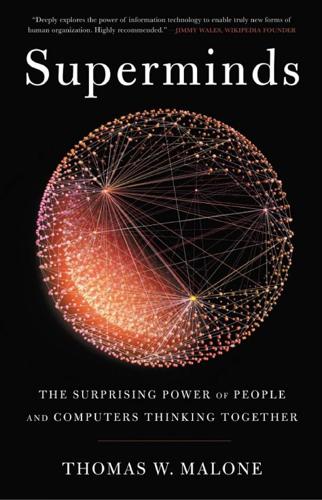
Superminds: The Surprising Power of People and Computers Thinking Together
by
Thomas W. Malone
Published 14 May 2018
Basic Benefits of Cooperation As Thomas Hobbes famously remarked in his 1651 book, Leviathan, in a world without any form of human cooperation (in other words, an ecosystem), “there is… continual fear and danger of violent death, and the life of man [is] solitary, poor, nasty, brutish, and short.”9 Many philosophers and others (including John Locke, Jean-Jacques Rousseau, and, more recently, John Rawls) have also discussed the various kinds of benefits possible from human cooperation. One of the most obvious benefits of cooperation is just avoiding the losses that can result from unrestricted conflict. If anyone who is stronger than you are can kill you or take anything of yours he or she wants, then you live in constant fear for your safety.
…
John Locke, Two Treatises of Government and a Letter Concerning Toleration (New Haven, CT: Yale University Press, 2003); Thomas Hobbes, Leviathan, ed. C. B. Macpherson (London: Penguin Books, 1985); Jean-Jacques Rousseau, The Basic Political Writings, translated by Donald A. Cress (Indianapolis: Hackett Publishing Company, 1987); John Rawls, A Theory of Justice (Cambridge, MA: Harvard University Press, 1971). 4. Garrett Hardin, “The Tragedy of the Commons,” Science 162, no. 3,859 (1968): 1,243–48; Robert L. Trivers, “The Evolution of Reciprocal Altruism,” Quarterly Review of Biology 46 (1971): 35–57, doi:10.1086/406755; Christopher Stephens, “Modelling Reciprocal Altruism,” British Journal for the Philosophy of Science 47, no. 4 (1996): 533–51, doi:10.1093/bjps/47.4.533. 5.
…
Aldous Huxley, The Perennial Philosophy (New York: Harper & Brothers, 1945). 10. Philip Stratton-Lake, “Intuitionism in Ethics,” in Stanford Encyclopedia of Philosophy (Winter 2016 edition), ed. Edward N. Zalta (Stanford University, 2016), https://plato.stanford.edu/archives/win2016/entries/intuitionism-ethics; John Rawls, A Theory of Justice (Oxford, UK: Clarendon Press, 1972). 11. Huxley, The Perennial Philosophy. 12. Alan Watts, The Book: On the Taboo Against Knowing Who You Are (New York: Random House, 1966), 1. 13. Idries Shah, The Sufis (London: Octagon Press, 1964), 311–12. Thank you for buying this ebook, published by Hachette Digital.
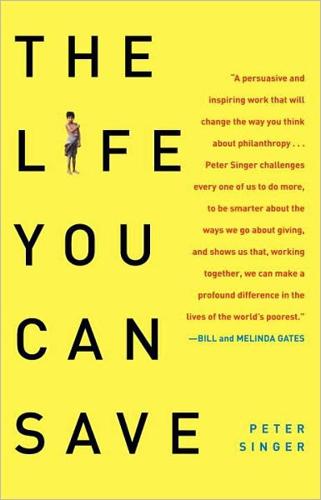
Life You Can Save: Acting Now to End World Poverty
by
Peter Singer
Published 3 Mar 2009
Some philosophers deny that there can be a gap between what we believe we ought to do and the general moral rules we ought to advocate; in their view, it is always wrong to do what you cannot publicly advocate as a rule for everyone to follow. They want everything up front and transparent. Kant famously wrote that the test of whether an action is right is whether you can prescribe that the principle on which it is based should be a universal law.1 John Rawls drew on this idea when he made “the publicity condition” a key element of his theory of justice.2 That sounds like a fine idea, but it overlooks the fact that to be widely accepted and acted upon, as we wish them to be, moral rules have to be attuned to our evolved human nature, with all its quirky relics of our tribal past.
…
Brad Hooker, Ideal Code, Real World: A Rule-Consequentialist Theory of Morality (Oxford, UK: Clarendon Press, 2000), p. 166. 10. A Realistic Approach 1. Immanuel Kant, Groundwork of the Metaphysics of Morals, part II; for a more explicit discussion, see Kant’s Perpetual Peace, appendix II. 2. John Rawls, A Theory of Justice, rev. ed. (Cambridge, MA.: Harvard University Press, 1999), p. 112. 3. See Richard Arneson, “What Do We Owe to Distant Needy Strangers?” in Jeffrey Schaler (ed.), Peter Singer Under Fire (Chicago: Open Court, forthcoming 2009). 4. For Gates’s speech, see www.gatesfoundation.org/MediaCenter/Speeches/Co-ChairSpeeches/BillgSpeeches/BGSpeechWHA-050516.htm?
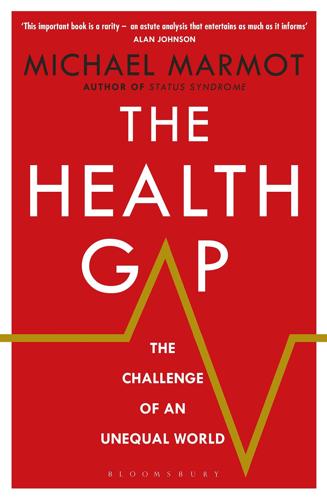
The Health Gap: The Challenge of an Unequal World
by
Michael Marmot
Published 9 Sep 2015
On this evidence – fair process versus fair outcome – would we deem the society in which Turandot was a princess to be a just society? Obviously not. We have become a little squeamish about executing unsuccessful suitors for the royal hand. We rig things in more subtle ways. Some philosophers argue that process is the thing. If the process is fair, the outcome is fair whatever it may be, wrote John Rawls, the doyen of liberal political philosophers.1 To see if the Rawls thesis holds, try this experiment with two young children. You have two ice creams, one vanilla and one chocolate. They both want the chocolate. You explain carefully that they can both have ice creams but there is only one chocolate.
…
Particularly among women, more than men, people who reported little control at home had increased risk of heart disease and depression.13 ‘Basic freedoms’ is a concept of the inspiring economist and philosopher Amartya Sen. He emphasises freedom to lead a life one has reason to value.14 Freedom to be and to do has a central place. Sen, like most contemporary philosophers, is a great admirer of John Rawls. His divergence from Rawls, highly significant, arises because Sen is not searching for an ideal institutional arrangement that would constitute the good society. Rather, he wants to evaluate social arrangements by their effects on actual lives – whether people have the freedom to lead the lives they choose.15 This resonates with my health-centred approach.
…
It is less reasonable than it sounds. While politicians of left and right, and the people who support them, can agree on equality of opportunity, many will argue against equality of outcome. If equality of outcome demands equality of income, of education, of living conditions, this will be several steps too far for many. John Rawls recognised that equal opportunity was a chimera because people’s basic starting conditions varied so greatly. Opportunity is heavily influenced by inequalities in power, education and resources – all socially determined – quite apart from inequalities based on the natural lottery that deals some a luckier genetic hand than others.
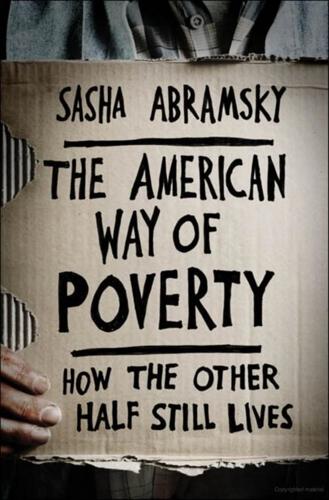
The American Way of Poverty: How the Other Half Still Lives
by
Sasha Abramsky
Published 15 Mar 2013
For Walmart worker Aubretia Edick, low hourly wages combined with her manager allotting her fewer hours each week meant skipping meals and keeping her upstate New York house thermostat on low throughout the long winter months. In his 1971 book A Theory of Justice,13 the influential liberal philosopher John Rawls argued that the moral imperative of a political and economic system was to raise the condition of society’s most vulnerable, and that the means to do so were, largely, to be discovered by trial and error. In theory, growing inequality would pass his morality test so long as the condition of the poor was being bettered.
…
In fact, almost by definition, a flat tax reduces the rate paid not by those at the bottom of the economy (as Mitt Romney notoriously pointed out during the 2012 election campaign, the bottom part of the population currently pays either no, or very little, federal income tax) but by those at the top—thus failing political philosopher John Rawls’s test for who benefits from significant political decisions. Similarly, a two- or three-tier system, implemented in a climate when anti-tax advocates are on the offensive, probably means poor people will pay what they used to, while the higher up the income scale one goes, the less taxes one will end up paying.
…
See http://www.huffingtonpost.com/2011/10/20/us-incomes-falling-asoptimism-reaches-10-year-low_n_1022118.html. 12. This has been widely documented. For particularly good discussions of the problem, see http://www.pbs.org/wnet/need-to-know/the-daily-need/unemployed-need-not-apply/10736/, and also http://www.nytimes.com/2011/07/26/business/help-wanted-ads-exclude-the-long-term-jobless.html. 13. John Rawls, A Theory of Justice (Cambridge, MA: The Belknap Press of Harvard University Press, 1971). 14. Taskforce on Economic Growth and Opportunity, Chamber of Commerce, The Concept of Poverty (Washington, D.C., 1965), 2–3. 15. Ibid. For the purposes of the Chamber’s study, 1929 incomes were translated to correspond to their value in 1963 dollars. 16.
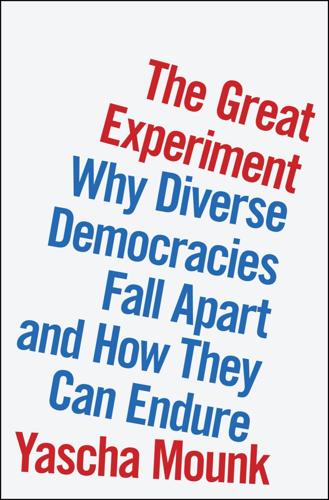
The Great Experiment: Why Diverse Democracies Fall Apart and How They Can Endure
by
Yascha Mounk
Published 19 Apr 2022
See, for example, Joseph Raz, The Morality of Freedom (Oxford, UK: Oxford University Press, 2000), and Chris Mills, “How Should Liberal Perfectionists Justify the State?,” Moral Philosophy and Politics 4, no. 1 (January 2017): 43–65, http://dx.doi.org/10.1515/mopp-2016-0035. Others speak about “the priority of the right over the good.” See, for example, John Rawls, A Theory of Justice (Oxford, UK : Clarendon Press, 1971) as well as the later reformulations in John Rawls, Political Liberalism (New York: Columbia University Press, 1993), and John Rawls, “The Priority of Right and Ideas of the Good,” Philosophy and Public Affairs 17, no. 4 (Fall 1988): 251–76, https://www.jstor.org/stable/i31376. But though these formulations point to important differences in emphasis, the underlying ambition remains the same: diverse democracies should recognize that there are important aspects of life—questions of faith and morality, of conscience and conviction—in which the state must leave citizens free to make their own choices.
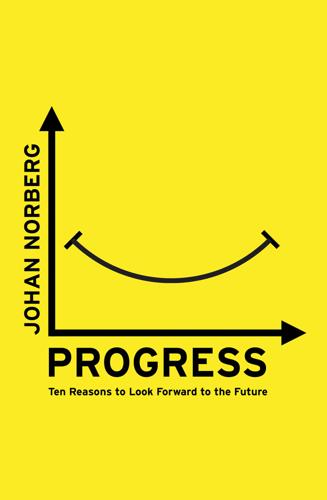
Progress: Ten Reasons to Look Forward to the Future
by
Johan Norberg
Published 31 Aug 2016
At the same time, global population has grown dramatically, so it could be that the number of poor has grown even though the proportion is declining. But nobody would claim that unemployment is rising in a society where the unemployment rate has halved from ten to five per cent, only because its population has slightly more than doubled over the same period. It would be appropriate here to consider the philosopher John Rawls’s thought experiment about the ‘veil of ignorance’: if you had to choose a society to live in but did not know what your social or economic position would be, you would probably choose the society with the lowest proportion (not the lowest numbers) of poor, because this is the best judgement of the life of an average citizen.20 In fact, it doesn’t matter what we focus on when it comes to recent poverty data.
…
Anklesaria Aiyar, ‘Capitalism’s assault on the Indian caste system’, Cato Policy Analysis, 776, 21 July 2015, p. 12. 14 World Bank, ‘Voices of the poor’, http://web.worldbank.org/WBSITE/EXTERNAL/TOPICS/EXTPOVERTY/0,,contentMDK:20622514~menuPK:336998~pagePK:148956~piPK:216618~theSitePK:336992,00.html (accessed on 16 April 2016), p. 41. 15 ‘What the poor say’, Washington DC: World Bank Group, May 2001, http://siteresources.worldbank.org/INTPOVERTY/Resources/poor.pdf (accessed on 12 April 2016). 16 Lant Pritchett, ‘Divergence, big time’, Journal of Economic Perspectives, 11, 3 (1997), 3–17, p. 3. 17 Arvind Subramanian and Martin Kessler, ‘The hyperglobalization of trade and its future’, Working Paper 3, Global Citizen Foundation, 2013. 18 Peter Hartcher, ‘Tipping point from West to rest just passed’, Sydney Morning Herald, 17 April 2012. 19 Bourguignon and Morrisson 2002. 20 John Rawls, A Theory of Justice. Oxford: Oxford University Press, 1973; see application of this in Bjørn Lomborg, The Skeptical Environmentalist: Measuring the Real State of the World. Cambridge: Cambridge University Press, 2001, p. 64. 21 Max Roser, ‘World poverty’ (2016), OurWorldInData.org, http://ourworldindata.org/data/growth-and-distribution-of-prosperity/world-poverty/ (accessed on 21 March 2016). 22 David Dollar, Tatjana Kleineberg and Aart Kraay, ‘Growth still is good for the poor’, Working Paper 596, Luxembourg Income Study, Cross-National Data Center in Luxembourg, 2013, p. 17. 23 UN-HABITAT, State of the World’s Cities 2012/13: Prosperity of Cities.
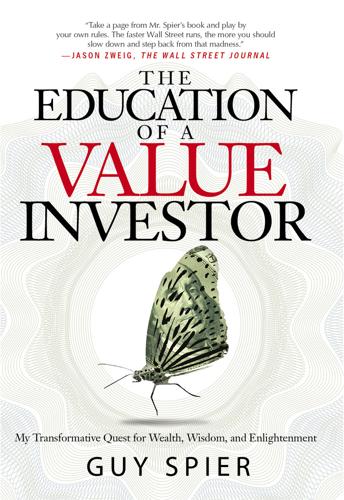
The Education of a Value Investor: My Transformative Quest for Wealth, Wisdom, and Enlightenment
by
Guy Spier
Published 8 Sep 2014
Hearing these tales, I felt woefully inadequate since I had scant knowledge of British history and barely understood the basics of the political system. My way of competing was to focus ferociously on topics where I could stand out. I fell in love with political philosophy and spent countless hours debating and pontificating about John Rawls’s theory of justice and other esoteric subjects. Fueled by fear of being sent down and exposed as stupid and undeserving of my place at Oxford, I learned to dazzle intellectually as a way of concealing my insecurities. I had a burning desire to be accepted and respected within this group of exceptionally smart people.
…
Or, A Good Hard Look at Wall Street by Fred Schwed Your Money and Your Brain: How the New Science of Neuroeconomics Can Help Make You Rich by Jason Zweig Literature 100 Years of Solitude by Gabriel García Márquez Hamlet by William Shakespeare Jonathan Livingston Seagull by Richard Bach Oliver Twist by Charles Dickens Zen and the Art of Motorcycle Maintenance: An Inquiry into Values by Robert Pirsig Miscellaneous Autobiography: The Story of My Experiments with the Truth by Mahatma Gandhi City Police by Jonathan Rubinstein Endurance: Shackleton’s Incredible Voyage by Alfred Lansing Long Walk to Freedom: The Autobiography of Nelson Mandela by Nelson Mandela Metaphors We Live By by George Lakoff and Mark Johnson Reagan: A Life in Letters by Ronald Reagan The Autobiography of Benjamin Franklin by Benjamin Franklin The Checklist Manifesto: How to Get Things Right by Atul Gawande The Hero with a Thousand Faces by Joseph Campbell The New British Constitution by Vernon Bogdanor The Power of Myth by Joseph Campbell with Bill Moyers Vor 1914: Erinnerungen an Frankfurt geschrieben in Israel by Selmar Spier Walden: or, Life in the Woods by Henry David Thoreau Why America Is Not a New Rome by Vaclav Smil Philosophy and Theology A Theory of Justice by John Rawls Anarchy, the State, and Utopia by Robert Nozick Destination Torah: Reflections on the Weekly Torah Readings by Isaac Sassoon Halakhic Man by Joseph Soloveitchik Letters from a Stoic by Lucius Annaeus Seneca Man’s Search for Meaning by Viktor Frankl Meditations by Marcus Aurelius Pirke Avot: A Modern Commentary on Jewish Ethics by Leonard Kravits and Kerry Olitzky Plato, not Prozac!
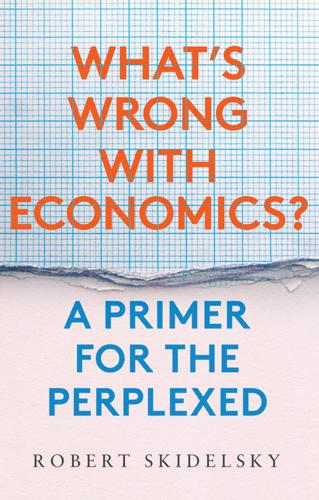
What's Wrong With Economics: A Primer for the Perplexed
by
Robert Skidelsky
Published 3 Mar 2020
Today, neoclassical economists and pessimistic sociologists find common cause in attacking the welfare state; to the former it undermines the incentive to work, to the latter it ‘demoralises’ society. At present the question of the justice of property rights is much more discussed by philosophers than by economists. For example, John Rawls’s (1921–2002) principle that inequality is justified to the extent that it improves the position of the least well-off owes something to Locke’s idea that property ownership requires a moral justification. Outside mainstream economics there has been a revival of interest in the question of the moral responsibilities of ownership.
…
The collapse of an ethics of ends has transferred the weight of contemporary ethical argument to the morality of means, what we may call procedural ethics. The question of what constitutes a just distribution of income and life-chances has been vigorously debated among political philosophers, with the social democrat John Rawls (see above, p. 168) and the conservative Robert Nozick (1938–2002) being the most frequently cited. ‘Natural’ rights have morphed into ‘human’ rights. People have a ‘right’ not to be discriminated against on grounds of race, gender, and age. Reaching the conclusion by different routes, utilitarian and rights philosophies can agree that harm is bad.
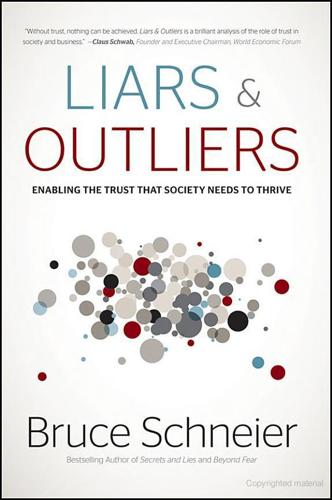
Liars and Outliers: How Security Holds Society Together
by
Bruce Schneier
Published 14 Feb 2012
Martin Luther said Martin Luther (1524), Von Kaufshandlung und Wucher. Immanuel Kant Immanual Kant (1795), First Supplement on the Guarantee for Perpetual Peace. John Locke John Locke (1689), Second Treatise of Government. Jean-Jacques Rousseau Jean-Jacques Rousseau (1762), Du Contrat Social (The Social Contract). John Rawls John Rawls (1971), A Theory of Justice, Belknap Press of Harvard University Press. In Plato's Republic Plato (c. 427–347 BC), The Republic. Niccolò Machiavelli Niccolò Machiavelli (1517), Discourses Upon the First Ten Books of Titus Livy. Garrett Hardin Garrett Hardin (1994). “The Tragedy of the Unmanaged Commons,” Trends in Ecology & Evolution, 9:199.
…
The result is Social Contract Theory, which posits that people willingly grant government power that compels them to subordinate their immediate self-interest to the long-term group interest in order to protect themselves and their fellow citizens from harm. Thomas Hobbes, John Locke, Jean-Jacques Rousseau, and the 20th-century philosopher John Rawls all proposed different flavors of this idea. Their conclusions about the ideal way to achieve social order vary, but all maintain that it is both necessary and moral to forcibly limit individual freedoms, reasoning that without a government enforcing laws, defectors would take over, to the detriment of all.
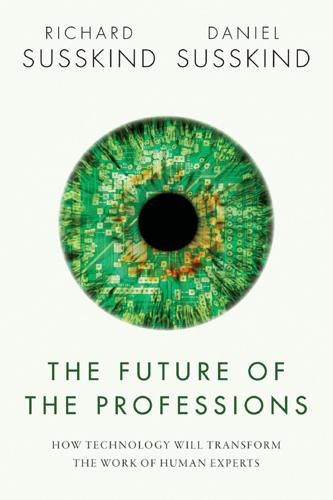
The Future of the Professions: How Technology Will Transform the Work of Human Experts
by
Richard Susskind
and
Daniel Susskind
Published 24 Aug 2015
See James Boyle, ‘The Second Enclosure Movement and the Construction of the Private Domain’, Law and Contemporary Problems, 66 (2003), 33–4. Boyle writes also of a ‘second enclosure movement’, which he characterizes as ‘the enclosure of the intangible commons of the mind’ (p. 37). This, essentially, is the enclosure of intellectual property. See also Boyle’s The Public Domain (2010). 4 John Rawls, A Theory of Justice (1999). See also John Rawls, Justice as Fairness: A Restatement (2001). 5 Anthony Kenny, What I Believe (2006), 123. Also see section 1.7. Bibliography The following is a list of all books and articles referenced in the text and contained in the footnotes, as well as a selection of further reading.
…
In this context, many who might be disposed to express a view—professionals, most notably—are far from impartial. Most professionals will naturally and understandably oppose a new arrangement, under which their own status or wealth might diminish. To help us with this dilemma, we borrow a technique developed by the political philosopher John Rawls, in his influential book A Theory of Justice.4 In developing his ideas about what constitutes a just society, Rawls asks us to imagine a hypothetical situation in which nobody knows his or her personal and social circumstances. People have no idea of their natural talents and abilities—whether, for example, they are smart, good-looking, or physically strong.
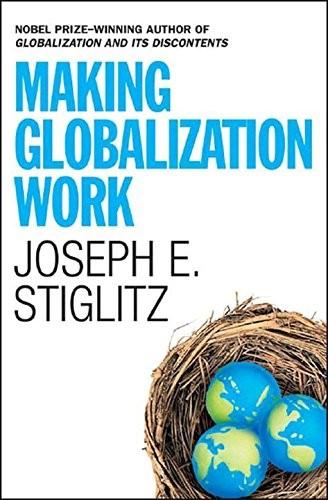
Making Globalization Work
by
Joseph E. Stiglitz
Published 16 Sep 2006
Stiglitz, “The Post Washington Consensus Consensus,” IPD Working Paper Series, Columbia University, 2004, presented at the From the Washington Consensus Towards A New Global Governance Forum, Barcelona, September 24–25, 2004. 15.The ideas of the late great Harvard philosopher John Rawls have been influential. He has urged thinking about social justice “behind a veil of ignorance,” before we know what position into which we would be born. See John Rawls, A Theory of Justice (Cambridge, MA: Harvard University Press, 1971); and Patrick Hayden, John Rawls: Towards a Just World Order (Cardiff, UK: University of Wales Press, 2002). 16.Some of the changes have to do with changing patterns of production, and this may happen again, as the economies of the world become more based on services. 17.See Karl Polyani, The Great Transformation: The Political and Economic Origins of Our Time (Boston: Beacon Press, 2001).
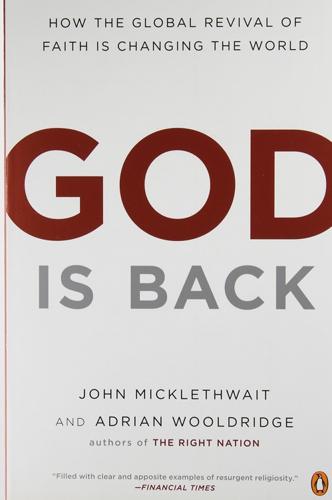
God Is Back: How the Global Revival of Faith Is Changing the World
by
John Micklethwait
and
Adrian Wooldridge
Published 31 Mar 2009
The focus of intellectual life moved elsewhere—to technocratic social science in the 1950s, to the counterculture in the 1960s, to the debate about the relationship between the market and the state in the 1980s. Most academics all but ignored the study of religion. When Harvard University designed its core curriculum for undergraduates in the 1970s, in an attempt to encourage students to broaden their minds rather than succumb to premature specialization, it decided to ignore religion. John Rawls, Harvard’s leading political philosopher, argued that people should set aside their religious views before they could participate in the public square.2 Religion was even out of favor in schools of religion: a report by the Rockefeller Foundation in 1976 found that fewer than half of the graduates of the country’s top five divinity schools—Harvard, Yale, Chicago, Vanderbilt and New York’s Union Theological Seminary—went on to work for the church or engage in further study of religion, down from four-fifths a couple of decades earlier.3 In 1988, fresh from his triumph with The Bonfire of the Vanities, Tom Wolfe told students at Harvard, not entirely happily, that they lived in an era of “freedom from religion.”4 Now God is returning to intellectual life.
…
This was an area where Evangelicals had struggled. Falwell found it hard to discuss a political issue like gay rights without bringing in scripture and indeed sin almost immediately. Neuhaus discussed it in terms of philosophy and social policy. This made it more difficult for secularists to hide behind John Rawls’s idea that religion was too private and personal to influence public debate. And it made it easier for Jews and Christians, Catholics and Protestants, to make their way back into the public square together. The new public language provided social conservatives with both an argument to rally around and a language in which to present that argument.
…
Williams, ed., Perspectives on American Religion and Culture, (Oxford: Blackwell, 1999), 222 . 14 “Church of the Mighty Dollar,” BusinessWeek, May 23, 2005. 15 “The 25 Most Influential Evangelicals in America,” Time, February 7, 2005 . CHAPTER SEVEN: EMPIRES OF THE MIND 1 Robert Nisbet, Conservatism: Dream and Reality, 107. 2 John Rawls, Political Liberalism (New York: Columbia University Press, 1996), 1. 3 Amy Sullivan, The Party Faithful, 40-1. 4 Dorothy McInnis Scura, Conversations with Tom Wolfe (Jackson: University of Mississippi Press, 1990), 284 . 5 David Brooks, “Kicking the Secularist Habit,” Atlantic Monthly, March 2003 . 6 Mike Davis, “Planet of Slums,” New Left Review, March-April 2004 . 7 Stanley Fish, “One University Under God,” Chronicle of Higher Education, January 7, 2005 . 8 Irving Kristol, “Christianity, Judaism and Socialism,” in Neoconservatism: Selected Essays: The Autobiography of an Idea (New York: Ivan Dee, 1999). 9 Mark Gerson, The Neoconservative Vision (Lanham, MD: Madison Books, 1997), 154 . 10 Novak, The Spirit of Democratic Capitalism, 14 . 11 Richard John Neuhaus, The Naked Public Square: Religion and Democracy in America (Grand Rapids: Wm.
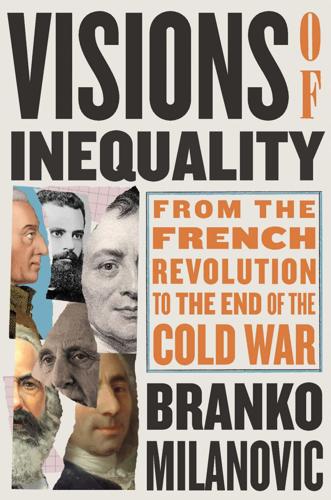
Visions of Inequality: From the French Revolution to the End of the Cold War
by
Branko Milanovic
Published 9 Oct 2023
Before turning to that hypothesis, which was Kuznets’s most important contribution regarding income distribution, we should acknowledge his three other seminal pieces of work in the same domain: his empirical study of global inequality, which was the first of its kind; his statement of the maximin principle (or difference principle), which is most associated with John Rawls but had its beginnings, chronologically, in Kuznets’s writings; and his groundbreaking discussion of the trade-off between equity and efficiency. In a 1954 paper, Kuznets produced the first empirical estimates of global income distribution, focusing on three points in time: 1894–1895, 1938, and 1949. 2 Due to the lack of data on income distributions within nations, these were global distributions of people ranked not by their individual incomes but by the average incomes of their countries.
…
Elizabeth Boody Schumpeter (Oxford: Oxford University Press, 1954; repr. 1980); Mark Blaug, Economic Theory in Retrospect (Homewood, IL: R. D. Irwin, 1962) . 3 . Leszek Kolakowski, Main Currents of Marxism, trans. P. S. Falla, 3 vols. (Oxford: Clarendon Press, 1978). 4 . Robert Heilbroner, The Worldly Philosophers: The Lives, Times, and Ideas of the Great Economic Thinkers, 7th ed. (New York: Touchstone, 1999). 5 . See John Rawls, A Theory of Justice (Cambridge, MA: Belknap Press of Harvard University Press, 1971), 53–59. 6 . See, for example, Amartya Sen, On Economic Inequality (Oxford: Clarendon Press, 1973). 7 . Shlomo Avineri, The Social and Political Thought of Karl Marx (Cambridge: The University Press, 1968).
…
The difference is nicely pointed out by Rawls in his letter to Amartya Sen: “That’s like saying general equilibrium theory is partially blind economics. This is something one might reasonably say about an economist but not about the theory, that is, about an economist who thinks general equilibrium theory is all there is to economics and a satisfactory theory of all of economic phenomena.” John Rawls to Amartya Sen, July 28, 1981, quoted in Herrade Igersheim, “Rawls and the Economists: The (Im)possible Dialogue,” Revue économique 73, no. 6 (2023): 1013–1037. 54 . Micha ł Kalecki, “The Determinants of the Distribution of National Income,” Econometrica 8, no. 2 (1938): 97–112. 55 . Nicholas Kaldor, “Alternative Theories of Distribution,” Review of Economic Studies 23 (1956): 83–100 56 .
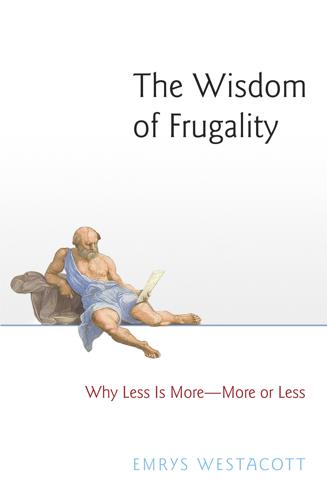
The Wisdom of Frugality: Why Less Is More - More or Less
by
Emrys Westacott
Published 14 Apr 2016
The last observation leads to a further reason why we find it hard today to be content with Epicurus’s bare necessities: we now need more in order to sustain our self-respect. This matters because self-respect is, by common consent, a necessary condition of happiness. In A Theory of Justice the political philosopher John Rawls makes it one of his “primary goods”—that is, one of the things that every rational person can be assumed to want, whatever his or her life plan might be. Rawls in fact suggests that self-respect may be the most important primary good, for without it individuals lose a sense of their own moral worth and are liable to feelings of shame.32 Ideally, perhaps, we would be like Diogenes in his barrel, utterly indifferent to our standing in the socioeconomic pecking order.
…
Dave Bruno, The 100 Thing Challenge: How I Got Rid of Almost Everything, Remade My Life, and Regained My Soul (New York: William Morrow, 2010). 30. See Daniel Gilbert, Stumbling on Happiness (New York: Vintage, 2007). 31. Jerome M. Segal, Graceful Simplicity: Toward a Philosophy and Politics of Simple Living (New York: Henry Holt, 1999), pp. 52–53. 32. John Rawls, A Theory of Justice (Cambridge, MA: Harvard University Press, 1970), p. 440. 33. Marcus Aurelius, Meditations, XII. 34. See Thomas More, Utopia, trans. Clarence Miller (New Haven, CT: Yale University Press, 2014), bk.2, chap. 4. 35. Henry Howard, “The Means to Attain a Happy Life,” in The Poems of Henry Howard, Earl of Surrey (Seattle: University of Washington Press, 1920), p. 94. 36.
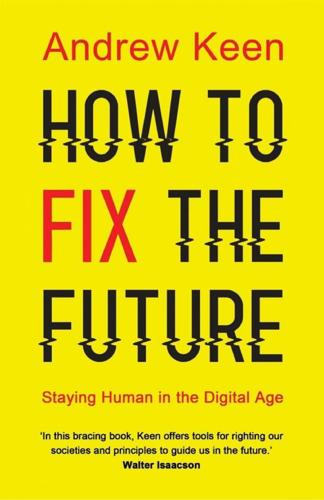
How to Fix the Future: Staying Human in the Digital Age
by
Andrew Keen
Published 1 Mar 2018
The daughter of a policeman—“We started out poor,” she tells me—Poh studied politics, economics, and philosophy at both Oxford and Cambridge universities as a state-sponsored scholar before entering government service. She speaks about her “responsibility” to the community, citing what she describes as the “social justice” ideas of the American philosopher John Rawls. She is inspired by Rawls’s thought experiment of a “veil of ignorance,” which, she says, convinced her of a moral responsibility to look after the less fortunate members of society. Thus her support for Singapore’s national broadband network, with what she calls its “comprehensive” fiber-to-home service for all citizens.
…
“What,” I ask the wiry, mustachioed young civil servant, “does data mean to you?” It means, Maniam answers, the potential to bring a community closer together. And it means, he adds, the possibility to deepen the trust between the government and its citizens. Like Poh, Maniam is interested in the philosophy of John Rawls. But he’s also well versed in the work of communitarian thinkers such as Harvard University’s Michael Sandel and the Scottish political philosopher Alisdair MacIntyre, who both prioritize the idea of the community over individual rights. Maniam tells me that he’s particularly interested in the role that networked technology plays in building trust in the community and establishing a more interactive kind of democracy.
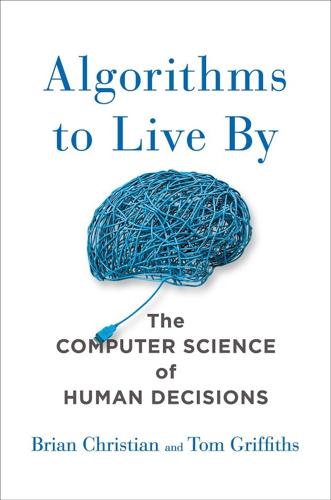
Algorithms to Live By: The Computer Science of Human Decisions
by
Brian Christian
and
Tom Griffiths
Published 4 Apr 2016
And we aren’t particularly surprised when, say, a television drug lord knifes open a few bundles at random to be reasonably certain about the quality of the entire shipment. There are cases, though, where we don’t turn to randomness—and maybe we should. Arguably the most important political philosopher of the twentieth century was Harvard’s John Rawls, who set for himself the ambitious task of reconciling two seemingly opposite key ideas in his field: liberty and equality. Is a society more “just” when it’s more free, or more equal? And do the two really have to be mutually exclusive? Rawls offered a way of approaching this set of questions that he called the “veil of ignorance.”
…
Time.” he called the “veil of ignorance”: The veil of ignorance is introduced in Rawls, A Theory of Justice. Rawls’s philosophical critics: Most prominent among Rawls’s critics was economist John Harsanyi; see, e.g., Harsanyi, “Can the Maximin Principle Serve as a Basis for Morality? A Critique of John Rawls’s Theory.” the civilization of Omelas: Le Guin, “The Ones Who Walk Away from Omelas.” These are worthy critiques: For more on what is sometimes called “the repugnant conclusion,” see Parfit, Reasons and Persons, as well as, for instance, Arrhenius, “An Impossibility Theorem in Population Axiology.”
…
Oxford, UK: Oxford University Press, 1967. ______. “Prime Numbers.” British Association Report 10 (1915): 350–354. Harmenberg, J. Epee 2.0: The Birth of the New Fencing Paradigm. New York: SKA Swordplay Books, 2007. Harsanyi, John C. “Can the Maximin Principle Serve as a Basis for Morality? A Critique of John Rawls’s Theory.” The American Political Science Review 69, no. 2 (1975): 594–606. Harvey, Jerry B. “The Abilene Paradox: The Management of Agreement.” Organizational Dynamics 3, no. 1 (1974): 63–80. Hastings, W. K. “Monte Carlo Methods Using Markov Chains and Their Applications.” Biometrika 57 (1970): 97–109.
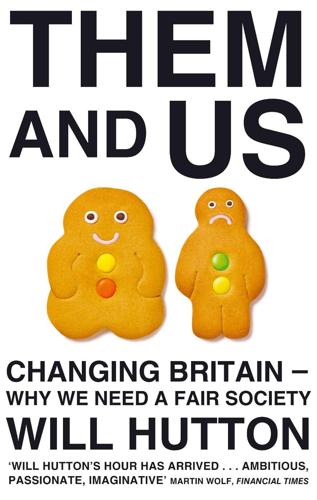
Them And Us: Politics, Greed And Inequality - Why We Need A Fair Society
by
Will Hutton
Published 30 Sep 2010
Most contemporary theorists of social science or justice would run a mile from being dubbed Marxist – with its connotations of authoritarianism, command economies and economic failure. Yet, like Marx, they believe that individuals are almost entirely shaped by economic and social circumstance. Even arch-liberal John Rawls signs up to the view that human nature is entirely a product of social condition – a position he shares with Marx. There is no room for desert in a world in which our talents and skills are dependent upon ‘all kinds of social conditions and class attitudes’. Rawls continues: ‘even the willingness to make an effort, to try to be deserving in an ordinary sense is dependent on fortunate family and social circumstances’.13 Personal characteristics are shaped by society to such a degree that they cannot be included in any roll-call of judgements about worth.
…
It is to accept that every explanation is plausible, rather than to fall for a seductive theory that might not get to the heart of why a random event occurred. Respect the random. Acknowledge luck. Living with luck There are two well-trodden means to incorporate all of this luck into a system of moral values. The first is to join John Rawls and argue that, as all one’s options and choices are prescribed by socioeconomic and geographical luck, it is wrong to ask the poor to take responsibility for their circumstances, just as it is wrong to admire the rich. Only when we live in a just system in which luck plays a minimal or non-existent role can we talk in terms of desert.
…
Klenow (2006) ‘Valuing Consumer Products by the Time Spent Using Them: An Application to the Internet’, American Economic Review 96 (2): 108–13. 11 John Locke (1690) Second Treatise of Government, chapter 5. 12 Samuel Fleischacker (2005) A Short History of Distributive Justice, Harvard University Press. 13 John Rawls (1971) A Theory of Justice, Oxford University Press, p. 63. 14 Karl Marx, ‘Critique of the Gotha Programme’, in D. McLellan (ed.) Karl Marx Selected Writings, Oxford University Press, p. 566f. 15 James Konow (2003) ‘Which Is the Fairest One of All? A Positive Analysis of Justice Theories’, Journal of Economic Literature 41: 1188–239.
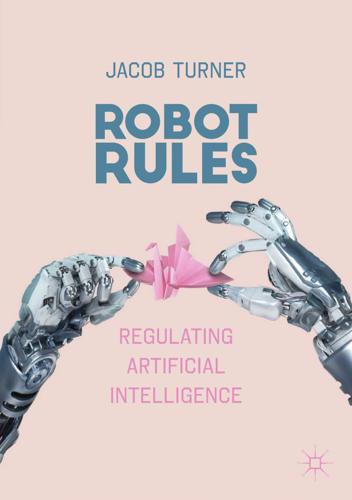
Robot Rules: Regulating Artificial Intelligence
by
Jacob Turner
Published 29 Oct 2018
.”: “White Paper on Standardization in AI”, National Standardization Management Committee, Second Ministry of Industry, 18 January 2018, http://www.sgic.gov.cn/upload/f1ca3511-05f2-43a0-8235-eeb0934db8c7/20180122/5371516606048992.pdf, accessed 1 June 2018. 27Ulrich Beck, “The Reinvention of Politics: Towards a Theory of Reflexive Modernization”, in Reflexive Modernization: Politics, Tradition and Aesthetics in the Modern Social Order, edited by Ulrich Beck, Anthony Giddens, and Scott Lash (Cambridge: Polity Press, 1994), 1–55. 28 Jean-Jacques Rousseau, The Social Contract , edited and translated by Victor Gourevitch (Cambridge: Cambridge University Press: 1997), Book 2, 4. 29 Human Rights Committee General Comment No. 25: CCPR/C/21/Rev.1/Add.7, 12 July 1996. 30Morag Goodwin and Roger Brownsword, Law and the Technologies of the Twenty-First Century: Text and Materials (Cambridge: Cambridge University Press, 2012), 262. 31This justification for free speech was set out in the writings of John Stuart Mill and was invoked by Justice Oliver Wendell Holmes in a celebrated dissent in the US Supreme Court Case Abrams v. United States, 250 U.S. 616 (1919), at 630. 32 John Rawls, A Theory of Justice: Revised Edition (Oxford: Oxford University Press, 1999). See also Jurgen Habermas, “Reconciliation Through the Public Use of Reason: Remarks on John Rawls’s Political Liberalism”, The Journal of Philosophy, Vol. 92, No. 3 (1995), 109–131. 33Morag Goodwin and Roger Brownsword, Law and the Technologies of the Twenty-First Century: Text and Materials (Cambridge: Cambridge University Press, 2012), 255. 34See further Chapter 8 at s. 3.3.1. 35Resources are available on the website of the UK’s All Party Parliamentary Group on AI, http://www.appg-ai.org/, accessed 1 June 2018. 36“Notice-and-Comment’ Rulemaking”, Centre for Effective Government, https://www.foreffectivegov.org/node/2578, accessed 1 June 2018.
…
Another background condition for effective public participation is the freedom of speech for individuals and groups to voice their opinions and create a marketplace of ideas.31 The public does not speak with one voice. When a regulator has to take a decision between competing regulatory options, one or more parts of the population may well be left dissatisfied with the outcome. The solution for policy-makers is to engender a sense of what political philosopher John Rawls’ called “public reason” among subjects. This describes the notion that in a just society, rules which regulate public life should be justifiable or acceptable to all those affected. This does not mean that each individual citizen needs to agree with every rule, but they should at least consent to the system.
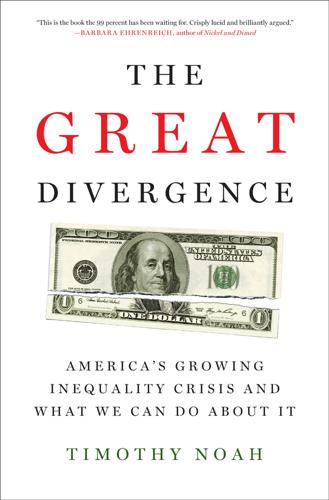
The Great Divergence: America's Growing Inequality Crisis and What We Can Do About It
by
Timothy Noah
Published 23 Apr 2012
Stern also thinks unions need to create alliances abroad and ultimately operate as global entities, much as multinational corporations do. “Imagine simultaneous protests on service contractors’ global clients,” Stern wrote, “or outsourcing strikes to countries where strikes are legal and will not provoke government retaliation.” Workers of the world, unite! IN HIS 1971 book A Theory of Justice, the Harvard philosopher John Rawls explains why equality of opportunity is not sufficient to create a just world. “Even if it works to perfection in eliminating the influence of social contingencies,” Rawls writes, “it still permits the distribution of wealth and income to be determined by the natural distribution of abilities and talents.”
…
_r=3&pagewanted=1. A Nation at Risk: The Imperative for Educational Reform, National Commission on Excellence in Education (Washington: Education Department, 1983). Raghuram G. Rajan, Fault Lines: How Hidden Fractures Still Threaten the World Economy (Princeton, NJ: Princeton University Press, 2010). John Rawls, A Theory of Justice (Cambridge, MA: Harvard University Press, 1971). Andy Stern, A Country That Works: Getting America Back on Track (New York: Free Press, 2008; originally published in 2006). Richard Wilkinson and Kate Pickett, The Spirit Level: Why Greater Equality Makes Societies Stronger (New York: Bloomsbury, 2009). 1.
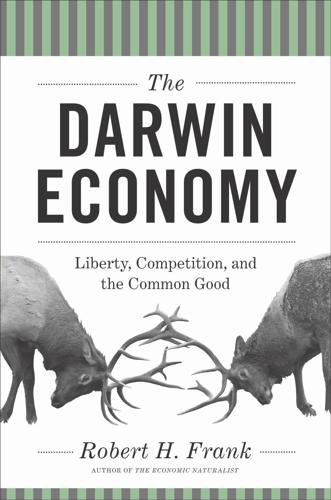
The Darwin Economy: Liberty, Competition, and the Common Good
by
Robert H. Frank
Published 3 Sep 2011
Once members have agreed to the institutions and governing rules for their societies, however, they’re free to spend their incomes as they wish. I note in passing that this exercise is in at least one important respect very different from the famous thought experiment proposed by the moral philosopher John Rawls.1 Rawls asked readers to imagine themselves behind a veil of ignorance that shielded them from knowing what their own talents and temperaments were. He argued that distribution rules chosen from behind such a veil would be presumptively fair, since people wouldn’t know which particular rules would work to their advantage.
…
Cook, Paying the Tab: The Costs and Benefits of Alcohol Control, Princeton, NJ: Princeton University Press, 2007. 13. N. Gregory Mankiw, “Can a Soda Tax Save Us from Ourselves?” New York Times, June 5, 2010, http://www.nytimes.com/2010/06/06/business/06view.html. Chapter Twelve: The Libertarian’s Objections Reconsidered 1. John Rawls, A Theory of Justice, Cambridge, MA: Belknap Press of Harvard University Press, 1971. 2. Harriet Rubin, “Ayn Rand’s Literature of Capitalism,” New York Times, September 15, 2007, http://www.nytimes.com/2007/09/15/business/15atlas.html. 3. Adam Smith, An Inquiry into the Nature and Causes of the Wealth of Nations, State College, PA: Penn State University, 2005, book 1, chapter 1 (originally published in 1776), http://www.online-literature.com/adam_smith/wealth_nations/3/. 4.
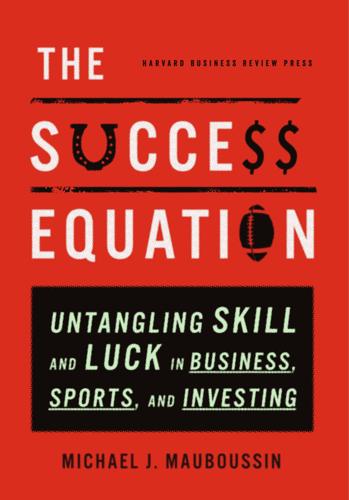
The Success Equation: Untangling Skill and Luck in Business, Sports, and Investing
by
Michael J. Mauboussin
Published 14 Jul 2012
“Bill Gates Answers Most Frequently Asked Questions,” http://insidemicrosoft.blogspot.com/2004/12/bill-gates-faqd.html. 5. For example, see John Rawls's theory of distributive justice. Rawls argues that even effort—which is typically associated with skill—can be the lucky result of upbringing: “Even the willingness to make an effort, to try, and to so be deserving in an ordinary sense is itself dependent upon happy family and social circumstances.” John Rawls, A Theory of Social Justice (Cambridge, MA: Belknap Press, 1971). For a good summary of Rawls's argument, see Michael J. Sandel, Justice: What's the Right Thing to Do?
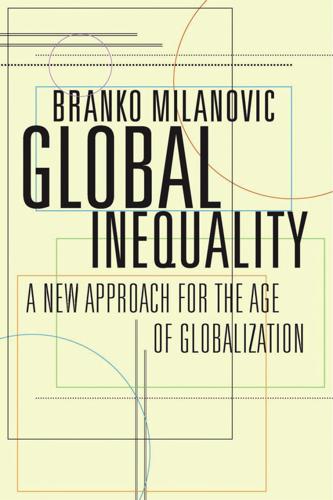
Global Inequality: A New Approach for the Age of Globalization
by
Branko Milanovic
Published 10 Apr 2016
The very existence of a large citizenship premium indicates that there is currently no such thing as global equality of opportunity: a lot of our income depends on the accident of birth. Should we strive to remedy this situation? Or should we concede that the quest for equality of opportunity ends at national borders? The ne plus ultra of the nation-state? This is a question that political philosophers have thought about more than economists. Some, following John Rawls and his Law of Peoples (1999), believe that global equality of opportunity is not a significant issue and that every argument for it conflicts with the right of national self-determination. Differences in wealth and opportunity between countries are viewed as the product of the differences in choices made by nations: people in some nations, according to Rawls, decide to work and save more; those in other nations decide to work and save less: “if [a people] is not satisfied [with its wealth] it can continue to increase savings or … borrow from other members of the Society of Peoples” (p. 114).18 Those who are poorer have no claim on the income or wealth of the richer.
…
Formal equality is surely a necessary condition for overall betterment. But it is not sufficient. A movement toward more generalized equalization of the human condition requires not only legal equality between the different groups that humans are divided into, but also substantively greater income and wealth equality. Existential equality is equivalent to what John Rawls calls meritocratic equality—what he views as the lowest level of equality, where all participants are legally free to pursue whatever career they choose but where their starting positions are often vastly different. Those who care exclusively about “identities” aim to place everybody on the same starting line but do not care that some come to the starting line with Ferraris and others with bicycles.
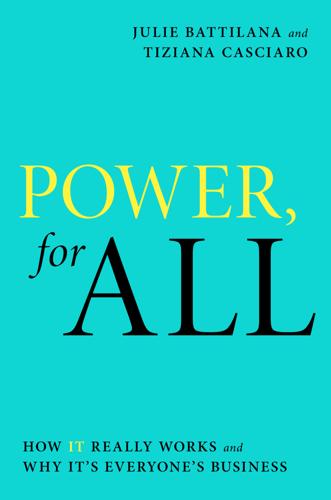
Power, for All: How It Really Works and Why It's Everyone's Business
by
Julie Battilana
and
Tiziana Casciaro
Published 30 Aug 2021
Young or old, rich or poor, male, female, or nonbinary, highly educated or not, disabled or not. Would you design a democracy or an autocracy? Provide universal access to health care or limit such access to those who can afford to pay? Guarantee a quality education for every child or exclude many? This thought experiment, posed by the political philosopher John Rawls, raises critical questions about the just distribution of power. Through the veil of ignorance, the experiment forces us to consider everyone’s well-being and access to opportunities without being biased by our own social status—which is why Rawls believed it would lead to fairer societies.1 Philosophers have been debating what constitutes a just distribution of power for millennia,2 and many people are tempted to think that the philosopher’s study is precisely where the topic belongs.
…
The Atlantic, March 8, 2021, https://www.theatlantic.com/magazine/archive/2021/04/the-internet-doesnt-have-to-be-awful/618079/. 103 For details of every case, see vTaiwan’s website: https://info.vtaiwan.tw/#three. 104 Hélène Landemore, Open Democracy: Reinventing Popular Rule for the Twenty-First Century (Princeton, NJ: Princeton University Press, 2020). CONCLUSION: IT’S UP TO US 1 John Rawls, A Theory of Justice (Cambridge, MA: Harvard University Press, 1971). 2 For contemporary accounts and theories of justice that also provide an overview of past work, see Iris Marion Young, Justice and the Politics of Difference (Princeton, NJ: Princeton University Press, 1990); Michael J. Sandel, Justice: What’s the Right Thing to Do?
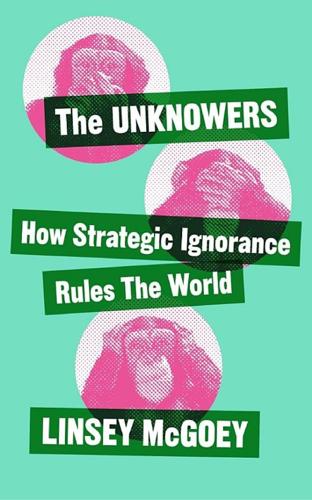
The Unknowers: How Strategic Ignorance Rules the World
by
Linsey McGoey
Published 14 Sep 2019
Many natural scientists, by and large, do now admit and celebrate this fact, emphasizing that science is always ignorant at some level, and also that shared human ignorance is what helps to drive science forward.10 And yet the importance of this insight hasn’t really pierced political theory. Philosophers will point to American political philosopher John Rawls’ notion of a ‘veil of ignorance’ (I introduce the concept in the next chapter) as evidence that the unknown can be a fruitful academic tool for understanding why some people have less physical liberty or economic freedom than others. Rawls’ idea is an important one, but the point I am making is different.
…
And his greatest insight was that the problem can be countered – that it’s possible for individuals to expand their own narrow understanding, deliberately enlarging our perspective to understand how our behaviour affects others. Even before path-breaking scholars like American sociologist W.E.B. Du Bois and John Rawls used the metaphor of the ‘veil’ to understand the limits and the potential of human understanding, Smith called for a similar mechanism, using the image of the ‘spectator’ to call on people to use the greatness of their imagination to see a problem in a multifaceted way. Wollstonecraft went a step further than him, suggesting the state should provide public education in a way that increased the opportunity for one’s narrow worldview to be enlarged.
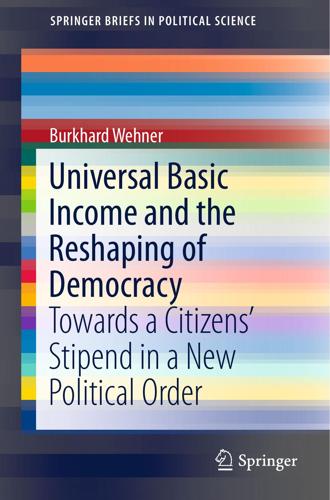
Universal Basic Income and the Reshaping of Democracy: Towards a Citizens’ Stipend in a New Political Order
by
Burkhard Wehner
Published 10 Jan 2019
So why, one might ask, should democratic states, which have failed on so many lesser tasks, develop unprecedented foresight and creative power in, of all things, implementing basic income? To this there is no plausible answer. That existing democratic procedures would not be adequate to basic income projects can be inferred from experience, but equally convincing from philosophical arguments. John Rawls, in A Theory of Justice (Rawls 1971), argued that decision makers on distributional justice should be disinterested persons for whom nothing personal is at stake. This aspect of the debate may at first sight seem purely theoretical, but it is a compelling argument. Rawls suggests that basic decisions about distributional justice should be made under a fictitious temporary “veil of ignorance” about ones’ personal circumstances.
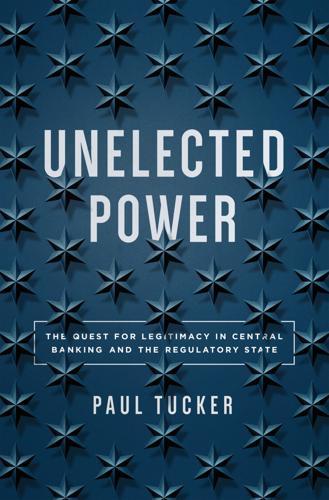
Unelected Power: The Quest for Legitimacy in Central Banking and the Regulatory State
by
Paul Tucker
Published 21 Apr 2018
For example, an SWF might give equal weight to each person’s preference ordering, through simple adding up, which accords zero weight to distributional issues and so is a relative of the ethical position taken in Bentham’s classical utilitarianism. Or an SWF might focus entirely on the welfare of the least-well-off person in the community, which is a relative of late-twentieth-century political philosopher John Rawls’s doctrine of “justice as fairness” and, thus, is one way of putting distributional issues first. 10 Known as Potential Pareto Efficiency. There are some technical problems with the Hicks-Kaldor concept, which I won’t get into. 11 Okun, Equality and Efficiency (chapter 1), argues that not everything is or should be tradable for money (e.g., some rights). 12 Greenwald and Stiglitz, “Externalities in Economies.” 13 I do not cover cognitive biases. 14 Lighthouses could be supplied privately in England, but under local or central-state coordination of various kinds. 15 On common goods, see Ostrom, Governing the Commons. 16 Pigou, Economics of Welfare. 17 Dewey, Public and Its Problems, p. 12. 18 This is important to criticisms of the administrative state rooted in the defense of property rights; e.g., Epstein, “Perilous Position.” 19 Sunstein, After the Rights Revolution.
…
It stumbles on the lack of actual explicit consent to modern government, and on the tenuous notion that signals of only tacit (implied) consent, such as voting in elections, could be enough to entail moral obligations with such telling consequences.4 By contrast, for other traditions, the supposed contract is no more than a metaphor for conveying how the members of a political community ought to conduct themselves: for Kantians by the dictates of justice, and in the Hobbesian tradition by the light of instrumental rationality.5 Each faces difficulties in grounding an obligation to obey in the real world. Kant and his modern followers, perhaps preeminently twentieth-century political theorist John Rawls, hold that enlightened reason will lead us to a cooperative equilibrium that recognizes and reflects each person’s inalienable right to autonomy and dignity: others are ends in themselves, not means to our respective self-centered interests. We thus have duties to each other as well as an interest in our own welfare or well-being, entailing a rich catalog of reciprocal rights.
…
For prosperity, economists can argue—and did argue to the post-1989 countries transitioning from communism—that the rule of law should have priority over democracy as it guards property rights against the volatility and excesses of majoritarian policy making.5 That is the classic liberal view of a law of rules, associated in modern times with Hayek:6 Stripped of all technicalities, this means that government in all its actions is bound by rules fixed and announced beforehand—rules which make it possible to foresee with fair certainty how the authority will use its coercive powers in given circumstances and to plan one’s individual affairs on the basis of this knowledge. The deeper values here are freedom from interference and the Hobbesian goal of stability. From Rules to Fair Adjudication This sentiment is by no means confined to classical liberals. Thus the social-democratic liberal political philosopher John Rawls:7 A legal system is a coercive order of public rules addressed to rational persons for the purpose of regulating their conduct and providing the framework for social cooperation. When these rules are just [and so should be accepted] they establish a basis for legitimate expectations. (My interpolation) While Rawls and Hayek are left to disagree on the substance of public policy, they share the conception of law as rules.
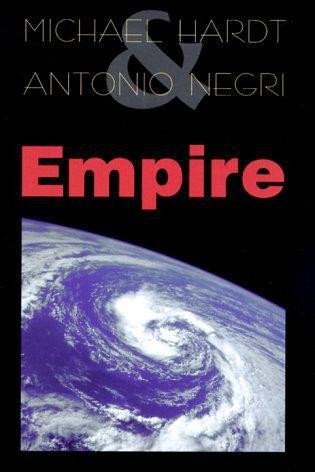
Empire
by
Michael Hardt
and
Antonio Negri
Published 9 Mar 2000
On her formulation ofthe reactionary reversal ofthe slogan ‘‘The personal is the political,’’ see pp. 175–180. For her excellent analysis ofthe ‘‘intimate public sphere,’’ see pp. 2–24. 20. The liberal order ofEmpire achieves the kind of‘‘overlapping consensus’’ proposed by John Rawls in which all are required to set aside their ‘‘comprehensive doctrines’’ in the interests oftolerance. See John Rawls, Political Liberalism (New York: Columbia University Press, 1993). For a critical review ofhis book, see Michael Hardt, ‘‘On Political Liberalism,’’ Qui Parle, 7, no. 1 (Fall/Winter 1993), 140–149. 21. On the (re)creation ofethnic identities in China, for example, see Ralph Litzinger, ‘‘Memory Work: Reconstituting the Ethnic in Post-Mao China,’’ Cultural Anthropology, 13, no. 2 (1998), pp. 224–255. 22.
…
The new paradigm is both system and hierarchy, centralized construction ofnorms and far-reaching production oflegitimacy, spread out over world space. It is configured ab initio as a dynamic and flexible systemic structure that is articulated horizontally. We conceive the structure in a kind ofintellectual shorthand as a hybrid ofNiklas Luhmann’s systems theory and John Rawls’s theory of 14 T H E P O L I T I C A L C O N S T I T U T I O N O F T H E P R E S E N T justice.20 Some call this situation ‘‘governance without government’’ to indicate the structural logic, at times imperceptible but always and increasingly effective, that sweeps all actors within the order ofthe whole.21 The systemic totality has a dominant position in the global order, breaking resolutely with every previous dialectic and developing an integration ofactors that seems linear and sponta- neous.
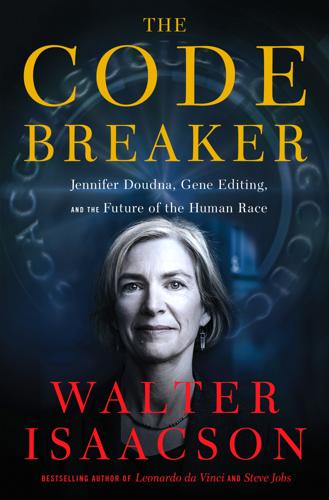
The Code Breaker: Jennifer Doudna, Gene Editing, and the Future of the Human Race
by
Walter Isaacson
Published 9 Mar 2021
26 * * * In 2001, the Kass Commission included many distinguished conservative or neoconservative thinkers, including Robert George, Mary Ann Glendon, Charles Krauthammer, and James Q. Wilson. Two prominent philosophers proved to be especially influential members. The first was Michael Sandel, a Harvard professor who is the contemporary successor to John Rawls in defining the concept of justice. At the time, he was writing an essay titled “The Case Against Perfection: What’s Wrong with Designer Children, Bionic Athletes, and Genetic Engineering,” which he published in The Atlantic in 2004.27 The other key thinker was Francis Fukuyama, who in 2000 published Our Posthuman Future: Consequences of the Biotechnology Revolution, which was a forceful call for governments to regulate biotechnology.28 Not surprisingly, their final 310-page report, Beyond Therapy, was thoughtful, vibrantly written, and filled with qualms about genetic engineering.
…
On the other side are those who wish to promote the common good, create benefits for all of society, minimize the harm that an untrammeled free market can do to our work and environment, and restrict selfish behaviors that might harm the community and the planet. The modern foundations for each of these perspectives was expressed in two influential books written fifty years ago: John Rawls’s A Theory of Justice, which comes down on the side of favoring the good of the community, and Robert Nozick’s Anarchy, State, and Utopia, which emphasizes the moral foundation for individual liberty. Rawls seeks to define the rules that we would agree to if we had gathered to make a compact. In order to make sure things are “fair,” he said that we should imagine what rules we would make if we didn’t know what place we would each end up occupying in society and what natural abilities we would have.
…
National Academy of Sciences, “How Does Human Gene Editing Work?” 2019, https://thesciencebehindit.org/how-does-human-gene-editing-work/, page removed; Marilynn Marchione, “Group Pulls Video That Stirred Talk of Designer Babies,” AP, Oct. 2, 2019. 2. Twitter thread, @FrancoiseBaylis, @pknoepfler, @UrnovFyodor, @theNASAcademies, and others, Oct. 1, 2019. 3. John Rawls, A Theory of Justice (Harvard, 1971), 266, 92. 4. Nozick, Anarchy, State and Utopia, 315n. 5. Colin Gavaghan, Defending the Genetic Supermarket (Routledge-Cavendish, 2007); Peter Singer, “Shopping at the Genetic Supermarket,” in John Rasko, ed., The Ethics of Inheritable Genetic Modification (Cambridge, 2006); Chris Gyngell and Thomas Douglas, “Stocking the Genetic Supermarket,” Bioethics, May 2015. 6.
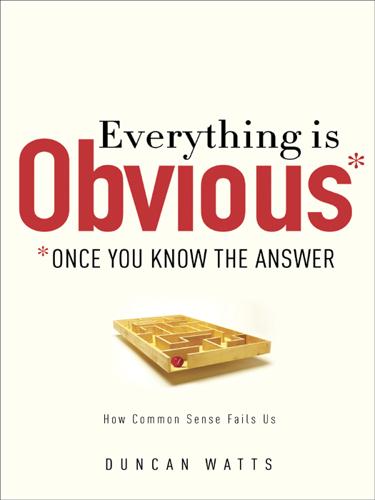
Everything Is Obvious: *Once You Know the Answer
by
Duncan J. Watts
Published 28 Mar 2011
If boards were more willing to question the very idea of the irreplaceable CEO, and if searches for CEOs were then opened to a wider pool of candidates, it would be more difficult for candidates to negotiate such extravagant packages at the outset.23 THE INDIVIDUAL AND SOCIETY Whether we can answer them or not, questions about how to differentiate luck from talent and individual contributions from collective performance can also inform our thinking about fairness and justice in society as a whole. This issue was raised in somewhat different language in a famous argument between the political philosophers Robert Nozick and John Rawls over what constitutes a just society. Nozick was a libertarian who believed that people, in essence, got what they had worked for, and therefore no one was entitled to take it from them, even if that meant putting up with large inequalities in society. Rawls, by contrast, asked what kind of society each of us would choose to live in if we didn’t know beforehand where in the socioeconomic hierarchy we would end up.
…
Nor is it necessarily the case that the most complicated and pressing real-world problems—such as achieving consensus around matters of social justice or designing institutions that cope with uncertainty—can ever be “solved” in an engineering sense, no matter how much basic science we acquire. For problems like these, we can still discover that some solutions work better than others—using, for example the kind of bootstrapping and experimental approaches outlined in Chapter 8 or the deliberative approach to democracy that political philosophers such as John Rawls and Michael Sandel have long advocated. But the exact cause-and-effect mechanisms may remain forever elusive. Ultimately, we will probably need to pursue all these approaches simultaneously, attempting to converge on an understanding of how people behave and how the world works both from above and from below, bringing to bear every method and resource that we have at our disposal.
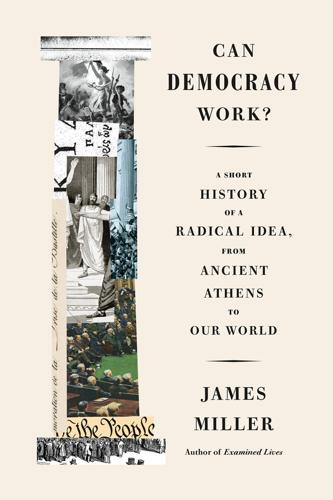
Can Democracy Work?: A Short History of a Radical Idea, From Ancient Athens to Our World
by
James Miller
Published 17 Sep 2018
But under a democratic form of government with a justly regulated economy—the aspiration of all social democrats and many liberal democrats as well—citizens would not only have equal civil and political rights; they would also know that those who are lucky enough to be born with greater natural talents are not going to get rich at the expense of those less fortunate: in such a society, as John Rawls put it, “men agree to share one another’s fate.” The American experience itself proves that a liberal democracy, if one seriously tries to achieve this goal, can be egalitarian and inclusive, and welcoming to immigrants and outsiders regardless of their origin or religious faith. The American experience also proves that sentiments of solidarity can coexist with the kinds of self-reliance and self-determination prized by democratic individualists like Emerson and Whitman.
…
Both elections expressed a desire: The Economist’s Democracy Index 2016 is especially nuanced in its treatment of Brexit and the Trump election, unlike the Freedom House report, which criticizes populist movements as an unambiguous threat to democracies. “We sometimes expect too little”: Estlund, Democratic Authority, 259, 269. “men agree to share one another’s fate”: John Rawls, A Theory of Justice (Cambridge, MA: Harvard University Press, 1971), 102 (a passage dropped from the revised edition of 1999). “a modern democratic state is only possible”: Lindsay, The Modern Democratic State, 261; he remarks on the rarity of common sense on 276–281. “is chiefly the manipulation of power and public opinion”: Václav Havel, “Politics, Morals and Civility,” in Summer Meditations, trans.
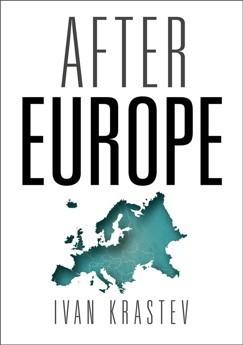
After Europe
by
Ivan Krastev
Published 7 May 2017
They praise the people for not speaking foreign languages and for having nowhere to go. In short, what populists promise their voters is not competence but intimacy. They promise to reestablish the bond between the elites and the people. And a rapidly increasing number in Europe today find this promise appealing. The American philosopher John Rawls spoke for many liberals when he argued that being a loser in a meritocratic society was not as painful as being a loser in an openly unjust society. In his conception, the fairness of the game would reconcile people with failure. Today it looks as if the great philosopher may have been wrong. The crisis of meritocratic elites at least partially explains the crisis of leadership in Europe.
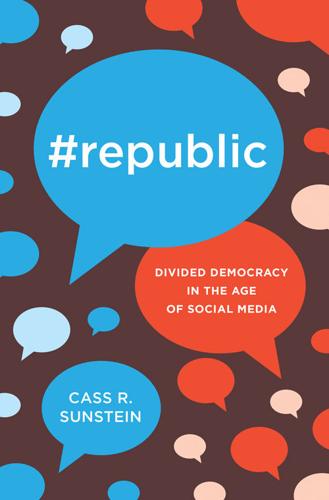
#Republic: Divided Democracy in the Age of Social Media
by
Cass R. Sunstein
Published 7 Mar 2017
When there are many who contribute to the process of deliberation, each can bring his [sic] share of goodness and moral prudence; . . . some appreciate one part, some another, and all together appreciate all.”14 Here, then, is a clear suggestion that many minds, deliberating together, may improve on “the quality of the few best.” Centuries later, John Rawls wrote of the same possibility: “The benefits from discussion lie in the fact that even representative legislators are limited in knowledge and the ability to reason. No one of them knows everything the others know, or can make all the same inferences that they can draw in concert. Discussion is a way of combining information and enlarging the range of arguments.”15 Jürgen Habermas, elaborating these themes, stresses norms and practices designed to allow victory by “the better argument”: Rational discourse is supposed to be public and inclusive, to grant equal communication rights for participants, to require sincerity and to diffuse any kind of force other than the forceless force of the better argument.
…
For varying perspectives, see Amy Gutmann and Dennis Thompson, Democracy and Disagreement (Cambridge, MA: Belknap Press, 1998); Jürgen Habermas, Between Facts and Norms (Cambridge, MA: MIT Press, 1997); Jon Elster, ed., Deliberative Democracy (New York: Cambridge University Press, 1998). 14.Aristotle, Politics, trans. Ernest Barker (Oxford: Oxford University Press, 1972), 123. 15.John Rawls, A Theory of Justice (Cambridge, MA: Harvard University Press, 1971), 358–59. 16.See Habermas, Between Facts and Norms, 940. 17.For a discussion of the preconditions for communication, see Jürgen Habermas, “What Is Universal Pragmatics?” in Communication and the Evolution of Society, trans. Thomas McCarthy (Boston: Beacon Press, 1979), 1, 2–4, 32. 18.As one illustration, many cities have created websites for citizens to report potholes.
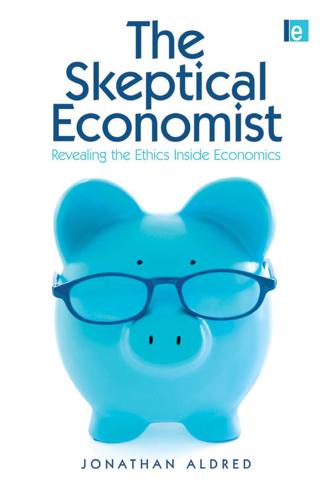
The Skeptical Economist: Revealing the Ethics Inside Economics
by
Jonathan Aldred
Published 1 Jan 2009
In what follows I argue that, even in principle, it is hard to see how market rates of pay might be justified as deserved. A true free market and meritocracy would not secure this objective. So if people ought to be paid what they deserve, then the pattern of pay is likely to be radically different from anything which might arise in a free market. John Rawls, one of the most influential political philosophers of the 20th century, elegantly captured one of the intractable problems: ‘We do not deserve our place in the distribution of natural talents, any more than we deserve our initial starting place in society.’35 In other words, those born with inherited talent deserve it no more than those born with inherited wealth.
…
Football clubs would not have to offer high pay in order to attract people to a job with relatively few associated burdens. In contrast, the pay of chicken factory cleaners would probably be relatively high. It seems that there is a flaw in the story so far. Hardly any of us have innate football skills equal to David Beckham’s, so how could we choose such jobs? But as John Rawls emphasized, we inherit these natural talents, and we are not responsible for our genetic inheritance, so cannot be said to deserve it. Consequently we do not deserve to be blocked from entering certain occupations purely on the basis of our (lack of) natural talent. Such barriers are irrelevant for the purpose of determining deserved pay differences due to job-related burdens.
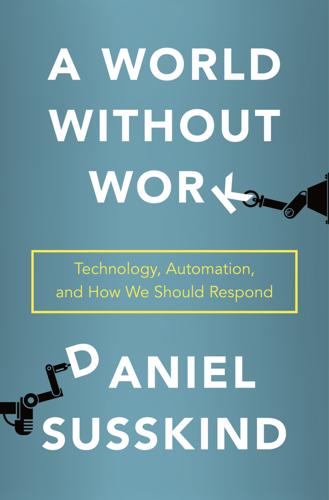
A World Without Work: Technology, Automation, and How We Should Respond
by
Daniel Susskind
Published 14 Jan 2020
Figure 8.1: Gini Coefficients from Mid-1980s to 2017 (or Latest)12 Figure 8.2 shows that in the thirty-four years before 1980, income growth in the United States was fairly solid for everyone. In the thirty-four years after 1980, however, income growth was anemic for the people who earned the least, while it soared for the 1 percent who earned the most. For followers of John Rawls, the vastly influential twentieth-century political philosopher, this picture is especially off-putting. In his great work, A Theory of Justice, Rawls argued that inequalities should “be to the greatest benefit of the least advantaged” members of society.13 Before 1980, the spirit of that principle was largely upheld in this economic domain: the incomes of the poorest increased as much as those of others, or even slightly more.
…
These are post-tax and transfer Gini coefficients for 2017, or latest available year. This is an updated version of Figure 1.3 in OECD, “In It Together: Why Less Inequality Benefits All” (2015), using OECD (2019) data; http://www.oecd.org/social/income-distribution-database.htm (accessed April 2019). 13. John Rawls, A Theory of Justice (Cambridge, MA: Harvard University Press, 1999), p. 266. 14. These are pre-tax income, from Appendix Data FS40 in Thomas Piketty, Emmanuel Saez, and Gabriel Zucman, “Distribution National Accounts: Methods and Estimates for the United States,” Quarterly Journal of Economics 133, no. 2 (2018): 553–609.
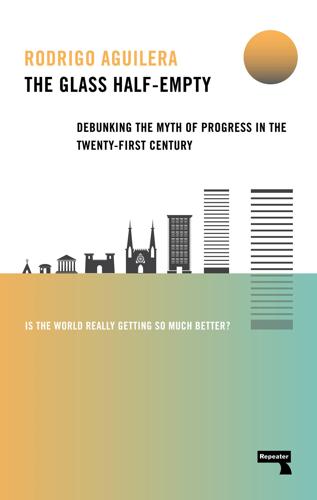
The Glass Half-Empty: Debunking the Myth of Progress in the Twenty-First Century
by
Rodrigo Aguilera
Published 10 Mar 2020
One only needs to look at the millions of unrewarded man-hours of labor that contribute to the growth of the US economy to think that the system is broken regardless of whether one wants to argue on moral or empirical grounds (Figure 6.17). What we do know is that economic outcomes between individuals should be central to any notion of what a just society should look like. US political philosopher John Rawls famously described the original position as a thought experiment of how such a just society should be conceived.49 In this original position outside a “veil of ignorance”, no citizen would know what life they would be born into within society. You could just as easily end up being Jeff Bezos as you could one of his warehouse workers.
…
III 50 Tcherneva, P.R., “When a Rising Tide Sinks Most Boats: Trends in US Income Inequality”, Levy Economics Institute, Policy Note 2015/4, Mar. 2015, http://www.levyinstitute.org/publications/when-a-rising-tide-sinks-most-boats-trends-in-us-income-inequality 51 Unsurprisingly for a book that is considered one of the most important works of political philosophy, A Theory of Justice received criticism from many fronts including libertarians (Robert Noczik), Marxists (G.A. Cohen), and non-Westerners (Amartya Sen). Sen’s distinction between two types of justice is argued in Sen, A., The Idea of Justice (Penguin, 2010). 52 Rawls, J., Political Liberalism, (Columbia University Press, 2005), pg. 51. Rawls actually mentions Sibley in a footnote. 53 Edmunson, W., John Rawls: Reticent Socialist (Cambridge University Press, 2017) Part III: The End of the End of History Chapter Seven: The Evil That Men Do 1 Lloyd, M., “Soviets Close to Using A-Bomb in 1962 Crisis, Forum Is Told”, Boston Globe, 13 Oct. 2002, http://www.latinamericanstudies.org/cold-war/sovietsbomb.htm 2 Pinker, S., Enlightenment Now, pg. 312 3 “False Warnings of Soviet Missile Attacks during 1979-80 Led to Alert Actions for U.S.
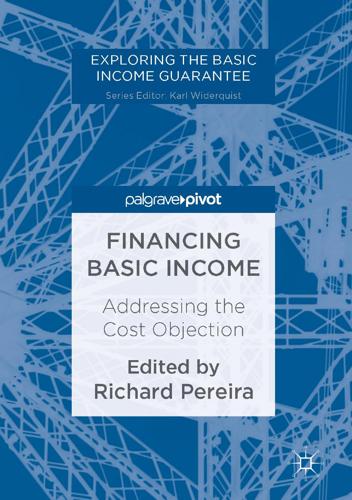
Financing Basic Income: Addressing the Cost Objection
by
Richard Pereira
Published 5 Jul 2017
People did tolerate much higher marginal income tax rates and a much more progressive tax rate structure than the cost objectors claim is required in their analysis. Such high marginal tax rates were synonymous with a prosperous economy. And this among possibly the most tax-averse public in the world. Employing John Rawls’ concept of a “veil of ignorance” Dan Ariely (Professor of Psychology and Behavioural Economics, Duke University) and Mike Norton surveyed Americans in a unique study and found an overwhelming preference among both Democrat and Republican supporters for the wealth distribution profile in Sweden (93.5% of Democrats and 90.2% of Republicans) with no appreciable difference based on gender and income level of those surveyed.
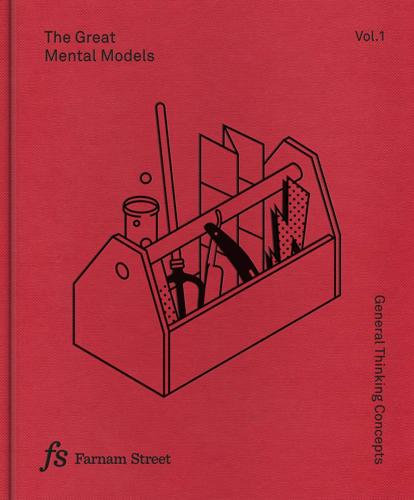
The Great Mental Models: General Thinking Concepts
by
Shane Parrish
Published 22 Nov 2019
It makes you aware of your process, so that even if the results are good, you can recognize when this was all down to luck and that maybe you should work on your decision-making process to reduce the role of chance. An example of this is the famous “veil of ignorance” proposed by philosopher John Rawls in his influential Theory of Justice. In order to figure out the most fair and equitable way to structure society, he proposed that the designers of said society operate behind a veil of ignorance. This means that they could not know who they would be in the society they were creating. If they designed the society without knowing their economic status, their ethnic background, talents and interests, or even their gender, they would have to put in place a structure that was as fair as possible in order to guarantee the best possible outcome for themselves.5 Our initial intuition of what is fair is likely to be challenged during the “veil of ignorance” thought experiment.
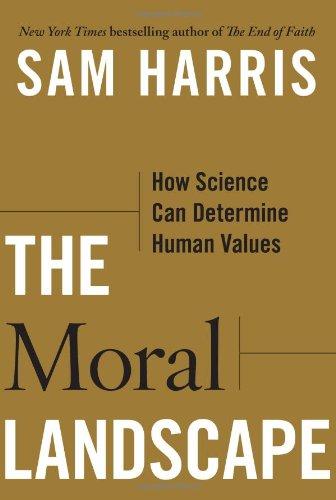
The Moral Landscape: How Science Can Determine Human Values
by
Sam Harris
Published 5 Oct 2010
Fairness and Hierarchy It is widely believed that focusing on the consequences of a person’s actions is merely one of several approaches to ethics—one that is beset by paradox and often impossible to implement. Imagined alternatives are either highly rational, as in the work of a modern philosopher like John Rawls,40 or decidedly otherwise, as we see in the disparate and often contradictory precepts that issue from the world’s major religions. My reasons for dismissing revealed religion as a source of moral guidance have been spelled out elsewhere,41 so I will not ride this hobbyhorse here, apart from pointing out the obvious: (1) there are many revealed religions available to us, and they offer mutually incompatible doctrines; (2) the scriptures of many religions, including the most well subscribed (i.e., Christianity and Islam), countenance patently unethical practices like slavery; (3) the faculty we use to validate religious precepts, judging the Golden Rule to be wise and the murder of apostates to be foolish, is something we bring to scripture; it does not, therefore, come from scripture; (4) the reasons for believing that any of the world’s religions were “revealed” to our ancestors (rather than merely invented by men and women who did not have the benefit of a twenty-first-century education) are either risible or nonexistent—and the idea that each of these mutually contradictory doctrines is inerrant remains a logical impossibility.
…
Here we can take refuge in Bertrand Russell’s famous remark that even if we could be certain that one of the world’s religions was perfectly true, given the sheer number of conflicting faiths on offer, every believer should expect damnation purely as a matter of probability. Among the rational challenges to consequentialism, the “contractualism” of John Rawls has been the most influential in recent decades. In his book A Theory of Justice Rawls offered an approach to building a fair society that he considered an alternative to the aim of maximizing human welfare.42 His primary method, for which this work is duly famous, was to ask how reasonable people would structure a society, guided by their self-interest, if they couldn’t know what sort of person they would be in it.
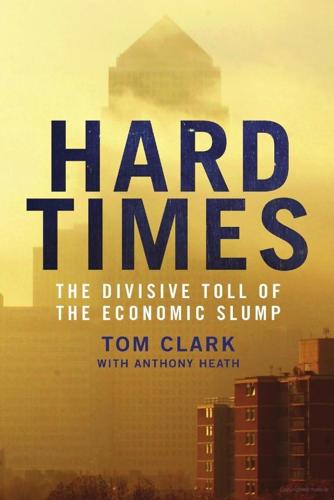
Hard Times: The Divisive Toll of the Economic Slump
by
Tom Clark
and
Anthony Heath
Published 23 Jun 2014
As the slump wore on, increasing numbers snitched on one another to the dole office for tiny transgressions, such as busking with a harmonica while drawing relief.1 Likewise, at much the same time in England's industrial North, Orwell reported on ‘much spying and tale-bearing’, with one man he knew ‘seen feeding his neighbour's chickens while the neighbour was away’ and subsequently being reported to the authorities for having ‘a job feeding chickens’.2 The response to hardship can go either way. Let us consider, first, why a mood of solidarity could rise as the economy sinks. In a famous thought experiment, the philosopher John Rawls provided a theoretical underpinning for egalitarian institutions, with his ‘veil of ignorance’.3 This device imagines prospective citizens debating the best way to run society from behind a ‘veil’ that blocks their knowledge of the rank that they will occupy within that society. If nobody knows whether they will be born a prince or a pauper, the argument runs, then everybody will surely agree on fair rules that afford the pauper decent protection – just in case it happens to be them.
…
Department for Communities/Office for National Statistics, ‘Local authority housing statistics: 2011–12’, 2012, at: www.gov.uk/government/uploads/system/uploads/attachment_data/file/39457/Local_authority_housing_statistics_2011_12_v4.pdf 59. Zedlewski et al., Families Coping Without Earnings, pp. viii, 8–13. Chapter 9: The veil of complacency 1. Jahoda et al., Marienthal, pp. 19, 43–4. 2. Orwell, The Road to Wigan Pier, p. 70. 3. John Rawls, A Theory of Justice, Harvard University Press, Cambridge, MA, 1971. 4. Franklin Roosevelt, Second Inaugural Address, 20 January 1937. 5. In very crude terms, creditors lose from expansionary ‘cheap money’ policies, while debtors gain. For sweeping historical analysis of how the tensions between them have affected monetary policy see Philip Coggan, Paper Promises: Money, debt, and the new world order, Allen Lane/Penguin, London, 2012.
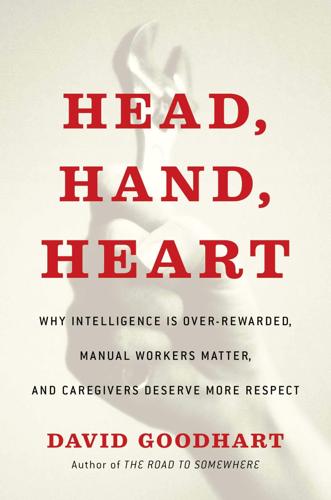
Head, Hand, Heart: Why Intelligence Is Over-Rewarded, Manual Workers Matter, and Caregivers Deserve More Respect
by
David Goodhart
Published 7 Sep 2020
In recent years the bespectacled Young has appeared to want to follow in his father’s intellectual footsteps, albeit espousing very different views, and has become a more serious if controversial figure in the London educational and political world, setting up his own state school in the capital. Michael Young was an egalitarian who opposed the idea of equality of opportunity because it was about the opportunity to be unequal. He argued, like other egalitarians such as philosopher John Rawls, that the intelligence and capability you are born with is the result of a “natural lottery” and no more deserved than the wealth that a rich person might inherit. Young junior is a classical liberal who believes in equal rights, equal treatment, and equal opportunities but not equality of outcome, because he believes the latter can only be achieved at too high a human cost: “I like meritocracy for the same reason that my father disapproved of it: because it helps to secure people’s consent to the inequalities that are the inevitable consequence of limited government.
…
And that means there is no comparative measure, no single scale of human worth… Indeed, because each of us faces a distinct challenge, what matters in the end is not how we rank against others at all. We do not need to find something we are best at; what is important is simply that we do our best.”39 The egalitarian political philosopher John Rawls invented the idea of the veil of ignorance, asking people to imagine the social arrangements they would be most likely to favor if, behind the veil, they did not know what their position or status in society was going to be. This idea has often been applied to income distribution, class, race, and gender.
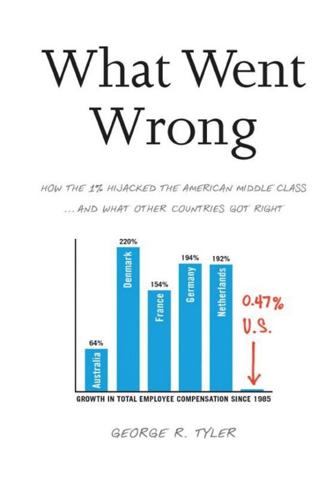
What Went Wrong: How the 1% Hijacked the American Middle Class . . . And What Other Countries Got Right
by
George R. Tyler
Published 15 Jul 2013
That is, although wages at the median have fallen some way behind economic growth, this has [occurred] … because of a disproportionate increase in the wages of those at the bottom.”33 Since 2001, lower-paid French workers have received annual wage gains averaging 0.9 percent in real terms, which is 50 percent larger than French average national gains.34 Indeed, wage statistics suggest that Australia and France best embody the principle spelled out eloquently by John Rawls in 1971, likely America’s most prominent twentieth-century philosopher. The late Harvard professor argued that a society is most meaningfully judged by its treatment of the least advantaged.35 The best spots on earth to be born poor are Australia or France, the nations that come closest to fulfilling Adam Smith’s dream of prosperity for all mankind.
…
They pay the world’s highest wages. They consistently spread the gains from growth broadly, rewarding hard work with real wage gains. And they inordinately raise the incomes of lower-paid employees, thereby improving economic mobility. In spreading prosperity to the least advantaged, they meet the key test posed by philosopher John Rawls. America flunks the Rawls test. France and Australia do the best of any nation in world history of meeting the Rawls standard. During the last two decades, rising real wages for low-income French employees have reduced their wage gap with the middle class.6 France even makes it cheap to hire minimum-wage workers; their employers pay a Social Security tax of only 2 percent.
…
These disparate attitudes toward the least advantaged reflect better opportunity under stakeholder capitalism and expectation by voters of real wage gains continuing in perpetuity. Those expectations engender a spirit of community and optimism, undercut in America during the Reagan decline. Recall that the late philosopher John Rawls believed the measure of a society is how well it deals with the less able. His gold standard for evaluating the variants of capitalism is how well families prospered while also enabling meaningful economic participation by the disadvantaged including the working poor, single parents, and high school dropouts.
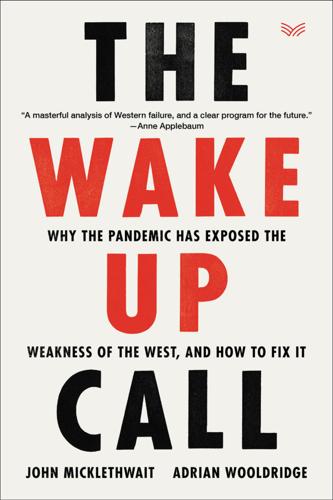
The Wake-Up Call: Why the Pandemic Has Exposed the Weakness of the West, and How to Fix It
by
John Micklethwait
and
Adrian Wooldridge
Published 1 Sep 2020
But to seek that which cannot be provided, especially to do so with the passionate but misinformed conviction that it can be, is to create the conditions of frustration and ruin.”1 The West has generally failed to make the distinction about what government can do and what it can’t. What does modern political theory tell us? The journalist John Authers has cleverly divided competing responses to the crisis into three broad philosophical camps: Rawlsians, libertarians, and communitarians.2 The first group apply John Rawls’s “veil of ignorance” test in A Theory of Justice (1971): what sort of society would you want if you didn’t know whether you were going to end up rich or poor? In the battle with Covid, such thinking justifies free health care and job furlough schemes. Libertarians, who follow Robert Nozick’s Anarchy, State and Utopia (1974), come at the problem from the other end.
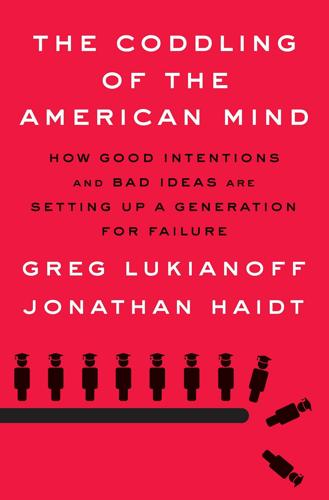
The Coddling of the American Mind: How Good Intentions and Bad Ideas Are Setting Up a Generation for Failure
by
Greg Lukianoff
and
Jonathan Haidt
Published 14 Jun 2018
More generally, efforts to protect students by creating bureaucratic means of resolving problems and conflicts can have the unintended consequence of fostering moral dependence, which may reduce students’ ability to resolve conflicts independently both during and after college. CHAPTER 11 The Quest for Justice Justice is the first virtue of social institutions, as truth is of systems of thought. JOHN RAWLS, A Theory of Justice1 Here’s a quirk about American politics: the majority of white Americans vote for Republicans for president, unless they were born after 1981 or between 1950 and 1954. Why those who were born after 1981 vote differently is easy to understand. They are Millennials or iGen; they lean left on most social issues and many economic ones (as Bernie Sanders discovered).
…
We’ll try to draw out its meaning by starting with “justice” and then showing in what ways “social justice” differs, conceptually, and in what ways it is the same. Intuitive Justice Justice is arguably the most important moral concept in the history of Western philosophy. From Plato’s Republic through John Rawls’s A Theory of Justice, philosophers have tried to propose rules and principles that would underlie a fair or “just” society. Rather than review that history here in order to derive a philosophical definition of justice, we’ll take a shortcut and tell you about two major areas of psychological research that, when combined, give us a working definition of people’s everyday, ordinary, or “intuitive” notions of justice.
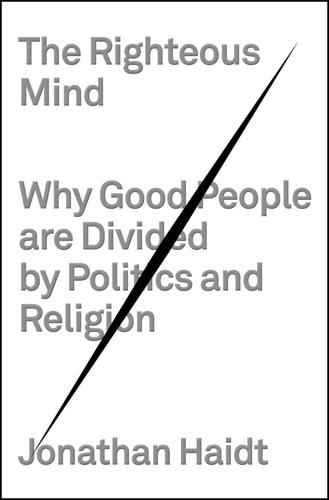
The Righteous Mind: Why Good People Are Divided by Politics and Religion
by
Jonathan Haidt
Published 13 Mar 2012
Wilson believed that there is such a thing as human nature, and that human nature constrains the range of what we can achieve when raising our children or designing new social institutions. Wilson used ethics to illustrate his point. He was a professor at Harvard, along with Lawrence Kohlberg and the philosopher John Rawls, so he was well acquainted with their brand of rationalist theorizing about rights and justice.15 It seemed clear to Wilson that what the rationalists were really doing was generating clever justifications for moral intuitions that were best explained by evolution. Do people believe in human rights because such rights actually exist, like mathematical truths, sitting on a cosmic shelf next to the Pythagorean theorem just waiting to be discovered by Platonic reasoners?
…
In psychology, morality is often operationalized as altruism or “prosocial behavior.” It’s about getting more people to help more people, ideally strangers. Even the Dalai Lama defines an ethical act as “one where we refrain from causing harm to others’ experience or expectation of happiness” (Dalai Lama XIV 1999, p. 49). 2. Examples in philosophy include Immanuel Kant and John Rawls; in psychology, Lawrence Kohlberg. Elliot Turiel allows welfare and justice to be competing concerns. 3. See Berlin 2001 on the dangers of monism. 4. Chan 1963, p. 54. 5. As well as pleasing noses with a much more complex olfactory system, which I’ll ignore to keep the analogy simple. 6.
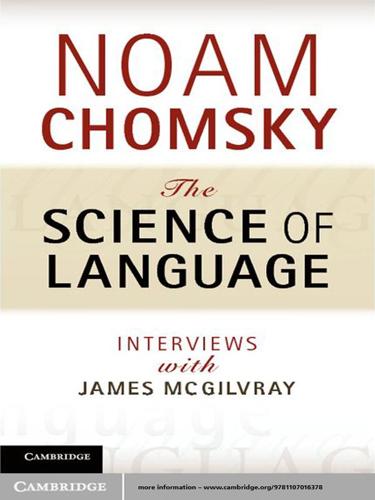
The Science of Language
by
Noam Chomsky
Published 24 Feb 2012
It's clearing away the thickets and the underbrush and trying to set things up in such a way that the sciences can take over. JM: So the job of philosophers is to beat around in the bushes and see if they can scare up any birds . . .? NC: Not only in the sciences, but in people's lives. . . . Take for example [John] Rawls[, the political philosopher]. He's not working in the sciences. He's trying to figure out what concepts of justice we have that underlie our moral systems, and so on. And it does verge on the sciences. So when John Mikhail [who has a degree in philosophy but is also developing a science of a moral faculty that distinguishes permissible from impermissible actions] picks it up, it becomes a science.
…
McGilvray, James (Forthcoming) “Philosophical Foundations for Biolinguistics.” To appear in a volume on biolinguistics, Boeckx and Grohmann, eds. Cambridge University Press. Mikhail, John (2000) “Rawls’ Linguistic Analogy: A Study of the ‘Generative Grammar’ Model of Moral Theory described by John Rawls in A Theory of Justice.” Ph.D. thesis, Cornell University. Mikhail, John (2011) Elements of Moral Cognition: Rawls’ Linguistic Analogy and the Cognitive Science of Moral and Legal Judgment. Cambridge University Press. Mikhail, John (Forthcoming) “Moral Grammar and Intuitive Jurisprudence: A Formal Model of Unconscious Moral and Legal Knowledge,” in B.
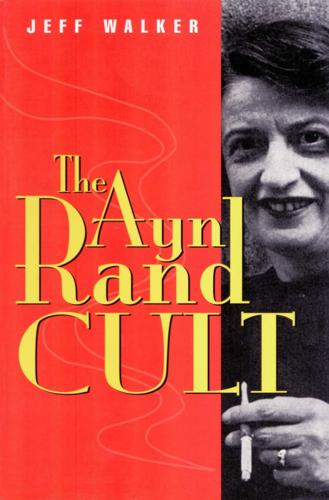
Ayn Rand Cult
by
Jeff Walker
Published 30 Dec 1998
Kelley also writes that often we can judge an author’s rationality from his writings, but not from contextless excerpts or from paraphrases by enemies. Yet on the sole basis of the latter, Objectivists have been known to denounce Kant as history’s most evil figure. Sadly, Rand is their role model here. She read little or no Kant, but excoriated him. She didn’t even look at John Rawls’s A Theory of Justice, yet slammed it on the basis of a review of it in The New York Times. Kelley maintains that a closed system such as Peikoff’s version of Objectivism is defined by specific articles of faith in some canonical text, with internal debates highly constrained, short-lived and settled by a ruling from some authority.
…
She followed the culture, recalls Nathaniel Branden, chiefly through The New York Times, television, some movies, and a few plays. Branden claims that reading the newspaper as thoroughly as Rand did and watching as much TV as she did enabled her to draw some fairly meaningful and legitimate conclusions about the culture. Not only did Rand review books that she plainly acknowledged not having read, such as John Rawls’s A Theory of Justice, she also reviewed movies she hadn’t seen, but without mentioning that detail. In the June 1969 issue of the Objectivist, there appeared an eviscerating review of Charly, Bullitt, and 2001: A Space Odyssey, entitled ‘The War of Liberation in Hollywood’, under the byline, “Ayn Rand and Erika Holzer.”
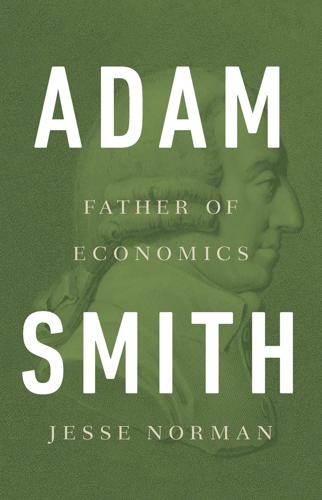
Adam Smith: Father of Economics
by
Jesse Norman
Published 30 Jun 2018
But repetition is not required for Smith’s account to bite. It provides a psychologically plausible account of a core norm of fairness, of ‘putting oneself in another’s shoes’ and seeing things from their perspective—the kind of norm that underlies, for example, the well-known theory of justice developed by the philosopher John Rawls. Overall, the use of game theory enables the idea of norms to be integrated into the equilibrium models beloved of economists. But this is also its weakness, for as a purely formal treatment it operates at a single moment or repeated succession of moments in time. It thus misses the continuous, energetic and ever-changing understanding of human interaction to be found in Smith.
…
Frans de Waal, Our Inner Ape: The Best and Worst of Human Nature, Granta Books 2006; Jean Ensminger and Joseph Henrich (eds.), Experimenting with Social Norms: Fairness and Punishment in Cross-Cultural Perspective, New York, Russell Sage Press 2014; Giacomo Rizzolatti and Laila Craighero, ‘The Mirror-Neuron System’, Annual Review of Neuroscience, 27, 2004. For a contrary view (less contrary than the title implies), see Gregory Hickok, The Myth of Mirror Neurons, W. W. Norton 2014. On the supercharging effect of culture within evolution, see Joseph Henrich, The Secret of our Success, Princeton University Press 2016 Smith and Rawls: See John Rawls, A Theory of Justice, Harvard University Press 1974. The game theorist and economist Ken Binmore has very fruitfully explored the relationship between Humean social conventions and Rawls’s ‘Original Position’, and much else, in his book Natural Justice, Oxford University Press 2005. Amartya Sen has argued that ‘Smith’s analysis of “the impartial spectator” has some claim to being the pioneering idea in the enterprise of interpreting impartiality and formulating the demands of fairness which so engaged the world of the European Enlightenment’.
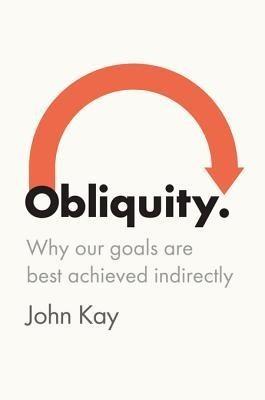
Obliquity: Why Our Goals Are Best Achieved Indirectly
by
John Kay
Published 30 Apr 2010
Ferguson was resisting the design theory of Hobbes and Rousseau, who saw political organization as the outcome of an imagined original social contract to which free men might rationally agree. The greatest of the Scottish Enlightenment philosophers, David Hume, was quick to see that Hobbes and Rousseau, like modern social contract theorists such as John Rawls, were engaged in Franklin’s gambit: “Each of the factions into which this nation is divided has reared up a fabric of the former kind [a philosophical or speculative system of principles], in order to protect and cover that scheme of actions which it pursues.”6 Hume understood that the social contract was a metaphor, not a historical description of how government came about.
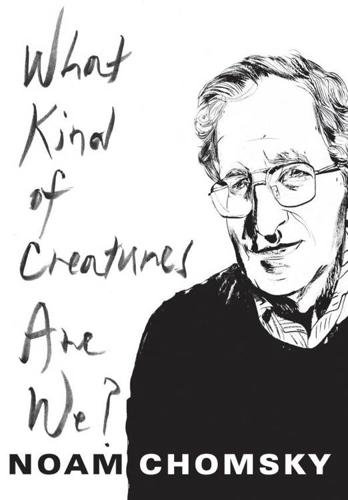
What Kind of Creatures Are We? (Columbia Themes in Philosophy)
by
Noam Chomsky
Published 7 Dec 2015
Daniel Stoljar and Yujin Nagasawa, “Introduction,” in There’s Something About Mary: Essays on Phenomenal Consciousness and Frank Jackson’s Knowledge Argument, ed. Peter Ludlow, Yujin Nagasawa, and Daniel Stoljar (Cambridge, Mass.: MIT Press, 2004), 1–36. 39. On Hume, see John Mikhail, “Rawls’ Linguistic Analogy: A Study of the ‘Generative Grammar’ Model of Moral Theory Described by John Rawls in A Theory of Justice” (Ph.D. diss., Cornell University, 2000); Mikhail, Elements of Moral Cognition: Rawls’ Linguistic Analogy and the Cognitive Science of Moral and Legal Judgment (Cambridge: Cambridge University Press, 2011); and Mikhail, “Universal Moral Grammar: Theory, Evidence, and the Future,” Trends in Cognitive Sciences 11, no. 4 (2007): 143–52.
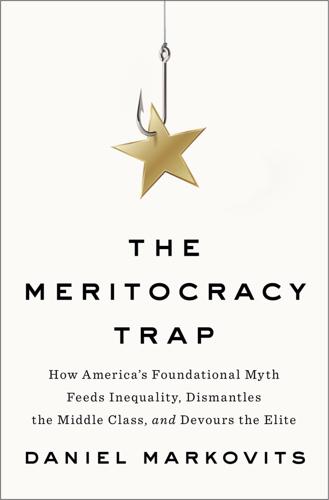
The Meritocracy Trap: How America's Foundational Myth Feeds Inequality, Dismantles the Middle Class, and Devours the Elite
by
Daniel Markovits
Published 14 Sep 2019
Papers 13 (January 14, 1963). “Poverty in the midst”: Letter to the President of the Senate and to the Speaker of the House Proposing the Establishment of a National Service Corps, 1 Pub. Papers 320 (April 10, 1963). how could a society: This formulation loosely follows one of John Rawls’s main lines of argument in John Rawls, A Theory of Justice (Cambridge, MA: Belknap Press of Harvard University Press, 1971). 1964 legislative program: Byron G. Lander, “Group Theory and Individuals: The Origin of Poverty as a Political Issue in 1964,” Western Political Quarterly 24, no. 3 (September 1971): 524, https://doi.org/10.2307/446920.
…
Certainly, the training and capacities: A friend who saw a Harvard professor throw a boomerang once observed, “In a society of hunter-gatherers, you would be a gatherer.” artifacts of baseball: A frame-dependent virtue might receive a sort of noncontingent justification in terms of the goodness of the frame itself. And a grand folk tradition, extending from Walt Whitman through John Rawls, proclaims baseball’s intrinsic moral worth. Even in this case, there are reasons to treat the tradition as a conceit that should not be taken at face value. In any event, no analogous tradition proclaims economic inequality’s intrinsic moral worth. reorganize production optimally in her absence: A version of this measure has been proposed by John Roemer.
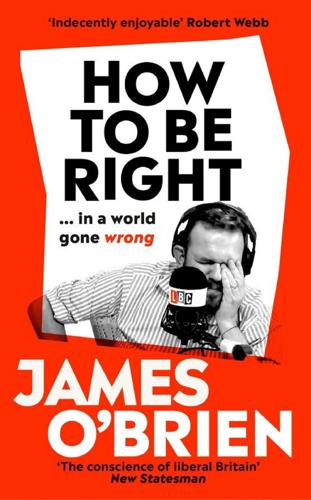
How to Be Right: In a World Gone Wrong
by
James O'Brien
Published 2 Nov 2018
He would not have had my education or enjoyed the emotional and material security that came from being raised by two comfortably off, deeply loving parents in a happy home. I hope my politics is selfless, but when I think about it this way I wonder whether there’s a degree of secondhand selfishness involved. The philosopher John Rawls’ famous ‘veil of ignorance’ posits the idea that a just system can only be constructed by people completely ignorant of their position within it. In other words, you’re not going to endorse a system of law (or, by extension, of tax or government) that unfairly discriminates against a section of society you could conceivably be in yourself.
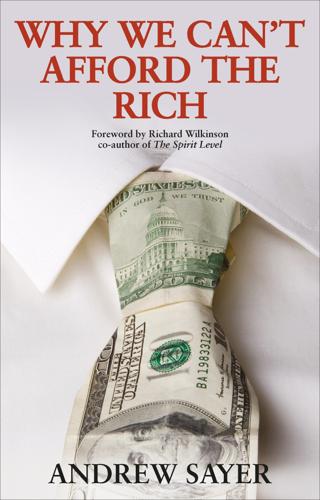
Why We Can't Afford the Rich
by
Andrew Sayer
Published 6 Nov 2014
But it’s not only that such moves are rare; what they fail to realise is that if they had been born into such a different situation, they would have become a different person and been unlikely to have acquired the confidence, sense of entitlement and ways of talking that play well in elite circles. It’s not envy to say this; it’s simply a matter of acknowledging the effect of inherited, unchosen inequalities on people’s life chances. The same point is widely recognised in political philosophy. As the eminent philosopher John Rawls put it in the gendered language of his day: No-one deserves his place in the distribution of native endowments, any more than one deserves one’s initial starting place in society. The assertion that a man deserves the superior character that enables him to make the effort to cultivate his abilities is equally problematic; for his character depends in large part upon fortunate family and social circumstances for which he can claim no credit.47 To be sure, fortunate circumstances are not the monopoly of the well-off, and there are strengths as well as disadvantages in more ordinary upbringings, though that doesn’t mean the advantages and disadvantages are evenly distributed: we should beware of a spurious egalitarianism, which, anxious not to be seen as disparaging anyone, denies that inequalities injure anyone – thereby making it seem less important to reduce them.
…
See also Bruenig, M. (2014) ‘America’s class system across the life cycle’, Demos, 25 March, http://www.demos.org/blog/3/25/14/americas-class-system-across-life-cycle. 30 Aldridge, S. (2004) ‘Life chances and social mobility: an overview of the evidence’, London: Prime Minister’s Strategy Unit, Cabinet Office, http://www.cabinetoffice.gov.uk/media/cabinetoffice/strategy/assets/lifechances_socialmobility.pdf; Erikson, R. and Goldthorpe, J.H. (1992) The constant flux: A study of class mobility in industrial societies, Oxford: Clarendon Press; Inequality Briefing 39 (2014) ‘What people in the UK earn depends on what their parents earned’, http://inequalitybriefing.org/graphics/briefing_39_peoples_income_reflects_what_their_parents_earned.pdf 31 Lareau, A. (2003) Unequal childhoods: Class, race and family life, California: University of California Press; Walkerdine, V. and Lucey, H. (1989) Democracy in the kitchen, London: Virago; Bourdieu, P. and Passeron, J.-C. (1990) Reproduction in education, society and culture, London: Sage; Reay, D. and Ball, S.J. (1997) ‘“Spoilt for choice’: the working classes and educational markets’, Oxford Review of Education, 23(1), pp 89–101. 32 John Rawls, author of the most influential work of political philosophy of the 20th century, A theory of justice ((1971) Oxford: Oxford University Press), rejects ‘desert’ (roughly, ideas of what we deserve) as a criterion for the distribution of resources. 33 For a critique of popular notions of intelligence, IQ and genetically determined intelligence, see Dorling, D. (2010) Injustice: Why social inequality persists, Bristol: Policy Press. 34 Sayer, A. and Walker, R.A. (1992) The new social economy, Oxford: Blackwell. 35 Tilly, C. (1999) Durable inequality, Berkeley, CA: University of California Press. 36 In the Labour journal Progress, 21 March 2005, http://www.progressonline.org.uk/2005/03/21/weve-got-to-carry-this-on/. 37 Even when people buy a product or service the making of which they can witness, such as counselling or a piano lesson, such that they can guess how much they are contributing to the worker’s income and consider whether they deserve it, they may still be mainly concerned with saving their own money. 38 Ruskin, J. (1997) [1862] Unto this last: And other writings, London: Penguin, p 227. 39 A similar effect is found where the service is sold for money, as in private nurseries for children.
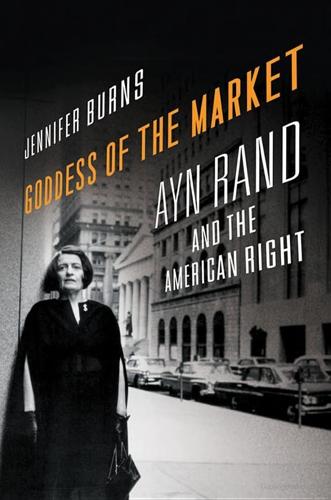
Goddess of the Market: Ayn Rand and the American Right
by
Jennifer Burns
Published 18 Oct 2009
During this time the libertarian-inflected law and economics movement, an outgrowth of the Chicago School, made inroads at several important law schools.65 In 1975 libertarians won another coveted prize when Harvard Professor Robert Nozick was awarded the National Book Award for Anarchy, State, and Utopia, a philosophic defense of the limited state. Nozick had been introduced to libertarianism through Murray Rothbard and cited both Rothbard and Rand in his pathbreaking book. Typically understood as a response to the egalitarianism of his Harvard colleague John Rawls, Anarchy, State, and Utopia must also be recognized as the fullest intellectual flowering of the libertarian subculture. Even while attacking the argument Rawls had propounded in A Theory of Justice, Nozick was equally concerned with responding to Murray Rothbard and the ongoing minarchist/anarchist debate.
…
68 The interview’s overall tone reflected the general libertarian stance toward Rand, who was now seen as a figurehead or a respected elder rather than a source of direct guidance. She was a totem and ideal to be admired, but not worshipped. Reason was interested in Rand but not beholden to her. By 1973 The Ayn Rand Letter was slipping badly. Issues were often months behind schedule and Rand’s standards of discourse had plunged. In a review of John Rawls’s Theory of Justice Rand dropped the pretense that she had read his work, announcing, “Let me say that I have not read and do not intend to read that book.”69 Instead, she offered a review of the reviews Rawls had received in the New York Times. Aside from Leonard Peikoff, Rand had no other contributors to her publication, and between Frank’s declining health and her own it was impossible for her to produce a fortnightly publication unaided.
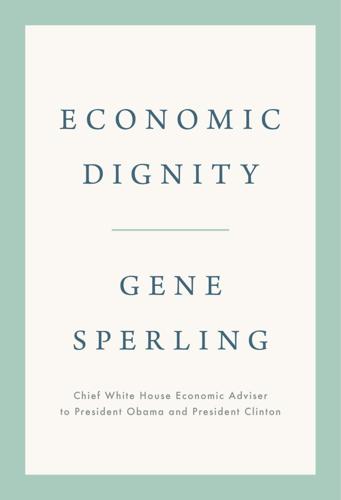
Economic Dignity
by
Gene Sperling
Published 14 Sep 2020
Philosopher Robert Nozick rejects the idea that all work can be meaningful—which he defines as allowing the capacity to “exercise one’s talents and capacities” in an activity “of worth” that one understands as part of a larger goal.3 Nozick implies that “some jobs . . . may not seem at all meaningful . . . [but] are nevertheless necessary.”4 He suggests that some people might actively choose to have a less meaningful job in order to get higher compensation—though we know that is far from always the case.5 John Rawls, on the other hand, believed meaningful work for all was possible, even for jobs some today think of as being mundane or requiring specialized skill. The philosopher wrote in A Theory of Justice that such work can be crafted in ways that allow all workers a sense of respect and meaning. “The worst aspects of division [of labor],” Rawls stated, “can be surmounted: no one need be servilely dependent on others and made to choose between monotonous and routine occupations which are deadening to human thought and sensibility.
…
Grant, and Craig P. Dunn, “Meaningful Work: Connecting Business Ethics and Organizational Studies,” Journal of Business Ethics 121, no. 1 (2014): 82, https://faculty.wharton.upenn.edu/wp-content/uploads/2014/04/MichaelsonPrattGrantDunn_JBE2014.pdf?_ga=2.149538228.348110159.1570997910-880676384.1570997910. 6. John Rawls, A Theory of Justice (Cambridge, MA: Harvard University Press, 1971), 529. 7. Norman Bowie, “A Kantian Theory of Meaningful Work,” Journal of Business Ethics 17, no. 9/10 (1998): 1083, https://www.jstor.org/stable/25073937. 8. Arne L. Kalleberg and Peter V. Marsden, “Changing Work Values in the United States, 1973–2006,” Social Science Research 42, no. 2 (2013): 263, https://reader.elsevier.com/reader/sd/pii/S0049089X12002153. 9.
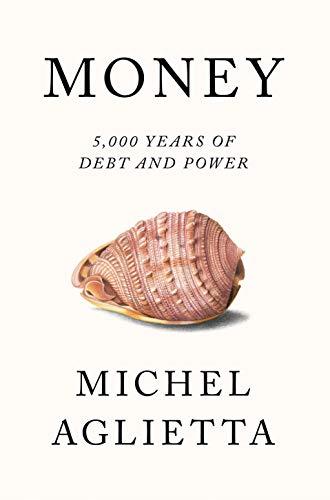
Money: 5,000 Years of Debt and Power
by
Michel Aglietta
Published 23 Oct 2018
We thus need to reinvest in the resources of political philosophy in order to drive transformations of sovereignty, in the sense of direct citizen involvement in state choices. In this domain, the Rawlsian principle of social justice is of fundamental importance.9 In defining justice as fairness, John Rawls offers a solution to the social-contract problem posed by Rousseau. In setting fairness at the heart of justice, Rawls sweeps away Jeremy Bentham’s utilitarian theory. Human beings have moral faculties that define the meaning of the common good. It follows from this that reason is a human aptitude of a higher order than rationality, for reason offers the freedom to use ‘public reasoning’ in social evaluation.
…
The Bank of England needed to act as a banks’ bank; it needed to lend to the solvent but illiquid banks. It should have lent non-predetermined amounts taken from the higher liquidity it created at a penalising rate, against a collateral provided by borrowers and evaluated at pre-crisis levels. 9 John Rawls, Justice as Fairness: A Restatement, Cambridge, MA: Belknap Press, 2001. 10 Pierre Rosanvallon, La Société des Égaux, Paris: Seuil, 2011. 11 There is a growing literature on the commons. We might note the following works: B. Coriat (ed.), Le Retour des communs. La crise de l’idéologie propriétaire, Paris: Les Liens qui libèrent, 2015; P.
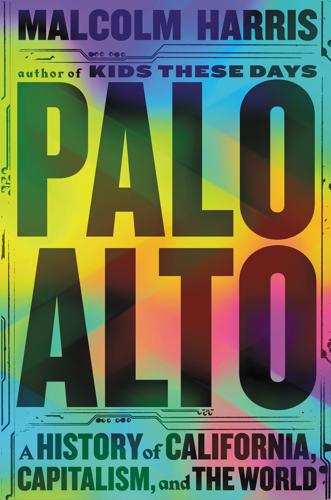
Palo Alto: A History of California, Capitalism, and the World
by
Malcolm Harris
Published 14 Feb 2023
At the end of the 1970 school year, militants ignited the Center for Advanced Study in the Behavioral Sciences, a Ford Foundation–funded campus institution built in part to conduct anticommunist research. The attack led President Nixon to condemn student radicals as “bums blowing up the campus” and nearly destroyed the single copy of visiting philosopher John Rawls’s manuscript for his book A Theory of Justice, which he was in the process of finishing at the center.xxvii 88 Within two months of the Venceremos split from the RU, the Stanford struggle accelerated. In February, alerted that the campus computation center was working on an SRI project modeling a Vietnam invasion, militants invaded the center.
…
The injunction didn’t prevent her from joining the Stanford board of trustees as an adult philanthropist. xxvii According to Rawls’s wife, Margaret, the philosopher’s first reaction to the early morning phone call was to “turn pale and say ‘I can’t do it again.’” The (notoriously long) manuscript was wet from the sprinklers but legible. See William A. Edmundson, John Rawls: Reticent Socialist (Cambridge University Press, 2017), 186. Section IV 1975–2000 Security fences being built to protect HP’s Deer Creek laboratory in Palo Alto after a bomb attack, in Measure, August–September 1976 Chapter 4.1 California über Alles Silicon Canneries—The End of the ’70s—Civic Vigilantism in the Suburbs—New Walls Everywhere—“What about Jensen?”
…
“You go spend $300 million, $100 million on social media, a lot of people show up at your office, wanting to help you spend that money on their platforms.”67 In the years that followed, Facebook’s liberal leadership toed a tricky tightrope, crediting themselves for winning Trump the presidency, but not in any illicit way. Arguing for Facebook not having to change anything despite directly enabling a demagogue, executive Andrew Bosworth drew on Tolkien and John Rawls, comparing Facebook to the Ring of Power. Instead of trying to direct its effects, the platform should behave impartially. Boz, as he’s known, did not extend the metaphor to the need to throw Facebook into an active volcano as soon as possible. Rather, the only responsible thing to do was leave it up to capitalism’s impersonal superintelligence and auction the ring.
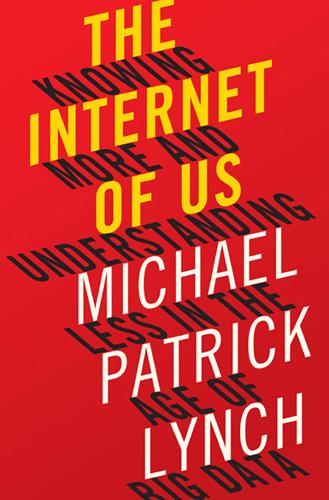
The Internet of Us: Knowing More and Understanding Less in the Age of Big Data
by
Michael P. Lynch
Published 21 Mar 2016
Neither side will be able to offer reasons that the other will recognize for his or her point of view. As I’ve already noted, the Internet didn’t create this problem, but it is exaggerating it. Yet you might think that this isn’t so bad. As philosopher Allan Hazlett has pointed out, if everyone agrees in a democracy, something’s gone wrong.13 Democracies should be, in John Rawls’ words, places where there are “a plurality of reasonable yet incompatible comprehensive doctrines.”14 But that’s just the point. How do we figure out, as a society, whose views are “reasonable” and whose are not, if our standards for what counts as reasonable don’t overlap? And how do we engage in dialogue with people with worldviews that are different from our own (as opposed to oppressing them, or manipulating them, or simply shouting at them) without an exchange of reasons?
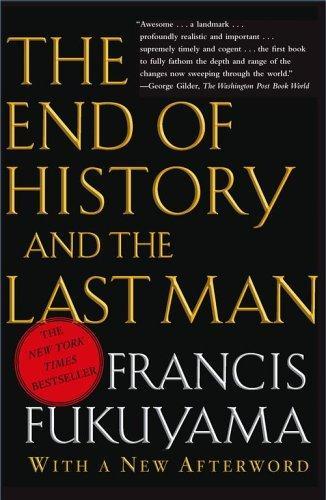
The end of history and the last man
by
Francis Fukuyama
Published 28 Feb 2006
Le Monde (September 27, 1989), p. 1. 7 For those that think this is a remote prospect, consider Smith College’s list of “Specific Manifestations of Oppression,” which includes something called “lookism,” which is “the belief that appearance is an indicator of a person’s value.” Quoted in the Wall Street Journal (November 26, 1990), p. A10. 8 On this point with regard to John Rawls’s theory of justice, see Allan Bloom, “Justice: John Rawls versus the Tradition of Political Philosophy,” in Bloom, Giants and Dwarfs: Essays 1960-1960 (New York: Simon and Schuster, 1990), p. 329. 9 Tocqueville (1945), vol. 2, pp. 100-101. Chapter 28. Men without Chests 1 Nietzsche, The Will to Power 1:18 (New York: Vintage Books, 1968b), p. 16. 2 See Nietzsche, On the Genealogy of Morals 2:11, (New York: Vintage Books, 1967), pp. 73-74; 2:20, pp. 90-91; 3:18, pp. 135-136; Beyond Good and Evil (New York: Vintage Books, 1966), aphorisms 46, 50, 51, 199, 201, 202, 203, 229. 3 See Beyond Good and Evil, aphorism 260; also aphorism 260 on vanity and recognition of the “common man” in democratic societies. 4 See the discussion of recognition in Leo Strauss’s reply to Kojève in Strauss, On Tyranny (1963), p. 222.
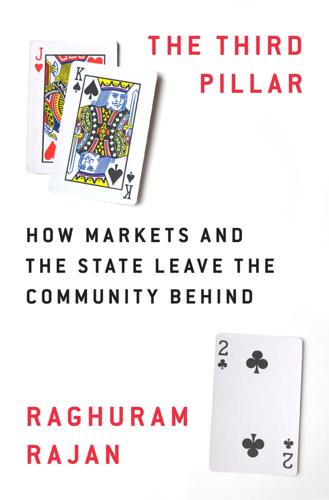
The Third Pillar: How Markets and the State Leave the Community Behind
by
Raghuram Rajan
Published 26 Feb 2019
It does not matter if some prosper while others are ruined; what matters is that all transactions are between consenting parties.10 The Marxist would argue that everything starts from the initial endowment of property or capabilities that people have, and if that is unequal, then everything from then on is unfair. Indeed, because property has often been accumulated in the distant past through theft, conquest, or exploitation, all subsequent property rights are also dubious even in the libertarian light.11 The followers of philosopher John Rawls might hold that a system that theoretically maximizes the well-being of the worst-off in society, other things equal, is what we would think most just if none of us knew whom we might end up as.12 The voting public obviously has a more intuitive and less theoretical sense of fairness. What might be its minimum common demands from an economic system?
…
See, for example, the description of Democratic machine politics in Richard Hofstadter’s classic, The Age of Reform (New York: Vintage Books, 1960). 10. See Robert Nozick, Anarchy, State, and Utopia (New York: Basic Books, 1974). 11. See John E. Roemer, Free to Lose: An Introduction to Marxist Economic Philosophy (Cambridge, MA: Harvard University Press, 1988). 12. See John Rawls, A Theory of Justice (Cambridge, MA: Belknap Press, 1971). 13. See Robert J. Gordon, The Rise and Decline of American Growth: The U.S. Standard of Living Since the Civil War (Princeton, NJ: Princeton University Press, 2016). 14. Klaus Schwab, “The Fourth Industrial Revolution: what it means, how to respond,” World Economic Forum (January 14, 2016), https://www.weforum.org/agenda/2016/01/the-fourth-industrial-revolution-what-it-means-and-how-to-respond/. 15.
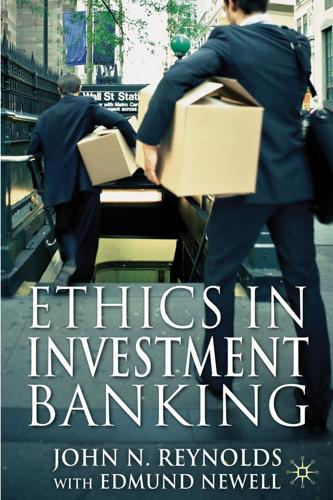
Ethics in Investment Banking
by
John N. Reynolds
and
Edmund Newell
Published 8 Nov 2011
However, not all ethical questions of distribution are dealt with by the “invisible hand” of the market, to use Adam Smith’s famous term. As was discussed earlier, for reasons of equity some market participants may need protection from adverse market forces. An influential contemporary theory of justice, which has been applied to economics, is that developed by the philosopher John Rawls. Rawls’ theory of justice centres on two principles, which can be used to determine whether or not an action is just. Rawls’ first principle of justice is that each person is to have an equal right to the most extensive scheme of equal basic liberties compatible with a similar scheme of liberties for others.
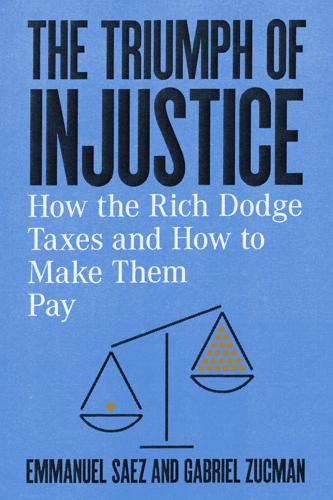
The Triumph of Injustice: How the Rich Dodge Taxes and How to Make Them Pay
by
Emmanuel Saez
and
Gabriel Zucman
Published 14 Oct 2019
How do we get out of this mess? WHY TAX THE RICH? TO HELP THE POOR The first question to ask concerns the objective—what is the ideal tax rate to apply to the wealthy? There are several ways to think about this problem, but a good starting point is the theory of social justice formalized by philosopher John Rawls, which has broad support among social scientists. It is acceptable, according to Rawls, to have social and economic inequalities if these inequalities increase the living standards of the most vulnerable members of society.2 When applied to tax policy, this perspective suggests we should not concern ourselves with the monetary interests of the rich.
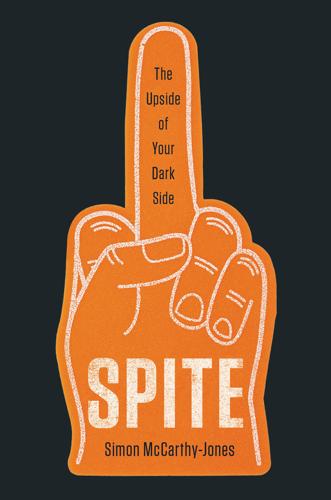
Spite: The Upside of Your Dark Side
by
Simon McCarthy-Jones
Published 12 Apr 2021
The horror of spite has no bounds. Spite poses clear and horrific dangers. We need to understand it in order to control it. To do this, we are forced to look closely at spite. And when we do, something else emerges. What we find forces us to reconsider whether we may have misunderstood spite. The American philosopher John Rawls argued that moral virtues are character traits that we should rationally want other people to have.14 Spite, he claimed, is not something we should want others to have, and therefore it is a vice that is “to everyone’s detriment.” But is it? It turns out that spite can be a force for good. It can help us excel.
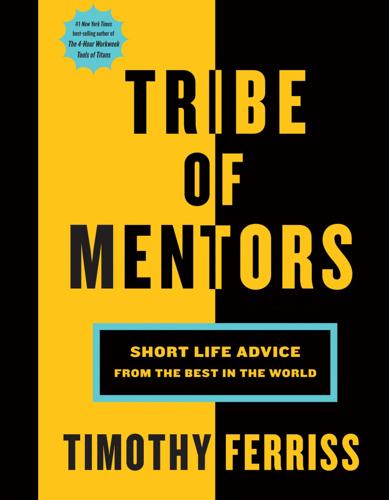
Tribe of Mentors: Short Life Advice From the Best in the World
by
Timothy Ferriss
Published 14 Jun 2017
I kept that promise to myself from the time I was first working out of college, even into leaner years in graduate school, and my husband and I have reaffirmed that commitment together for our future. “The fairest rules are those to which everyone would agree if they did not know how much power they would have.”—John Rawls Jason Fried TW: @jasonfried basecamp.com JASON FRIED is the co-founder and CEO of Basecamp (previously 37signals), a Chicago-based software firm. The company’s flagship product, Basecamp, is a project management and team communication application trusted by millions. He is the co-author of Getting Real: The Smarter, Faster, Easier Way to Build a Successful Web Application, which is available for free at gettingreal.37signals.com.
…
One of these quotes: “If you think you are too small to be effective, you have never been in the dark with a mosquito.”—Betty Reese “Every great cause begins as a movement, becomes a business, and eventually degenerates into a racket.”—Eric Hoffer “The fairest rules are those to which everyone would agree if they did not know how much power they would have.”—John Rawls “In theory there is no difference between theory and practice. But, in practice, there is.”—Jan L. A. van de Snepscheut “Price is what you pay. Value is what you get.”—Warren Buffett “Everybody is somebody, but nobody wants to be themselves.”—Gnarls Barkley “Life does not ask what we want.
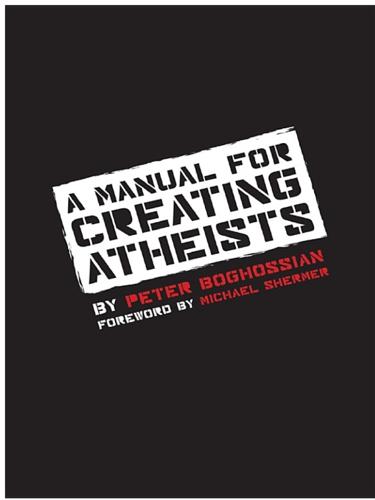
A Manual for Creating Atheists
by
Peter Boghossian
Published 1 Nov 2013
Once one buys into a system of belief without evidence, it’s unclear on what basis one could make the claim that there’s a correct or incorrect interpretation of the Koran. There are many ways we can rationally determine what’s in our own interest and what sort of communities we should construct. For example, in The Theory of Justice, American philosopher John Rawls offers us thought experiments to reason our way to an ideal political and economic system (Rawls, 2005). He details ways to create mutually agreed upon principles of justice. One doesn’t have to look to the most extreme examples to find other instances of people misconstruing what’s good for them.
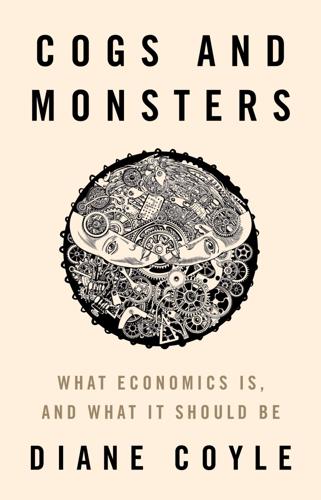
Cogs and Monsters: What Economics Is, and What It Should Be
by
Diane Coyle
Published 11 Oct 2021
Our aim in using economics in the policy arena is to serve the public interest. We have in mind a concept of social welfare. Surely it is right to aim for the perspective of the impartial observer, to try to make an objective assessment of the welfare effects of a policy intervention. This is a constant theme of liberal theories of justice, such as John Rawls’s (1971) famous ‘veil of ignorance’ or Adam Smith’s ‘impartial spectator’. At the same time, we know that economists and policy advisers are only human, responding to incentives and maximising our own utility. This is exactly why public choice theory and the New Public Management (Lapuente and Van de Walle 2020) came to emphasise the personal incentives and interests of decision-makers.
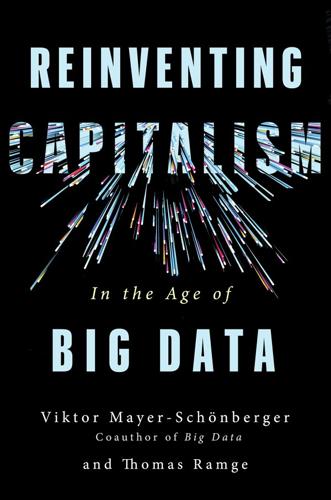
Reinventing Capitalism in the Age of Big Data
by
Viktor Mayer-Schönberger
and
Thomas Ramge
Published 27 Feb 2018
Fundamentally, this shift is part of a larger, broader movement that began hundreds of years ago. It drove Francis Bacon to emphasize the need for empirical evidence and René Descartes to look for reasons. It prompted Immanuel Kant to suggest that reason links to morality and Adam Smith to examine the power of market coordination. It led Hannah Arendt to look at the nature of power and John Rawls to ponder justice. It has propelled humans along the path of knowledge and given us insight into the world we live in—a world rich in information, more colorful, more diverse, more nuanced, and more exciting than we realized. This voyage isn’t over; it will continue. It’s important all of us appreciate that we cannot dumb down reality to make it conform to our cognitive limitations; that when we limit the possible explanations of how the world works to the simple one, the one that’s easiest to grasp, or the one that we have always believed in, we confine our imagination, and we constrict our understanding of the world to the obvious.
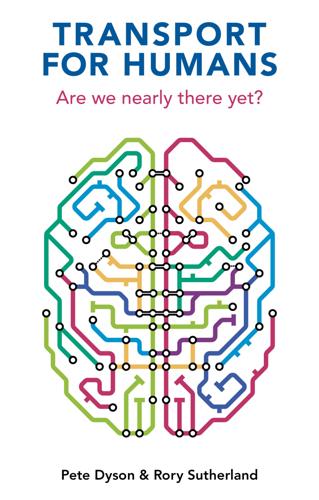
Transport for Humans: Are We Nearly There Yet?
by
Pete Dyson
and
Rory Sutherland
Published 15 Jan 2021
The final issue with inequity is one that has been discussed by philosophers for hundreds of years: how do we decide who in a society deserves help? A utilitarian approach that Jeremy Bentham or John Stuart Mill might have supported, if they had become transport planners, would emphasize solutions that would maximize the total benefit for the population as a whole. Aggregated data make this view appealing. But if John Rawls had been in the meeting, he would have interjected that we should measure the standard of transport provision by how well it helps the people who need it most. Amartya Sen might have disagreed, though, arguing that it is the function of transport to maximize the agency we have over our lives, not the outcome in terms of money or happiness.
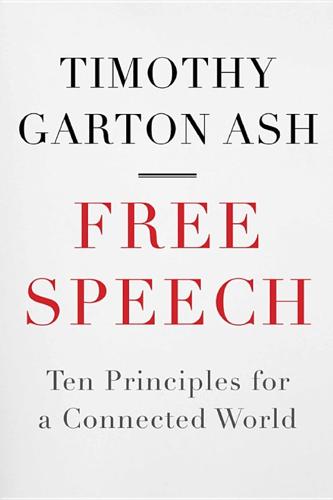
Free Speech: Ten Principles for a Connected World
by
Timothy Garton Ash
Published 23 May 2016
Islam, Taoism, Confucianism and Buddhism certainly do not; nor do other branches of Christianity. Even many Roman Catholics, including theologians and monks, did not accept the stipulations of Pope Benedict XVI—the Bavarian conservative Joseph Ratzinger—as the last word on their faith. This is a problem that the most influential philosopher of modern English-language liberalism, John Rawls, touched on with his powerful notion of the ‘overlapping consensus’ on which a politically liberal society could be built. ‘Such a consensus’, he writes in Political Liberalism, the second of his two major works, ‘consists of all the reasonable opposing religious, philosophical and moral doctrines likely to persist over generations and to gain a sizable body of adherents in a more or less just constitutional regime’.94 In reply to a critique by Jürgen Habermas, Rawls dips his toe a little further into the muddy waters of real life: Consider the political sociology of a reasonable overlapping consensus: since there are far less doctrines than citizens, the latter may be grouped according to the doctrine they hold.
…
Greenwald, Glenn. 2014: No Place to Hide: Edward Snowden, the NSA and the Surveillance State. London: Hamish Hamilton. Gregg, Pauline. 2000: Free-Born John: A Biography of John Lilburne. London: Phoenix Press. Habermas, Jürgen. 1995: ‘Reconciliation through the Public Use of Reason: Remarks on John Rawls’s Political Liberalism’. Journal of Philosophy, vol. 92, no. 3, 109–31. doi: 10.2307/2940842. Habermas, Jürgen. 2009: Europe: The Faltering Project. Cambridge, UK: Polity. Hackett, Robert A., and Zhao, Yuezhi. 2005: Democratizing Global Media: One World, Many Struggles. Oxford: Rowman & Littlefield.
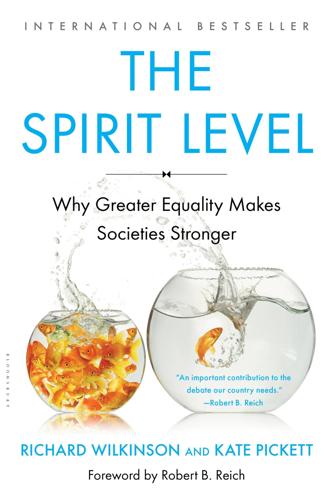
The Spirit Level: Why Greater Equality Makes Societies Stronger
by
Richard Wilkinson
and
Kate Pickett
Published 1 Jan 2009
Some who would tax the rich to help the poor frame their arguments as utilitarian. Taking a hundred dollars from a rich person and giving it to a poor person would diminish the rich person’s happiness only slightly, they argue, but greatly increase the happiness of the poor person. Others ground their arguments in terms of hypothetical consent. John Rawls defends redistribution on the grounds that most people would be in favor of it if they had no idea what their income would otherwise be. Nor have economists, whom we might expect to focus attention on such a dramatic trend, expressed much concern about widening inequality. For the most part, economists concern themselves with efficiency and growth.
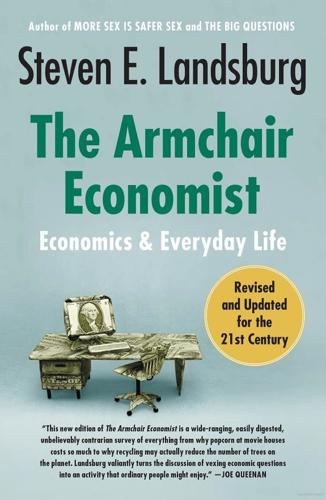
The Armchair Economist: Economics and Everyday Life
by
Steven E. Landsburg
Published 1 May 2012
We have no obvious basis for preferring a sum-of-happiness approach to a product-of-happiness approach, but we seem to have deep visceral preferences for requirements like symmetry. A clear vision of those preferences, plus some pure theory, dictates the normative criterion we are forced to choose. There is a second approach to the problem, first introduced by the economist John Harsanyi but associated primarily with the name of the philosopher John Rawls, who made it the basis for his monumental work on the theory of justice. In Rawls's or Harsanyi's vision, we must imagine ourselves behind a veil of ignorance where even our own identities are concealed from us. Behind the veil, we know that we are destined to someone's life, but all earthly lives are equally probable.
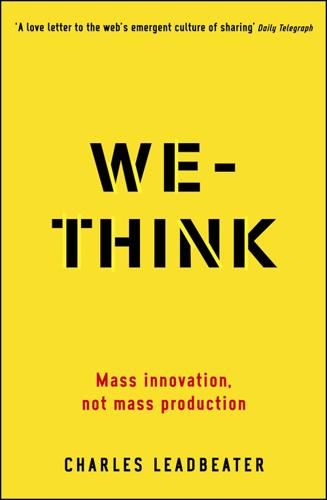
We-Think: Mass Innovation, Not Mass Production
by
Charles Leadbeater
Published 9 Dec 2010
Are we interested in equality of access, opportunity, outcomes or capability? Equality between whom – men and women, young and old, rich and poor, within societies or between them? To make the task more manageable this section adopts a simplified version of the formula made famous by the political theorist John Rawls in his book A Theory of Justice: social justice is advanced only if an improvement in the living conditions of the richest benefits the poorest even more. What that means is that the rise of We-Think culture among affluent teenagers in California might be justified on grounds of social justice if provision of the same tools could make an even bigger difference to the lives of the poorest.
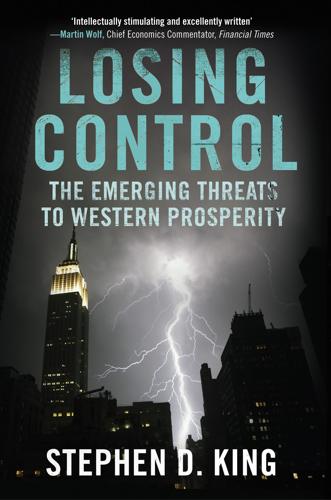
Losing Control: The Emerging Threats to Western Prosperity
by
Stephen D. King
Published 14 Jun 2010
For a detailed discussion of the dangers associated with the narrow-minded labelling of people according to their national, ethnic or religious background, see Amartya Sen’s Identity and Violence: The Illusion of Destiny (Allen Lane, London, 2006). 7. Paul Kennedy’s The Rise and Fall of the Great Powers (Random House, New York, 1988) ties together both economic and military influences in explaining shifts in great power tectonics over the centuries. CONCLUSION 1. The classic modern-day texts on these issues include John Rawls, A Theory of Justice (Harvard University Press, Cambridge, MA, 1971) and Robert Nozick, Anarchy, State and Utopia (Basic Books, New York, 1974). SELECT BIBLIOGRAPHY Aherne, A., Gagnon, J., Haltmaier, J. and Kamin, S., Preventing Deflation: Lessons from Japan’s Experience in the 1990s, Federal Reserve International Finance Discussion Paper, Washington DC, 2002 Akerlof, G., ‘The market for lemons: quality uncertainty and the market mechanism’, Quarterly Journal of Economics, 84.3 (1970), pp. 488–500 Balassa, B., ‘The purchasing power doctrine: a reappraisal’, Journal of Political Economy, 72 (1964), pp. 584–96 Barbone, L., Bontch-Osmolovssky, M. and Zaidi, S., The Foreign-born Population in the European Union and its Contribution to National Tax and Benefit Systems, World Bank, Washington, DC, April 2009 Baumol, W., Litan, R. and Schramm, C., Good Capitalism, Bad Capitalism and the Economics of Growth and Prosperity, Yale University Press, New Haven, 2007 Bernanke, B., The Great Moderation, Federal Reserve, Washington DC, 2004 ———, The Global Savings Glut, Federal Reserve, Washington DC, 2005 Besley, T., ‘Principled Agents?
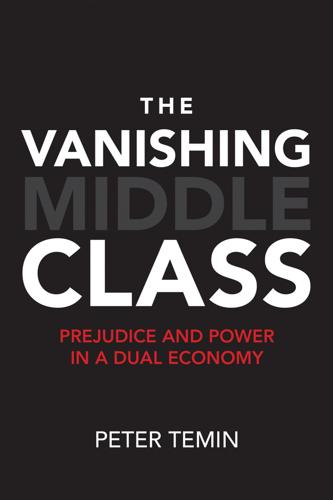
The Vanishing Middle Class: Prejudice and Power in a Dual Economy
by
Peter Temin
Published 17 Mar 2017
Some among the very rich, as noted in chapter 7, do not take well to having their taxes increase.6 Falling ill is something that happens after being born, but there are additional risks in being born. Perhaps the biggest birth risk we take is in the identity of our parents. We do not choose our parents, and John Rawls, the author of A Theory of Justice, suggested that we think of a random process assigning children to parents. If we turn that around, we can say that the largest risk that a person faces in America is of being born into the “wrong” part of society, in the low-wage sector with a black or brown skin.
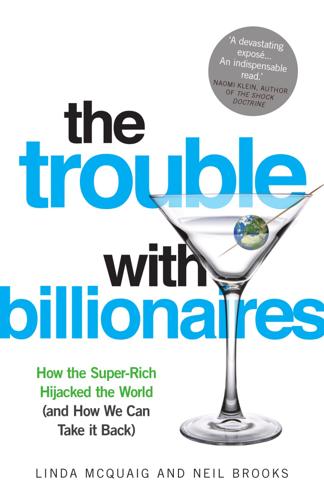
The Trouble With Billionaires
by
Linda McQuaig
Published 1 May 2013
• • • Like Locke, most of the major theorists who have contemplated issues of distributive justice have insisted on caveats when it comes to the rights of individuals to accumulate large fortunes. John Stuart Mill, Thomas Paine, Leonard T. Hobhouse and Jacques Turgot all argued that much of an individual’s wealth is actually owed back to the community. John Rawls, the leading theorist of political liberalism, only condones the accumulation of great fortunes if it can be shown that this benefits the poorest members of society. Rawls and other liberal as well as progressive thinkers clearly have some serious reservations about extreme inequality, refusing to accept its moral legitimacy unless it can be shown to provide benefits throughout society, particularly to those most excluded from the bounty.
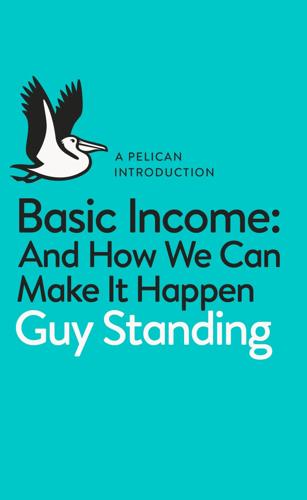
A Pelican Introduction: Basic Income
by
Guy Standing
Published 3 May 2017
Sharing rental income derived from ownership of assets, including so-called ‘intellectual property’, could be regarded as a left libertarian justification for basic income, paid out as social dividends.11 It would amount to saying that a modest share for everybody would be socially just. A Policy Principle for Social Justice One way to judge any social policy involves a variant of the social justice principle enunciated by John Rawls in his influential Theory of Justice.12 His ‘Difference Principle’ specifies that justice is served only if the policy improves the position of the least advantaged. I have dubbed a variant of this the ‘Security Difference Principle’, according to which a social policy or institutional change should be regarded as socially just only if it improves the security of the most insecure groups in society.
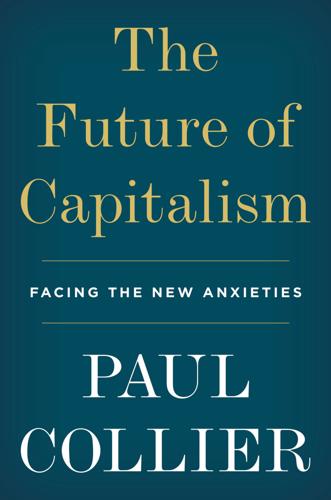
The Future of Capitalism: Facing the New Anxieties
by
Paul Collier
Published 4 Dec 2018
Now, the Libertarians restored the rights to individuals, but not the obligations. This impetus to rights for individuals allied with a new political movement that also claimed rights: the rights of disadvantaged groups. Pioneered by African Americans, it was emulated by feminists. They too found their philosopher – John Rawls – who countered Bentham’s critique of natural rights with a different overarching principle of reason: a society should be judged moral according to whether its laws were designed for the benefit of the most disadvantaged groups. The essential purpose of these movements was inclusion in society on an equal basis with others, and both African Americans and women had an overwhelming case for profound social change.
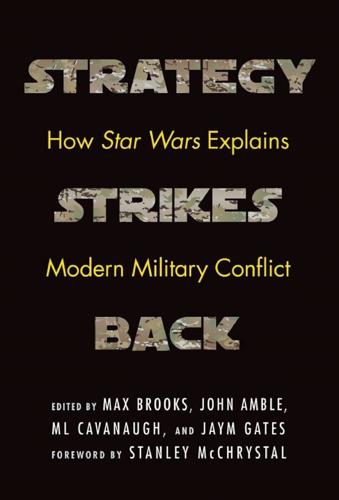
Strategy Strikes Back: How Star Wars Explains Modern Military Conflict
by
Max Brooks
,
John Amble
,
M. L. Cavanaugh
and
Jaym Gates
Published 14 May 2018
See also Donald Kagan, On the Origins of War and the Preservation of Peace (New York: Doubleday, 1995), 8, quoting Thucydides; Colin S. Gray, The Strategy Bridge: Theory for Practice (Oxford: Oxford University Press, 2016), 101–2, 111, referring to Thucydides’s “timeless triptych” as a “powerful universal formula” explaining—in general terms—why people go to war. See also John Rawls, The Law of Peoples (Cambridge MA: Harvard University Press, 2001), 28–29, recasting but adhering to Thucydides, using the terms power, prestige, and wealth. 2. Christopher Coker argues that “war remains ubiquitous because we are still in thrall to our inherited biology”; Christopher Coker, Can War Be Eliminated?
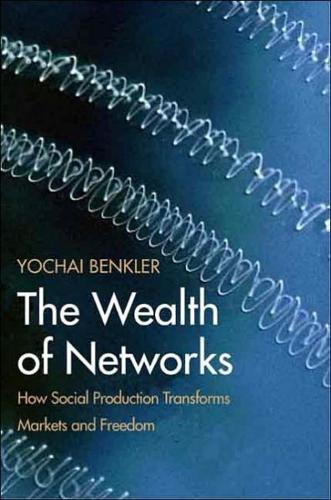
The Wealth of Networks: How Social Production Transforms Markets and Freedom
by
Yochai Benkler
Published 14 May 2006
Civic republicans would focus on open deliberation among people who see their role as deliberating about the common good. Habermas would focus on deliberating under conditions that assure the absence of coercion, while Bruce Ackerman would admit to deliberation only arguments formulated so as to be neutral as among conceptions of the good. In pluralist conceptions, like John Rawls's in Political Liberalism, which do not seek ultimately to arrive at a common understanding but instead seek to peaceably clear competing positions as to how we ought to act as a polity, this might mean the synthesis of a position that has sufficient overlap among those who hold it that they are willing to sign on to a particular form of statement in order to get the bargaining benefits of scale as an interest group with a coherent position.
…
By structure, I mean causes for the inequality of an individual that are beyond his or her control, but are traceable to institutions, economic organizations, or social relations that form a society's transactional framework and constrain the behavior of the individual or undermine the efficacy of his or her efforts at self-help. 544 We can think of John Rawls's Theory of Justice as based on a notion that the poorest people are the poorest because of dumb luck. His proposal for a systematic way of defending and limiting redistribution is the "difference principle." A society should organize its redistribution efforts in order to make those who are least well-off as well-off as they can be.
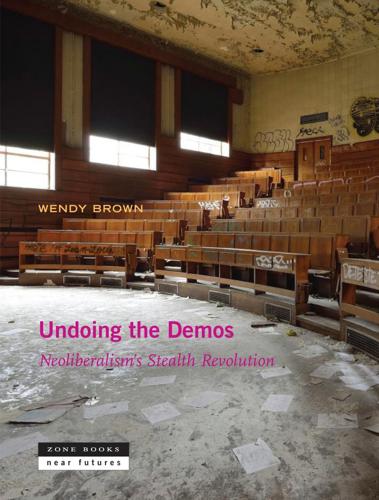
Undoing the Demos: Neoliberalism's Stealth Revolution
by
Wendy Brown
Published 6 Feb 2015
College stood for expanded individual opportunity, but also for the acquisition of a vastly enlarged view of and encounter with the world — its diverse peoples, sciences, languages, literatures, and histories.20 This ideal never ceased to be a classically liberal one, but it was a liberalism of profound egalitarian commitments, rich humanism, and a strong ethos of the public good. It expressed that part of liberal thought, found in a range of thinkers including Adam Smith, Alexis de Tocqueville, John Dewey, John Stuart Mill, and John Rawls, that regarded raw economic interest as too thin a reed and too crude a principle on which to build either an individual life or a democracy; cultivation of mind and character through education was one crucial counter to this thinness and crudeness. 21 Consider this justification, from the 1946 President’s Commission on Higher Education, for immense federal investment in public higher education: “It is an investment in social welfare, better living standards, better health and less crime.
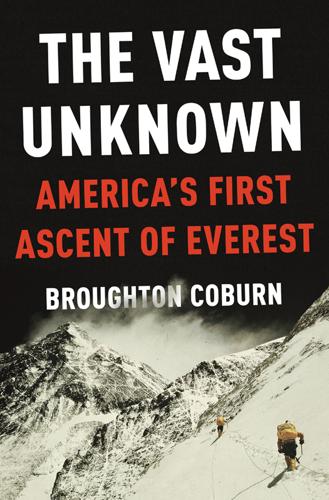
The Vast Unknown: America's First Ascent of Everest
by
Broughton Coburn
Published 29 Apr 2013
Hornbein took the mask that he designed to the Naval Air Station in Coronado, California, and connected it—along with the Indian, Swiss, and British masks—to a piston ventilator that measured resistance to air flow, and he plotted the results on a graph. Hornbein’s design was found to be superior. Dr. Gil Roberts’s biographical information was partly drawn from two interviews conducted by John Rawlings in April and August 1997 (“Gilbert Roberts,” Stanford Oral History Project, 1999) and from his widow, Erica Stone, who is president of the American Himalayan Foundation. As part of the trial run on Mount Rainier, the climbers descended into crevasses to practice self-evacuation with the newly developed Jumar ascenders.
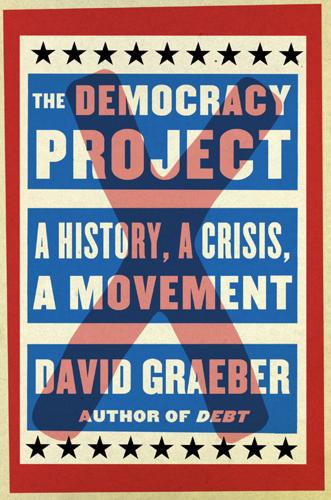
The Democracy Project: A History, a Crisis, a Movement
by
David Graeber
Published 13 Aug 2012
So for all the occasional high-minded language, most of these philosophers were ultimately willing to admit that the only real choice was between utterly blind passions and the rational calculation of the interests of an elite class; the ideal constitution, therefore, was one designed to ensure that such interests checked each other and ultimately balanced off. This has some curious implications. On the one hand, it is universally held that democracy means little without free speech, a free press, and the means for open political deliberation and debate. At the same time, most theorists of liberal democracy—from Jean-Jacques Rousseau to John Rawls—grant that sphere of deliberation an incredibly limited purview, since they assume a set of political actors (politicians, voters, interest groups) who already know what they want before they show up in the political arena. Rather than using the political sphere to decide how to balance competing values, or make up their minds about the best course of action, such political actors, if they think about anything, consider only how best to pursue their already existing interests.29 So this leaves us with a democracy of the “rational,” where we define rationality as detached mathematical calculation born of the power to issue commands, the kind of “rationality” that will inevitably produce monsters.
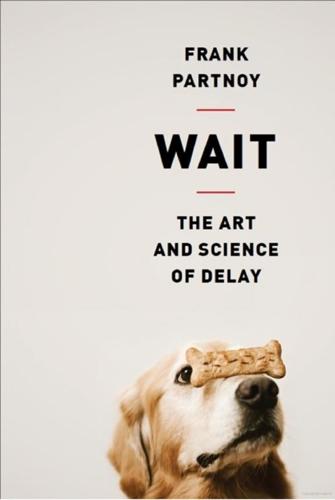
Wait: The Art and Science of Delay
by
Frank Partnoy
Published 15 Jan 2012
Choosing the right discount rate requires more than just number crunching.10 It requires a fundamental decision about how much we care about future generations. Can we ethically justify favoring the well-being of a person today over the well-being of a person born in the future? If so, how much less should we assume future generations are worth? Do we have an obligation, consistent with the philosopher John Rawls’s argument that we should protect the least-well-off member of society, to maximize the well-being of the poorest generation, whenever that generation might live? There are no easy answers, at least not for now. The thing we need to do is stay focused on these questions, not short-term distractions.
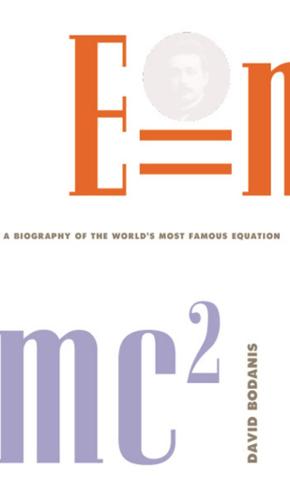
E=mc2: A Biography of the World's Most Famous Equation
by
David Bodanis
Published 25 May 2009
For Einstein often said that one of his deepest ethical/religious beliefs was the ideal of social justice. What seems an unjustified or unfair distinction should, if one only examines it closely enough, be able to be resolved so that the unfairness no longer exists. It’s the fairness principle of John Rawls, and all other believers in the objectionability of undeserved distinctions; a transposition outward, of the unified dominion, which a unitary deity might be expected to create. What Einstein did to resolve this dilemma of how Newton “contradicted” Maxwell was to take one of those rightangle jumps of the sort Faraday and Roemer had been so successful with before.
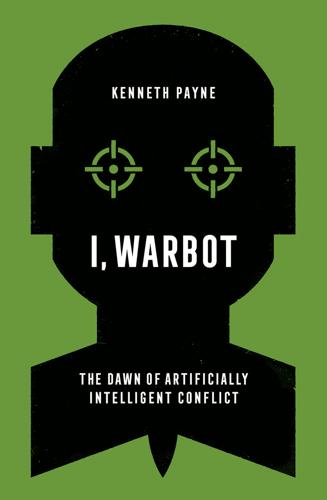
I, Warbot: The Dawn of Artificially Intelligent Conflict
by
Kenneth Payne
Published 16 Jun 2021
Robert Trivers suggested that reciprocal altruism provides that social glue—if I can trust you to do me a favour in turn, I might be prepared to help you out now, even if that comes at a personal cost, or risk to me.6 Of course, trust isn’t a given—people have to earn a good reputation, hence it pays to be generous. After all, ‘what goes around, comes around’ as the English idiomatically say, which is just another way of expressing the golden rule. There’s a related idea in the writings of twentieth century ethicist John Rawls.7 He thought we should treat others as though we were living behind a veil of ignorance. We make our moral choices, knowing what the consequences would be in all respects except one: we are ignorant about which person we ourselves are once the choices are made. When the veil is lifted, we find out—so we have a self-interest in being as fair as we can to all.
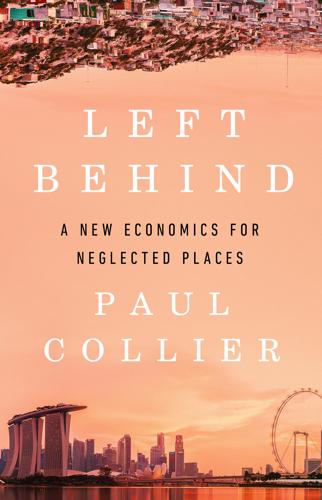
Left Behind
by
Paul Collier
Published 6 Aug 2024
At its worst, it opened the door to empty gestures: governments realized the political benefits of making grandiose commitments to lofty objectives that were unlikely ever to be implemented. By lulling their citizens into the illusion that action was being taken, they could look decisive without the need to finance the consequences of genuine action. A major philosophical advance came in 1970 when John Rawls published A Theory of Justice. It proposed that to be just a public policy should benefit the living standard of the least well-off community to the maximum feasible: the policy of maximizing the minimum. Inequalities were permissible only if they enabled the living standard of the poorest group to increase.iii It was intended as a moral constitution to constrain the majoritarian process in a democracy.
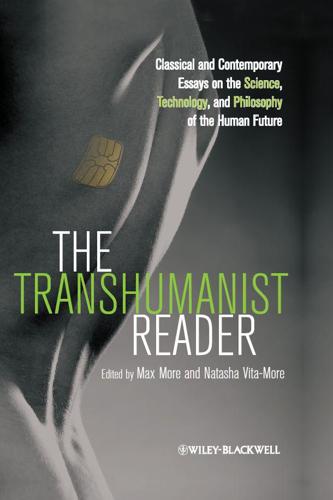
The Transhumanist Reader
by
Max More
and
Natasha Vita-More
Published 4 Mar 2013
If a majority be united by a common interest, the rights of the minority will be insecure” (Madison 1788). Alexis de Tocqueville made the same point when he asked, “If it be admitted that a man possessing absolute power may misuse that power by wronging his adversaries, why should not a majority be liable to the same reproach?” (de Tocqueville 1835: Book I, ch. XV). Philosopher John Rawls updated and extended the arguments supporting these Enlightenment ideals in his Political Liberalism, in which he made the case for a limited conception of politics that could reconcile and tolerate diverse “reasonable comprehensive doctrines.” According to Rawls, a reasonable comprehensive doctrine has three features: it deals with the major religious, philosophical, and moral aspects of human life in a coherent and consistent fashion; it recognizes certain values as significant and by giving some primacy of some values over others expresses an intelligible view of the world; and it is not unchanging, but generally evolves slowly over time in light of what its adherents see as good and sufficient reasons.
…
Allhoff offers a principle derived from the second formulation of Kant’s categorical imperative (Kant 1991: 66) that we treat individuals as ends and never merely as means or, more simply, to treat them in ways to which they would rationally consent (Allhoff 2008). Allhoff turns next to philosopher John Rawls’ notion of primary goods. In A Theory of Justice Rawls defines primary goods as those goods that every rational person should value, regardless of his conception of the good. These goods include rights, liberties, opportunities, health, intelligence, and imagination (Rawls 1999: 54–55). As Allhoff argues, “These are the things that, ex hypothesi, everyone should want; it would be irrational to turn them down when offered.
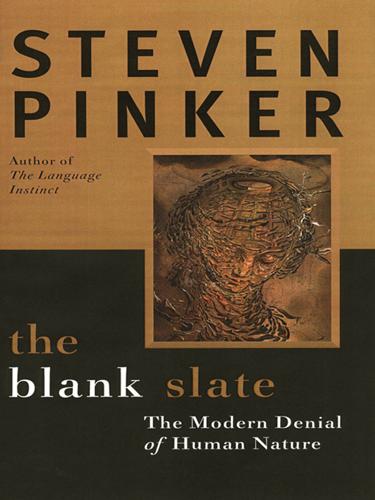
The Blank Slate: The Modern Denial of Human Nature
by
Steven Pinker
Published 1 Jan 2002
Moore noted that it is sensible to ask, “This conduct is more evolutionarily successful, but is it good?” The mere fact that the question makes sense shows that evolutionary success and goodness are not the same thing. Can one really reconcile biological differences with a concept of social justice? Absolutely. In his famous theory of justice, the philosopher John Rawls asks us to imagine a social contract drawn up by self-interested agents negotiating under a veil of ignorance, unaware of the talents or status they will inherit at birth—ghosts ignorant of the machines they will haunt. He argues that a just society is one that these disembodied souls would agree to be born into, knowing that they might be dealt a lousy social or genetic hand.22 If you agree that this is a reasonable conception of justice, and that the agents would insist on a broad social safety net and redistributive taxation (short of eliminating incentives that make everyone better off), then you can justify compensatory social policies even if you think differences in social status are 100 percent genetic.
…
Crime in America: Observations on its nature, causes, prevention, and control. New York: Simon & Schuster. Claverie, J.-M. 2001. What if there are only 30,000 human genes? Science, 291, 1255–1257. Cohen, J. 1997. The natural goodness of humanity. In A. Reath, B. Herman, & C. Korsgaard (Eds.), Reclaiming the history of ethics: Essays for John Rawls. New York: Cambridge University Press. Colapinto, J. 2000. As nature made him: The boy who was raised as a girl. New York: HarperCollins. Collins, W. A., Maccoby, E. E., Steinberg, L., Hetherington, E. M., & Bornstein, M. H. 2000. Contemporary research on parenting: The case for nature and nurture.
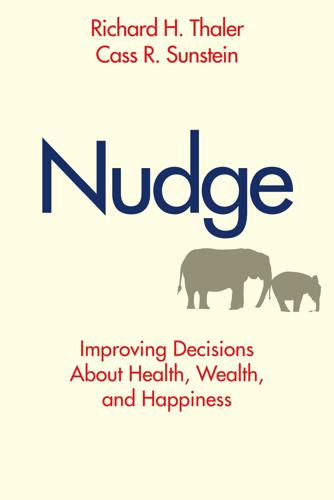
Nudge: Improving Decisions About Health, Wealth, and Happiness
by
Richard H. Thaler
and
Cass R. Sunstein
Published 7 Apr 2008
Are such mirrors an acceptable strategy for our friend Carolyn in the cafeteria? If so, what should we think about flattering mirrors in a fast food restaurant? To approach these problems we once again rely on one of our guiding principles: transparency. In this context we endorse what the philosopher John Rawls (1971) called the publicity principle. In its simplest form, the publicity principle bans government from selecting a policy that it would not be able or willing to defend publicly to its own citizens. We like this principle on two grounds. The first is practical. If a government adopts a policy that it could not defend publicly, it stands to face considerable embarrassment, and perhaps much worse, if the policy and its grounds are disclosed.
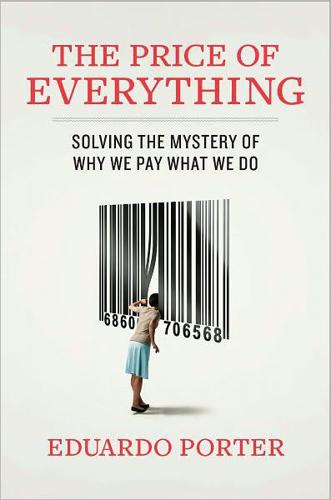
The Price of Everything: And the Hidden Logic of Value
by
Eduardo Porter
Published 4 Jan 2011
There are lots of priorities to choose from, including 33 million people living with HIV. In sub-Saharan Africa 9 mothers die for every 1,000 live births and 157 out of every 1,000 kids die before reaching the age of five. In Southern Asia, 46 percent of children under five are underweight and nearly a third of the working population earns less than one dollar a day. John Rawls, perhaps the most influential American moral and political philosopher since World War II, argued that societies should strive to maximize the well-being of the least fortunate among them. No society that I know of has ever met this goal. But most democratic governments today redistribute income in some way, through taxes and spending programs, from the rich to the poor.
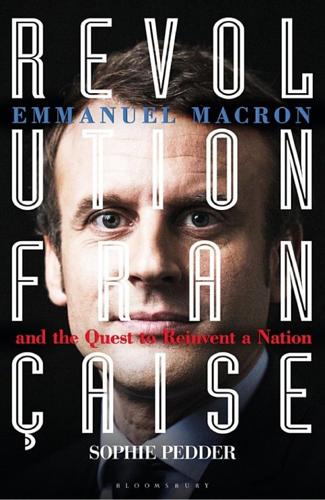
Revolution Française: Emmanuel Macron and the Quest to Reinvent a Nation
by
Sophie Pedder
Published 20 Jun 2018
He conceived of anti-poverty policy in terms of improving an individual’s ‘capabilities’ to realize his full potential.22 Macron acknowledges that his reading of Sen ‘structured a lot of my thinking on social justice’.23 His desire to put liberty back into the equation when devising social policy in France, which on the left has long been dominated by the quest for equal outcomes, is at the heart of this philosophy. In this, Macron also draws on the work on social justice by the American philosopher John Rawls, as well as Ronald Dworkin, who are relatively little studied in France but both of whom he has listened to in public lectures and found ‘very inspiring’.24 Already, as a student at Sciences Po, Macron was drawn to a form of social-democratic thinking that was based on individual rights, ‘not just the infinite extension of collective rights’, said Marc Ferracci.25 Macron refutes the view that liberty and equality are incompatible.
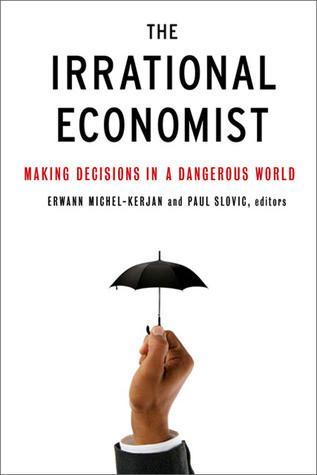
The Irrational Economist: Making Decisions in a Dangerous World
by
Erwann Michel-Kerjan
and
Paul Slovic
Published 5 Jan 2010
I see no reason why Plato’s standard of rationality—or its modern economic versions, for that matter—should not also change in the face of increased knowledge of decision making, especially knowledge about choice construction and context-dependent social goals. In the twentieth century, American philosophers Nelson Goodman and John Rawls developed the concept of reflective equilibrium: Intuitions about correct inductive reasoning (Goodman) or about justice (Rawls) are part of the raw material from which philosophical analyses are built. A philosophical principle that negates strongly held intuitions about correct induction or about justice should be modified; yet an intuition that conflicts with a compelling principle must also be modified.
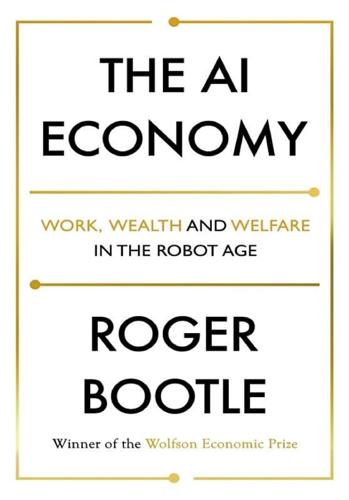
The AI Economy: Work, Wealth and Welfare in the Robot Age
by
Roger Bootle
Published 4 Sep 2019
The History and Future of Workplace Automation, The Journal of Economic Perspectives, 29(3). Chapter 9 1 Leonhard, G. (2016), p. 49. 2 This parody of synthetic logic has wide applicability. Its origin is unknown. 3 The most recent attempt to produce a grand vision of a fair society has come from the American philosopher John Rawls, in his book (1971) A Theory of Justice, Oxford: Oxford University Press. 4 Quoted in Bregman (2017) Utopia for Realists, p. 72. 5 See Baker, D. (2016) Rigged: How Globalisation and the Rules of the Modern Economy were Structured to Make the Rich Richer, Washington D.C.: Center for Economic and Policy Research. 6 For a wide-ranging survey of all aspects of this subject, see L.
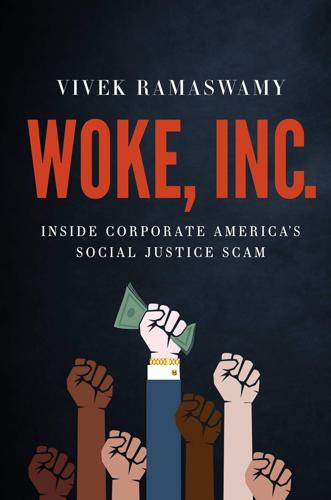
Woke, Inc: Inside Corporate America's Social Justice Scam
by
Vivek Ramaswamy
Published 16 Aug 2021
They’re too focused on how capitalism harms certain groups rather than focusing on how capitalism sometimes harms everyone by infecting other social systems, like family life or even social values. Capitalism hurts all of us when it undermines democracy through the influence of lobbyists or corporate-social fiats. It hurts all of us when it co-opts sincerely held values like faith or feminism to quietly make money. John Rawls is one of those all-time great philosophers, who, if he were alive today, would still be looking in the wrong place for the dangers of capitalism. He argued that justice was a matter of fairness and that in a system agreed to by all under fair conditions, all would agree that whoever was left with the short end of the stick should still do as well as possible.
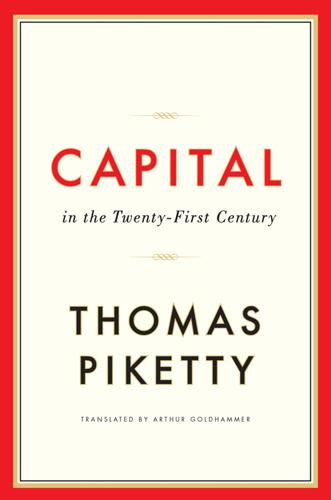
Capital in the Twenty-First Century
by
Thomas Piketty
Published 10 Mar 2014
One reasonable interpretation is that social inequalities are acceptable only if they are in the interest of all and in particular of the most disadvantaged social groups.20 Hence basic rights and material advantages must be extended insofar as possible to everyone, as long as it is in the interest of those who have the fewest rights and opportunities to do so.21 The “difference principle” introduced by the US philosopher John Rawls in his Theory of Justice is similar in intent.22 And the “capabilities” approach favored by the Indian economist Amartya Sen is not very different in its basic logic.23 At a purely theoretical level, there is in fact a certain (partly artificial) consensus concerning the abstract principles of social justice.
…
The boundary between equalization of opportunities and conditions is often rather porous (education, health, and income are both opportunities and conditions). The Rawlsian notion of fundamental goods is a way of moving beyond this artificial opposition. 22. “Social and economic inequalities … are just only if they result in compensating benefits for everyone, and in particular for the least advantaged members of society” (John Rawls, A Theory of Justice [Cambridge, MA: Belknap Press, 15]). This 1971 formulation was repeated in Political Liberalism, published in 1993. 23. These theoretical approaches have recently been extended by Marc Fleurbaey and John Roemer, with some tentative empirical applications. See the online technical appendix. 24.
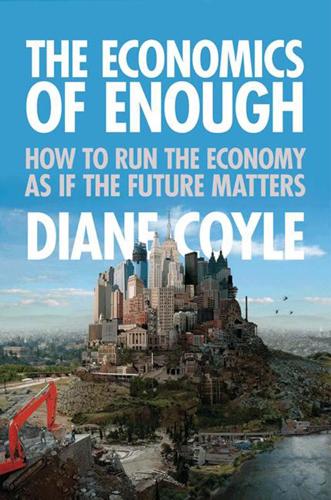
The Economics of Enough: How to Run the Economy as if the Future Matters
by
Diane Coyle
Published 21 Feb 2011
Their recipe for social welfare is usually described in shorthand as the greatest happiness for the greatest number. Some modern happiness theorists such as Richard Layard work explicitly in the utilitarian tradition. It is a distinguished philosophical tradition that was most notably continued in the twentieth century by John Rawls in his landmark Theory of Justice. It is also a controversial approach, because in its own way emphasizing happiness (or “utility” or “well-being”) as the sole measure of welfare is just as reductionist and inadequate as saying only the pursuit of income matters. Indeed, almost all other approaches to ethical rules for the good life would say that social welfare—the good society—has several dimensions, and sometimes other principles should outweigh happiness.
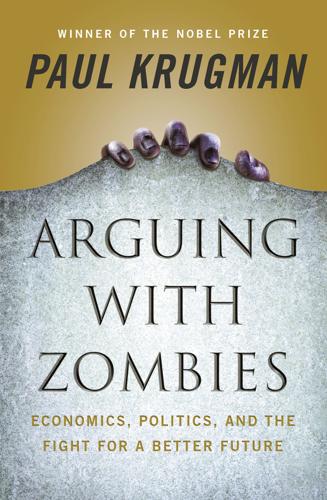
Arguing With Zombies: Economics, Politics, and the Fight for a Better Future
by
Paul Krugman
Published 28 Jan 2020
Do you want society to be like modern Denmark, with its high taxes, strong social safety net, and extensive worker protections, or like America in the Gilded Age, when laissez-faire ruled? At one level, this axis of contention is about values. People on the left tend to have a concept of social justice along the lines formalized by the philosopher John Rawls: they believe that people should advocate the society they’d choose if they didn’t know who they would be, which role they would play. Basically, this moral position is “There but for the grace of God go I,” although often without the God part. People on the right, by contrast, view (or claim to view) government intervention to reduce inequality and risk as immoral.
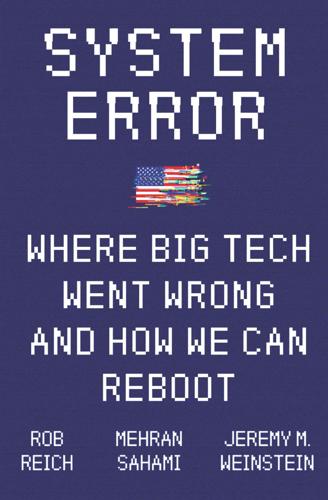
System Error: Where Big Tech Went Wrong and How We Can Reboot
by
Rob Reich
,
Mehran Sahami
and
Jeremy M. Weinstein
Published 6 Sep 2021
If these are relevant considerations, a fair process alone won’t deliver. Focusing on procedural fairness, however, can illuminate especially important considerations when it comes to thinking about the justice of any decision-making process, including algorithmic decision-making. The late philosopher John Rawls developed a theory of justice that he called “justice as fairness,” where a fair decision-making process would not permit the powerful to take advantage of the weak, the rich to dominate the poor, or a majority group to outvote a minority group. To capture this mindset, he suggested that decisions impacting society should be made from behind a “veil of ignorance,” where decision makers would have no knowledge of their own personal situation or socioeconomic status.
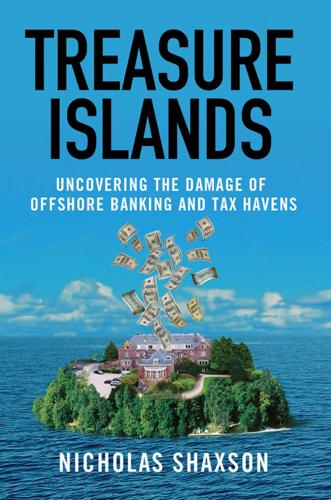
Treasure Islands: Uncovering the Damage of Offshore Banking and Tax Havens
by
Nicholas Shaxson
Published 11 Apr 2011
Mainstream modern publications about the City gloss over its free-floating status.72 Globalization has led to whole fields of research into the actions and interactions of companies in markets, but they usually only discuss political institutions on an abstract level. Students of the philosopher John Rawls have focused on the social compact—the relationship between rulers and ruled—but have paid relatively little reference to the role of institutions or history. Even Marxists, primed not to worry much about how financial capital organizes itself, have considered the City in the context of a clash between manufacturing capital and financial capital, misunderstanding its true role.
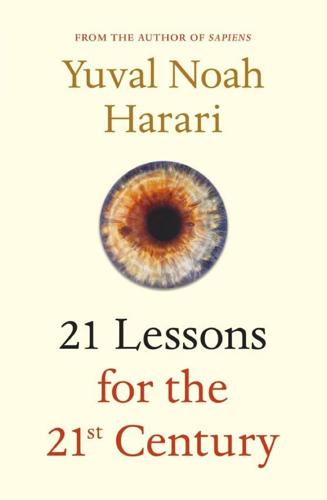
21 Lessons for the 21st Century
by
Yuval Noah Harari
Published 29 Aug 2018
We can send all our philosophers, prophets and priests to preach ethics to these drivers – but on the road, mammalian emotions and savannah instincts will still take over. Consequently, seminarians in a rush will ignore people in distress, and drivers in a crisis will run over hapless pedestrians. This disjunction between the seminary and the road is one of the biggest practical problems in ethics. Immanuel Kant, John Stuart Mill and John Rawls can sit in some cosy university hall and discuss theoretical problems in ethics for days – but would their conclusions actually be implemented by stressed-out drivers caught in a split-second emergency? Perhaps Michael Schumacher – the Formula One champion who is sometimes hailed as the best driver in history – had the ability to think about philosophy while racing a car; but most of us aren’t Schumacher.
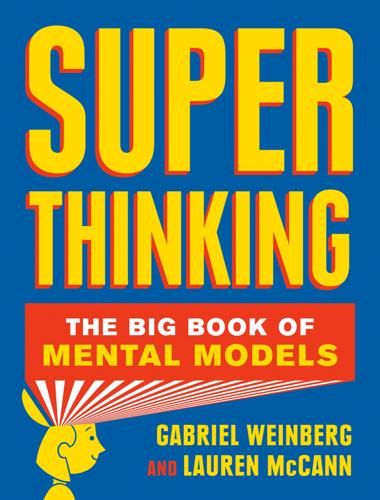
Super Thinking: The Big Book of Mental Models
by
Gabriel Weinberg
and
Lauren McCann
Published 17 Jun 2019
For example, if someone runs a red light, you often assume that person is inherently reckless; you do not consider that she might be rushing to the hospital for an emergency. On the other hand, you will immediately rationalize your own actions when you drive like a maniac (“I’m in a hurry”). Another tactical model to help you have greater empathy is the veil of ignorance, put forth by philosopher John Rawls. It holds that when thinking about how society should be organized, we should do so by imagining ourselves ignorant of our particular place in the world, as if there were a veil preventing us from knowing who we are. Rawls refers to this as the “original position.” For example, you should not just consider your current position as a free person when contemplating a world where slavery is allowed.
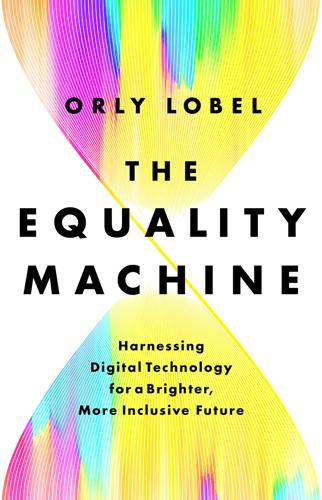
The Equality Machine: Harnessing Digital Technology for a Brighter, More Inclusive Future
by
Orly Lobel
Published 17 Oct 2022
But some outcomes—such as “select a good employee”—are more subjective, multifaceted, or contested, and inevitably require human judgment about what classifies a person as “good” in that and other contexts. Imagine an algorithm that is taught fairness theories about equality and distributive justice. This isn’t an easy undertaking; we’ve seen in these pages that what we mean by equality is complex and dynamic. Philosopher John Rawls gave us a paradigmatic formula for thinking about justice in liberal societies. He reasoned that society should be structured so that the greatest possible amount of liberty is given to each member without infringing on the freedoms of other members. In this model, inequalities—social or economic—can exist only if the worst-off will be better off than they might be under equal distribution; inequality should not extend to holding public positions of power, such as running for office; and inequality is per se prohibited if it stems from protected identities—gender, race, ethnicity, religion, national origin.
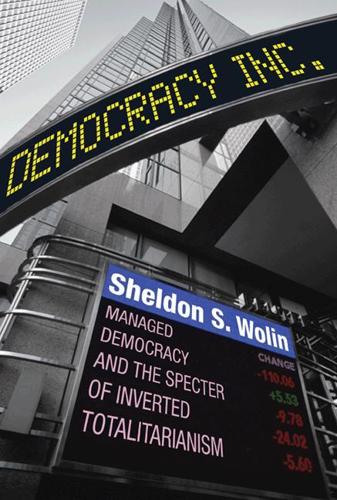
Democracy Incorporated
by
Sheldon S. Wolin
Published 7 Apr 2008
Cited in Mann, Incoherent Empire, 11. 10. The major exception is the continuing controversy over procedural rights. This contrasts with the lively academic discourse on justice during the last three decades of the twentieth century, thanks primarily to the focus provided by the magistral work of John Rawls. 11. See Johnston, Perfectly Legal. 12. The long-term objective of the tax reformers is to establish a flat tax. The originators of the idea of a flat tax candidly wrote that the tax “would be a tremendous boon to the economic elite. . . . It is an obvious mathematical law that lower taxes on the successful will have to be made up by higher taxes on average people.”
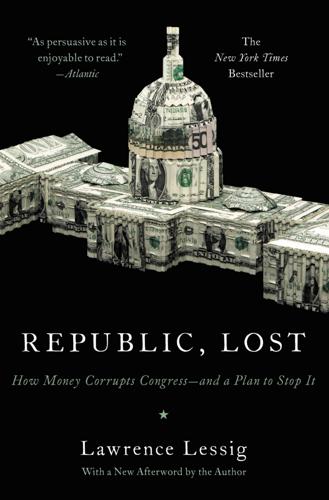
Republic, Lost: How Money Corrupts Congress--And a Plan to Stop It
by
Lawrence Lessig
Published 4 Oct 2011
Indeed, were it not for the increase in hours worked over the past thirty years, the middle class would not have gained at all, and the lower class would have fallep a halen behind, while the highest-income groups have exploded.101 “The bottom went nowhere, the middle saw a modest gain, and the top ran away with the grand prize.”102 Whenever anyone starts talking about inequality, the first reaction of many (at least on the Right but also in the middle) is to turn off. Our Constitution is not Soviet. We are not committed to the philosophy of Karl Marx, or even John Rawls. That there are rich and poor in America is a fact of American life. Some believe it explains the innovation in American life. And no set of clever graphs demonstrating “how the rich get richer” is going to move those who believe that the “unalienable right… [to] Life, Liberty, and the Pursuit of Happiness” includes the right to get rich faster than your neighbor.
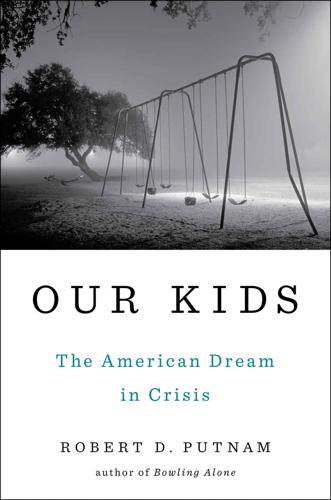
Our Kids: The American Dream in Crisis
by
Robert D. Putnam
Published 10 Mar 2015
Pojman and Robert Westmoreland (New York: Oxford University Press, 1997), 137–47; William Galston, “A Liberal Defense of Equality of Opportunity,” in Equality, eds. Pojman and Westmoreland, 170–81; Bernard A. O. Williams, “The Idea of Equality,” in Equality, eds. Pojman and Westmoreland, 91–101; John Rawls, A Theory of Justice, rev. ed. (Cambridge: Belknap Press of Harvard University Press, 1999); John E. Roemer, Equality of Opportunity (Cambridge: Harvard University Press, 2000); Will Kymlicka, Contemporary Political Philosophy: An Introduction, 2nd ed. (New York: Oxford University Press, 2002), 53–101; T.

Geek Heresy: Rescuing Social Change From the Cult of Technology
by
Kentaro Toyama
Published 25 May 2015
If you fold in the fact that richer people access superior technologies, then the increase in inequality is superlinear: As new technologies appear, the rich get richer out of proportion to their initial relative wealth. I don’t mean to say that low-cost technologies can’t help poorer people – they certainly can. And for some people, like the political philosopher John Rawls, this would be good enough, at least in theory. In practice, though, this argument neglects the fact that political power and finite natural resources are both zero sum – the more that someone has, the less others do, so increasing absolute inequality is necessarily worse for those at the bottom.

Posh Boys: How English Public Schools Ruin Britain
by
Robert Verkaik
Published 14 Apr 2018
At the same time four million UK citizens are deemed so poor that they are said to be in persistent poverty. If you are born poor in Britain, the chances are that you will die poor.7 Millions of people will go to their graves never knowing there are charities called Eton, Harrow and Charterhouse whose sole purpose is to improve the lives of rich and privileged children. The American philosopher John Rawls said that a just society is one you would be happy to enter without knowing your social position in advance. Against that measure, can we really claim that Britain is a just society? The widening gap between private schools and ‘bog-standard’ state schools means that a child today has less chance of breaking through the class and career barrier than their grandparents born in the 1950s.8 The subtle networks of the privately schooled help to create a system of self-perpetuating advantage and social immobility.
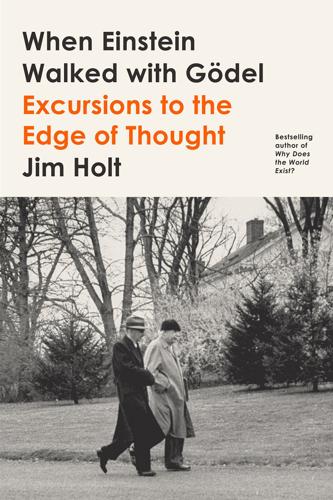
When Einstein Walked With Gödel: Excursions to the Edge of Thought
by
Jim Holt
Published 14 May 2018
This closely reasoned defense of the minimal state, published in 1974, resonated with libertarian types everywhere and became something of a bible for many Warsaw bloc dissidents. But Nozick never thought of himself as a political philosopher. (Anarchy, State, and Utopia was an “accident,” he claimed; he was prodded to write it by the appearance of his Harvard colleague John Rawls’s book A Theory of Justice.) He was more interested in rational choice and free will. What had launched his philosophical career was a wonderful paradox that involved both these topics. Nozick did not invent this paradox himself. It was thought up by a California physicist named William Newcomb and reached Nozick by way of a mutual friend, the Princeton mathematician David Kruskal, at a cocktail party (“the most consequential party I have attended,” said Nozick, who was by no means party shy).
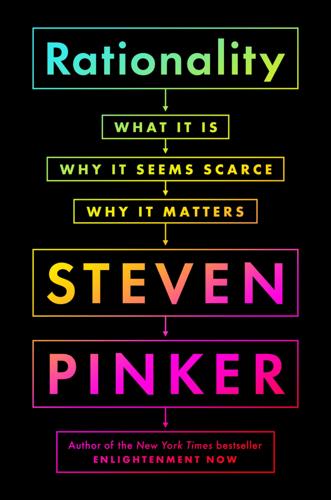
Rationality: What It Is, Why It Seems Scarce, Why It Matters
by
Steven Pinker
Published 14 Oct 2021
Versions of these rules have been independently discovered in Judaism, Christianity, Hinduism, Zoroastrianism, Buddhism, Confucianism, Islam, Baháí, and other religions and moral codes.46 These include Spinoza’s observation, “Those who are governed by reason desire nothing for themselves which they do not also desire for the rest of humankind.” And Kant’s Categorical Imperative: “Act only according to that maxim whereby you can at the same time will that it should become a universal law.” And John Rawls’s theory of justice: “The principles of justice are chosen behind a veil of ignorance” (about the particulars of one’s life). For that matter the principle may be seen in the most fundamental statement of morality of all, the one we use to teach the concept to small children: “How would you like it if he did that to you?”
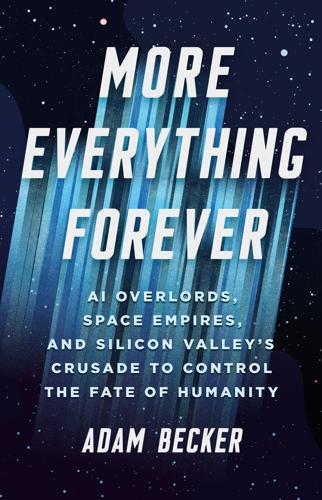
More Everything Forever: AI Overlords, Space Empires, and Silicon Valley's Crusade to Control the Fate of Humanity
by
Adam Becker
Published 14 Jun 2025
If someone told you that they had found a way to do that, one that worked for literally every human that had ever lived or could ever live until the end of the universe, would you believe them? Yet there’s an even deeper problem here, one that would arguably remain even if someone really could define utility in a satisfying way. “One of the objections that John Rawls [the twentieth-century political philosopher and ethicist] famously made about utilitarianism is its conception of persons, which it basically reduces to containers of value, receptacles of value,” says Émile Torres, a philosopher at Case Western Reserve University specializing in the ethics of human extinction risk.
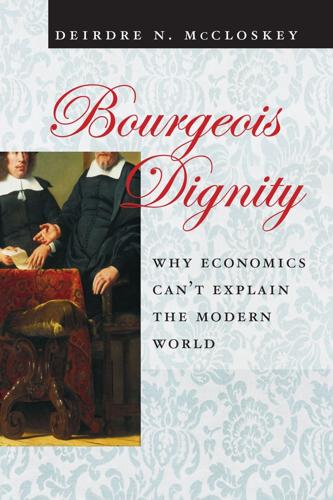
Bourgeois Dignity: Why Economics Can't Explain the Modern World
by
Deirdre N. McCloskey
Published 15 Nov 2011
Forcing now, by state violence, an equality of outcome, in an illiberal, “French” style—cutting down the tall poppies, envying the silly baubles of the rich, imagining that sharing income is as efficacious for helping the poor as sharing a pizza is for a nice party among friends, treating poor people as sad children to be nudged or compelled by the mandarins of the clerisy—often has had, we have found, a high cost in damaging liberty and dignity and slowing betterment. Not always, but often. Anthony Waterman, the historian of economic thought, notes that as soon as the advocates for French-style equality stray from their sailing plan that inequality is simply evil, they founder on a consequentialist rock (on which John Rawls had in 1971 placed a lighthouse): “From the standpoint of economic efficiency, is inequality [by a French definition] always a bad thing? May it not sometimes confer social benefits against which the evils they report must be set as an offset? [Thus Rawls.] If so we should have what rejoices the heart of every [Samuelsonian] economist: an optimization problem.”39 Waterman points out that competition for “positional goods,” such as a top standing at Harvard, a competition necessarily inegalitarian in its result, can, as Smith and other eighteenth-century liberals claimed, benefit the whole society.
…
Clark has observed that cutting down the tall poppies is an “unsocial passion,” as Adam Smith put it, the uncooperative conviction that my rank in advance of yours is more important than the annoying and probably self-enriching project for our alleged mutual betterment that you keep offering.18 A right-wing version of zero-sum also maintains hierarchy, and was well understood in Czech and other lands before 1800. At all costs we must keep the distribution of income we started with. No disturbing betterment is to be tolerated, even if [John Rawls–style] the standard of genuine comfort of the poorest is thereby greatly improved. The Spanish proverb is “mal de muchos, consuelo de tontos,” that is, widespread evil is a comfort to fools, making them feel that after all they are equal, and have no one to envy. The indulging of the vice of envy shows in many arguments on the left.
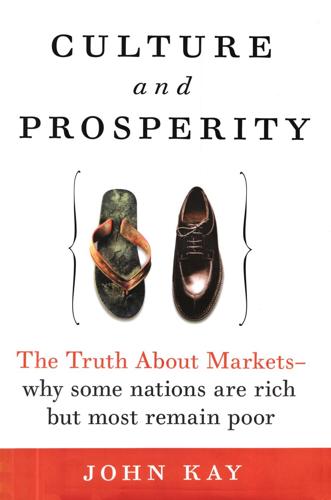
Culture and Prosperity: The Truth About Markets - Why Some Nations Are Rich but Most Remain Poor
by
John Kay
Published 24 May 2004
The most rigorous basis for such assertion is provided by a combination of the rationality postulates of Becker, the Arrow-Debreu framework of general equilibrium, the fundamental theorems of welfare economics, and a dose of individualistic political philosophy. It is time to place this last piece of the Jigsaw. Nozick and Rawls ••••••••••••••••••••••••••••••••••••• John Rawls's Theory of]ustice) published in 1972, and Robert Nozick's Anarchy State and Utopia) which appeared in 1974, are among the most influential works of modern political theory. Neither of these Harvard philosophers were proselytizing figures in the manner { 202} John Kay of the Chicago economists.
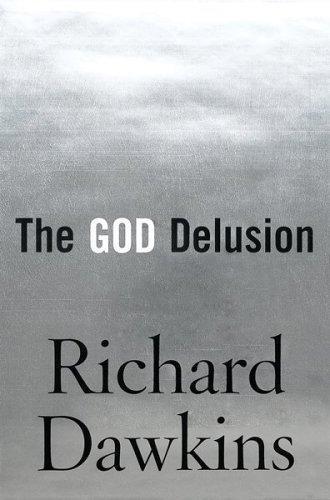
The God Delusion
by
Richard Dawkins
Published 12 Sep 2006
It was the first list I found when I typed ‘New Ten Commandments’ into a search engine, and I deliberately didn’t look any further. The whole point is that it is the sort of list that any ordinary, decent person today would come up with. Not everybody would home in on exactly the same list of ten. The philosopher John Rawls might include something like the following: ‘Always devise your rules as if you didn’t know whether you were going be at the top or the bottom of the pecking order.’ An alleged Inuit system for sharing out food is a practical example of the Rawls principle: the individual who cuts up the food gets last pick.

They Gave Me a Seafire
by
Commander R 'Mike' Crosley Dsc Rn
Published 5 Aug 2014
Some early problems 12 Mike Banyard’s unofficial report after landing aboard USS Essex, 10 August 1946 13 The Falklands’ losses — or how Naval history repeats itself 14 List of Squadrons and names Bibliography Churchill as Warlord, Ronald Lewin, (B. T. Batsford). Air Power at Sea, John Winton, (Peter Davies). Aircraft and Sea Power, V/A Sir Arthur Hezlet, (Peter Davies). The Battle of the Atlantic, Donald Macintyre, (Severn House). Strikes from the Sea, Robert Jackson, (Arthur Barker). Pictorial History of FAA, John Rawlings, (Ian Allan). Carrier Operations of WW II, J. D. Brown, (Ian Allan). The FAA History, Lt/Cdr J. Waterman RD, RNR, (Art Press Ltd.). A Sailor’s Odyssey, Viscount Cunningham of Hyndhope, (Hutchinson). Action this Day, Admiral of the Fleet, Sir Philip Vian GCB, KBE, DSO, (Frederick Muller Ltd.).
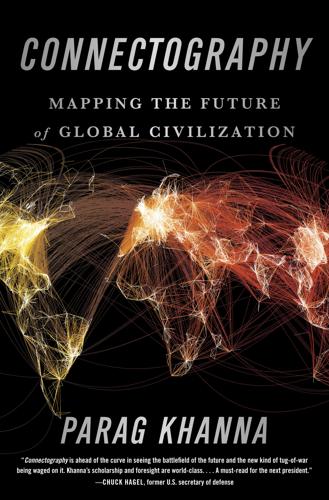
Connectography: Mapping the Future of Global Civilization
by
Parag Khanna
Published 18 Apr 2016
A world remapped according to connections rather than divisions holds the potential to advance a shift from “us-them” mentalities toward a broader human “we” identity. There is no good reason to turn back. The touchstone of morality in a global society is leveraging connectedness for utilitarian ends: achieving the greatest good for the greatest number of people. We must apply John Rawls’s test of societal morality on a global scale, judging ourselves by how we treat those at the bottom and justifying inequality to the extent that it improves the lives of the poorest. There is still potential to turn what the economist Branko Milanovic calls “bad” inequality into “good” inequality, which motivates and enables efforts for achievement.
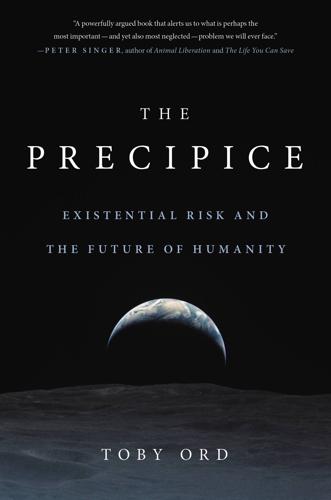
The Precipice: Existential Risk and the Future of Humanity
by
Toby Ord
Published 24 Mar 2020
In her seminal work on the rights of future persons, Annette Baier (1981) makes a related point: “The crucial role we fill, as moral beings, is as members of a cross-generational community, a community of beings who look before and after, who interpret the past in light of the present, who see the future as growing out of the past, who see themselves as members of enduring families, nations, cultures, traditions.” As does John Rawls in A Theory of Justice (1971, § 79): “The realizations of the powers of human individuals living at any one time takes the cooperation of many generations (or even societies) over a long period of time.” 36 Seneca (1972), pp. 279–91. Sixteen centuries later, in 1704, Isaac Newton made a similar remark (Newton & McGuire, 1970): “To explain all nature is too difficult a task for any one man or even for any one age. ’Tis much better to do a little with certainty, & leave the rest for others that come after you…” In 1755, Denis Diderot expressed related ideas in his Encyclopédie (Diderot, 1755, pp. 635–48A): “… the purpose of an encyclopedia is to collect knowledge disseminated around the globe; to set forth its general system to the men with whom we live, and transmit it to those who will come after us, so that the work of preceding centuries will not become useless to the centuries to come; and so that our offspring, becoming better instructed, will at the same time become more virtuous and happy, and that we should not die without having rendered a service to the human race.” 37 Perhaps even more astounding is that some of the mysteries of comets whose depth inspired Seneca to write this passage have only recently been revealed—and contributed directly to our understanding of existential risk: “Some day there will be a man who will show in what regions comets have their orbit, why they travel so remote from other celestial bodies, how large they are and what sort they are” (Seneca, 1972, p. 281).
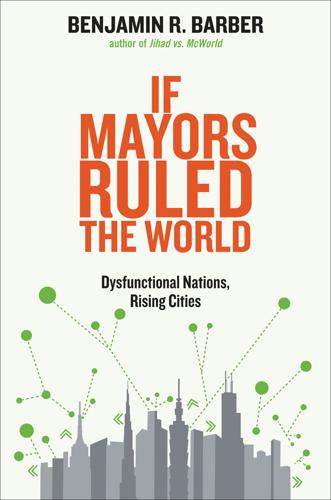
If Mayors Ruled the World: Dysfunctional Nations, Rising Cities
by
Benjamin R. Barber
Published 5 Nov 2013
Rikasr, and Kathryn Sikkink, eds., Restructuring World Politics: Transnational Social Movements, Networks, and Norms, Minneapolis: University of Minnesota Press, 2004; Jackie Smith, Social Movements for Global Democracy, Baltimore: Johns Hopkins University Press, 2008; and Andrew Kuper, Democracy Beyond Borders: Justice and Representation in Global Institutions, Oxford: Oxford University Press, 2004. Peter Singer’s One World: The Ethics of Globalization, New Haven: Yale University Press, 2002, offers the classic account of the ethics of a cosmopolitan world, while John Rawls offers the classic liberal account of a law-based international order in his The Law of Peoples, Cambridge: Harvard University Press, 1999. It is important to make clear that these are complementary rather than rival approaches to the notion of global governance advanced here. A global democratic system rooted in norms, social movements, NGOs, and law can only help ground and render effective an intercity governance system with a global mayors parliament capstone. 23.

Evil Geniuses: The Unmaking of America: A Recent History
by
Kurt Andersen
Published 14 Sep 2020
But then came the ultra-individualistic frenzy of the 1960s, and during the 1970s and ’80s, liberty assumed its powerfully politicized form and eclipsed equality and solidarity among our aspirational values. Greed is good meant that selfishness lost its stigma. And that was when we were in trouble. The best test of a morally legitimate social contract is a thought experiment that the philosopher John Rawls named the Veil of Ignorance in 1971, just as modern American ultra-individualism exploded. The idea is to imagine you know nothing of your actual personal circumstances—wealth, abilities, education, race, ethnicity, gender, age; all those salient facts are veiled from you. Would you agree to sign your country’s social contract and take your chances for better or worse in the social and political and economic system it governs?
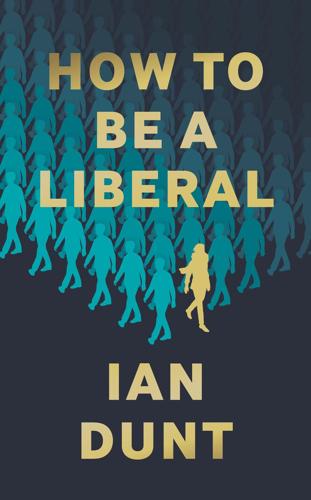
How to Be a Liberal: The Story of Liberalism and the Fight for Its Life
by
Ian Dunt
Published 15 Oct 2020
You could quite easily write a book on the subject that didn’t mention any of the figures I’ve used here and had a quite different emphasis, or even one that shared the same emphasis but included different figures. But that being said, I’m particularly sorry that I missed out Ronald Dworkin, TH Green, François Guizot, Leonard Hobhouse, Wilhelm von Humboldt, Immanuel Kant, Robert Nozick, Martha Nussbaum, Karl Popper, John Rawls, Friedrich Schiller and Alexis de Tocqueville. I would also like to apologise to myself for researching and writing about at least two of these figures only to realise they didn’t fit the narrative. That time could have been better spent in the pub, or indeed on almost anything. A quick note on quotations.
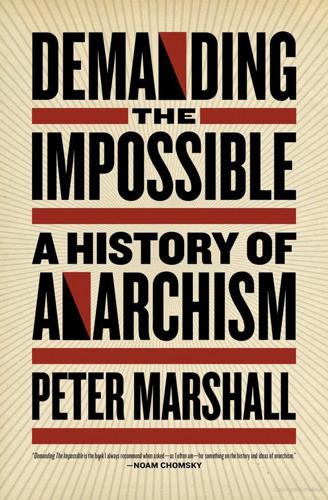
Demanding the Impossible: A History of Anarchism
by
Peter Marshall
Published 2 Jan 1992
Over the last two centuries, they have extended the principle of equality to embrace all humanity. At the same time, their concern with individuality has prevented them from calling for absolute economic equality. While advocating the impartial consideration of everyone’s worth and need, they do not insist on equal treatment and equal shares. They would accept John Rawls’ principle in his definition of justice as fairness that each person has ‘an equal right to the most extensive liberty compatible with a like liberty for all’, although they would add the proviso that any inequalities in a free society would ideally be the result of voluntary agreement.68 But they go beyond Rawls who believes that citizens of a country do not object to there being different offices of government.
…
Robinson, 1793), II, 565 45 Bakunin, Oeuvres, op. cit., III, 69n43 46 Giovanni Baldelli, Social Anarchism (Harmondsworth: Penguin, 1971), p. 93 47 David Wieck, ‘The Negativity of Anarchism’, Reinventing Anarchy, op. cit., p. 140 48 Ritter, ‘The Anarchist Justification of Authority’, Nomos, XIX, op. cit., p. 138 49 Miller, Anarchism, op. cit., p. 57 50 Godwin, Political Justice (1793 edn.), op. cit., II, 708 51 Taylor, Community, Anarchy, and Liberty, op. cit., p. 23 52 Ritter, ‘The Anarchist Justification of Authority’, op. cit., p. 138 53 Bertrand Russell, Power: A New Social Analysis (Basic Books, 1940), p. 35 54 Alex Comfort, Authority and Delinquency in the Modern State (Routledge & Kegan Paul, 1950), p. 75 55 See Bookchin, ‘The Power to Create, The Power to Destroy’, Toward an Ecological Society (Montréal & Buffalo: Black Rose Books, 1980), ch. 1 56 Tucker, Instead of a Book, op. cit., p. 59 57 See Paul Goodman, People or Personnel: Decentralizing and the Mixed System (New York: Random House, 1965), pp. 175–89 58 Alfred Adler, Understanding Human Nature, quoted in Russell, Power, op. cit., p. 17 59 Kropotkin, Mutual Aid: A Factor of Evolution (Harmondsworth: Penguin, 1939), p. 233 60 Malatesta, Life and Ideas, op. cit., pp. 35, 267 61 See Bookchin, The Ecology of Freedom, op. cit. 62 John Clark, The Anarchist Moment (Montréal: Black Rose Books, 1984), p. 15 63 See Taylor, Liberty, Anarchy and Community, op. cit., pp. 80–1 64 Quoted in George Woodcock, Pierre-Joseph Proudhon: A Biographical Study (Routledge & Kegan Paul, 1956), p. 34 65 Tucker, Instead of a Book, op. cit., p. 347 66 Bakunin, ‘Revolutionary Catechism’, Bakunin on Anarchy, op. cit., p. 76 67 Malatesta, Life and Ideas, op. cit., p. 49 68 John Rawls, ‘Justice as Fairness’, Contemporary Political Theory, op. cit., p. 193 69 Tucker, Instead of a Book, op. cit., p. 132 Chapter Four 1 See John Clark, ‘Master Lao and the Anarchist Prince’, The Anarchist Moment, op. cit., p. 165. Reprinted from the symposium on Taoism and anarchism in Journal of Chinese Philosophy 10 (1983).

WTF?: What's the Future and Why It's Up to Us
by
Tim O'Reilly
Published 9 Oct 2017
Without the rule of law, capricious power sets the rules, usually to the benefit of a powerful few. What people really mean by “governs least” is that the rules are aligned with their interests. In an economy tuned to the interests of the few, the rules are often unfair to the rest. An economy tuned to the interests of the majority may seem unfair to some, but John Rawls’s “veil of ignorance”—the idea that the best rules for a political or economic order are those that would be chosen by people who had no prior knowledge of their place in that order—is a convincing argument that that government is best that governs for most. That, as it turns out, is also the lesson of technology platforms.
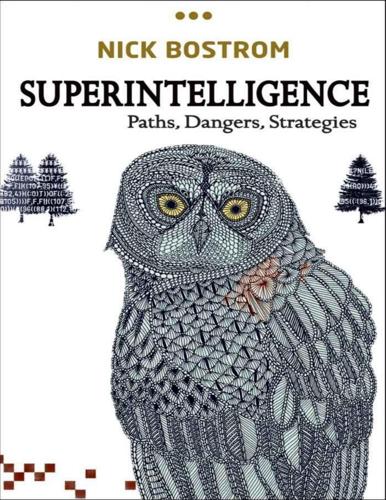
Superintelligence: Paths, Dangers, Strategies
by
Nick Bostrom
Published 3 Jun 2014
A series of such questions might take roughly the following form: “In the binary version of the code of the first AI that you thought of that would constitute a genie, is the nth symbol a zero?” 9. One could imagine a slightly more complicated oracle or genie that accepts questions or commands only if they are issued by a designated authority, though this would still leave open the possibility of that authority becoming corrupted or being blackmailed by a third party. 10. John Rawls, a leading political philosopher of the twentieth century, famously employed the expository device of a veil of ignorance as a way of characterizing the kinds of preference that should be taken into account in the formulation of a social contract. Rawls suggested that we should imagine we were choosing a social contract from behind a veil of ignorance that prevents us from knowing which person we will be and which social role we will occupy, the idea being that in such a situation we would have to think about which society would be generally fairest and most desirable without regard to our egoistic interests and self-serving biases that might otherwise make us prefer a social order in which we ourselves enjoy unjust privileges.
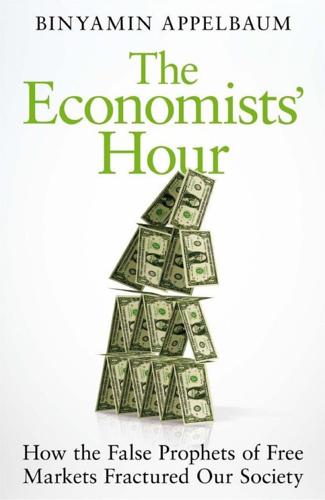
The Economists' Hour: How the False Prophets of Free Markets Fractured Our Society
by
Binyamin Appelbaum
Published 4 Sep 2019
Law professors who wrote and thought about grand theories of the law mostly reacted with outrage to Posner’s attempt to chisel “Justice” off the face of the nation’s courthouses and carve “Efficiency” in its place. Many subscribed to some version of the theory that justice meant fairness, which the philosopher John Rawls had elegantly updated in his 1971 book, A Theory of Justice. Rawls introduced a twist on the Golden Rule, suggesting the test of fairness was to ask what a person would think of a policy if she did not know her own circumstances, a perspective Rawls described as a “veil of ignorance.” He also rejected the idea that one person’s gains could justify another person’s losses.
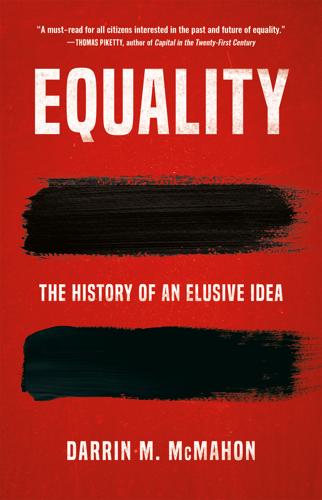
Equality
by
Darrin M. McMahon
Published 14 Nov 2023
That was the West’s “blind spot,” and as Myrdal came to appreciate, it was only exacerbated by decolonization, which had the effect of further sheltering the populations of the former imperial metropoles from the extremes of inequality their nations had helped to create.78 The welfare state, tragically, compounded the West’s myopia, encouraging its citizens to see their egalitarian commitments and horizons largely in national terms. Just as liberals in the nineteenth century proclaimed liberty at home, while making myriad “exceptions” in their empires, their counterparts in the twentieth century thought of equality at home and abroad on separate tracks.79 Symptomatic in this respect was the philosophy of John Rawls. Arguably the greatest liberal theorist of the national welfare state, he had nothing to say on the matter of global inequalities in his main work, A Theory of Justice (1971). And although by the late 1960s and 1970s, it was becoming harder and harder to avert one’s gaze from the plight of the world, he and others were forced to focus more intently on urgent problems at home that national welfare states had also tended to ignore.
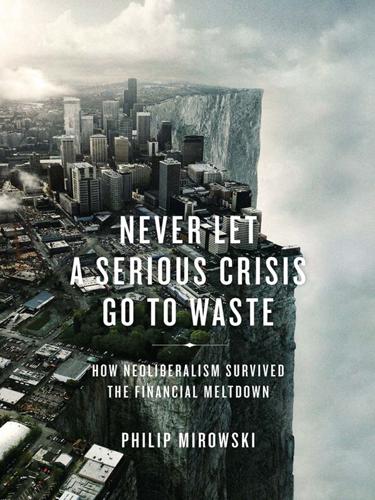
Never Let a Serious Crisis Go to Waste: How Neoliberalism Survived the Financial Meltdown
by
Philip Mirowski
Published 24 Jun 2013
The constant bewailing of the size of government is a win-win situation for neoliberals: they complain about recent growth of government, which they have themselves fostered, use the outrage they fan to “privatize” more functions, which leads only to more spending and a more intrusive infrastructure of government operations. The same dynamic is now at play in the further privatization and “rationalization” of European state health care systems. 86 Hayek, “The Moral Element in Free Enterprise.” 87 In this regard, the nominally left-liberal tradition of “social-choice theory” (Kenneth Arrow, Amartya Sen, John Rawls) by this criterion is virtually as neoliberal as the right-wing tradition of the “public-choice theory” of Buchanan and Tullock and the Virginia School. See Amadae, Rationalizing Capitalist Democracy; Arnsperger, Critical Political Economy. 88 Plant, The Neoliberal State. 89 Foucault, The Birth of Biopolitics, p. 226. 90 Davis, The Theory of the Individual in Economics and Individuals and Identity in Economics. 91 Milton Friedman in Friedman and Samuelson, Discuss the Responsibility of Government, p. 5. 92 “Neoliberalism figures interest as both a psychology that drives rational choices, and as the good achieved by those choices.
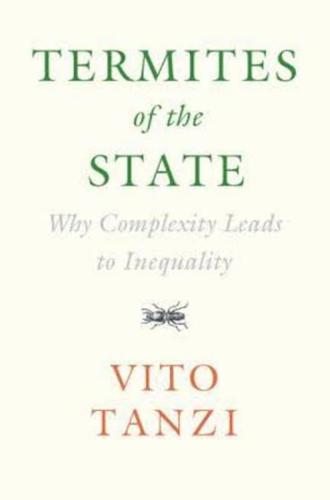
Termites of the State: Why Complexity Leads to Inequality
by
Vito Tanzi
Published 28 Dec 2017
It might be a serious mistake to believe that we can simply go on, with unchanged institutions and policies, and not worry about recent 400 Termites of the State worrisome developments – to simply “laissez-faire,” hoping for the best and believing in the power of the “invisible hand.” Following the views of de Tocqueville, some modern economists, political scientists, historians, and others have continued to maintain that democracy and economic development require mainly “equality of conditions” or “equality of opportunities” (see also the important contribution of John Rawls, 1971, and the useful survey by Roemer and Trannoy, 2016). Many of these thinkers believe that greater (obviously not absolute) equality of income is not necessary when there is equality of opportunity and conditions (see, for a recent example, McCloskey, 2015). They also believe that equal conditions or opportunities are automatically and generally provided when democratic institutions and a free market continue to exist, regardless of the distribution of income.
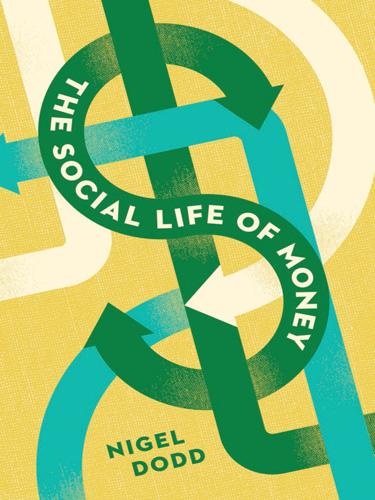
The Social Life of Money
by
Nigel Dodd
Published 14 May 2014
Global Imbalances and the Collapse of Globalised Finance, Brussels, Belgium, CEPS. Breton, A. (1969). Manifestoes of Surrealism, Ann Arbor, University of Michigan Press. Brodersen, M. (1996). Walter Benjamin: A Biography, London/New York, Verso. Brown, C. (2002). “The Construction of a ‘Realistic Utopia’: John Rawls and International Political Theory.” Review of International Studies 28 (1): 5–21. Brown, N. O. (1959). Life Against Death: The Psychoanalytical Meaning of History, New York, Vintage Books. Brown, N. O. (1992). Apocalypse and/or Metamorphosis, Berkeley, Cal, University of California Press. Browne, H. (1974).

Liberalism at Large: The World According to the Economist
by
Alex Zevin
Published 12 Nov 2019
In Germany, another legal pillar of the post-war order was laid with the Grundgesetz of 1949, ‘liberal democracy’s exemplary charter’, approved without need of any direct or popular vote.22 In the wings, the philosophers Michael Oakeshott and Isaiah Berlin were eloquent exponents of the quiet virtues of negative liberty and a diversity of ends, while John Rawls upheld rights rather than consequences as a standard of value for liberals, stimulating countless like-minded responses. In these years, in Fawcett’s account, a set of pragmatic liberal politicians plied their trade with admirable post-ideological skill and determination to bore through hard boards, just as Max Weber had recommended.
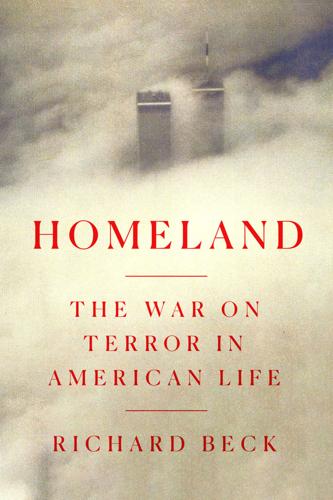
Homeland: The War on Terror in American Life
by
Richard Beck
Published 2 Sep 2024
He thought the shape would turn the memorial into a celebration of the religion that had killed his son and that the jury would “be a laughingstock” if the project were allowed to go forward.[6] Burnett’s objections were more or less dismissed at the outset, but then a conservative blogger took up the cause. Where Burnett had seen the crescent shape as an unintentional mistake on the architects’ part, Alec Rawls, who maintained a site called Error Theory (and who was also the son of philosopher John Rawls), thought the Murdochs knew exactly what they were doing. He started up a new website, CrescentOfBetrayal.com, where he explained that the crescent shape of the maple-lined pathway was just the tip of the iceberg—the whole memorial was a coded celebration of Islamic extremism. His site alleged that the crescent was geographically oriented toward Mecca, the holy city that observant Muslims face during prayer.

Engineering Security
by
Peter Gutmann
Despite the opinions of the contributors quoted above, the lack of usability of the password-entry mechanism does have real security consequences, which are discussed in “Password Display” on page 587. The nasty thing about programming for the self is that it’s (usually) not even deliberate. Philosopher John Rawls argued in his landmark book “A Theory of Justice” that the principles of justice should be derived from behind a ‘veil of ignorance’ in which the people making the rules don’t know what place they’ll have in the system to which the rules are applied. In other words if you don’t know whether you’re one of the haves or have-nots (where what you have, or don’t, is money, power, looks, and so on) then you won’t end up creating a system that either inadvertently or deliberately benefits one of those classes [21].
…
[19\ [20] [21] [22] [23] [24] “Add signal handlers for controlling password entry visibility”, Chris Lumens, posting to the anaconda-patches@lists.fedorahosted.org mailing list, 9 April 2013. “Do you think this is a security risk and if not is it a bad UI decision?”, Dan Mashal, posting to the devel@lists.fedoraproject.org mailing list, 3 May 2013. “A Theory of Justice”, John Rawls, Oxford University Press, 1972. “The Inmates Are Running the Asylum: Why High Tech Products Drive Us Crazy and How To Restore The Sanity”, Alan Cooper, Sams, 1999. “PKI Technology Survey and Blueprint”, Peter Gutmann, Proceedings of the 2006 New Security Paradigms Workshop (NSPW’06), October 2006, p.109.
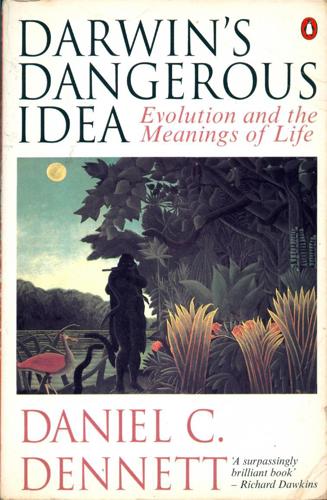
Darwin's Dangerous Idea: Evolution and the Meanings of Life
by
Daniel C. Dennett
Published 15 Jan 1995
Following in his footsteps, Jean-Jacques Rousseau and various English thinkers, includingjohn Locke, offered their own rational reconstructions of the birth of society. More intricate "contractarian" Just So Stories have been exploited in recent years. The most famous, and most sophisticated, is John Rawls' Theory of Justice (1971), but there are others. They all agree in seeing morality to be, in one way or another, an emergent product of a major innovation in perspective that has been achieved by just one species, Homo sapiens, taking advantage of its unique extra medium of information {456} transfer, language.
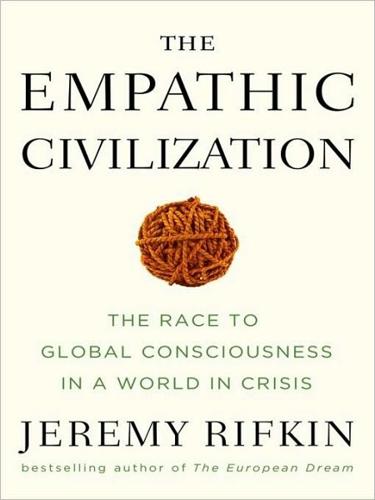
The Empathic Civilization: The Race to Global Consciousness in a World in Crisis
by
Jeremy Rifkin
Published 31 Dec 2009
At the same time that AA was getting off the ground, psychologists were beginning to use group intervention techniques in psychotherapy. The original impetus was the large number of psychological casualties in World War II, people suffering from traumatic stress disorders that overwhelmed the limited treatment capacity of government psychologists. A number of psychologists, including Carl Rogers, John Rawlings, and William Sargant in the United States, and Eric Trist in Britain, began to see patients in group settings. Their work built off of earlier efforts dating back to the 1920s. Alfred Adler, who was one of Freud’s leading disciples, began using “collective therapy” with adults and children in his child guidance clinics.
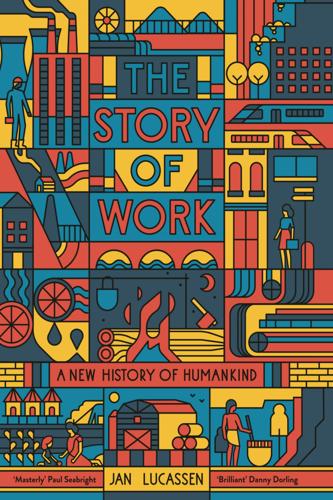
The Story of Work: A New History of Humankind
by
Jan Lucassen
Published 26 Jul 2021
No matter how many mistakes are made, the comparative method is simply indispensable for a historical analysis such as this book. 22. De Waal 1996 and 2009. He positions himself in line with Pyotr Kropotkin (Mutual Aid, 1902: who ‘had an inkling about it’; and The Conquest of Bread, 1906) and especially Robert Ludlow Trivers, the originator of the theory of reciprocal altruism, an approach related to that of John Rawls. For the opposing traditions of ‘the war of all against all’ (Hobbes; Huxley; Durkheim) versus Rousseau to Kropotkin: R.B. Lee & Daly 2004, 1; Kelly 1995, 1; Graeme Barker 2006, 44. Polanyi talks of ‘reciprocity’ with ‘symmetry’ (Polanyi 1944, chs 4–6; Polanyi, Arensberg & Pearson 1957; Dalton 1971). 23.
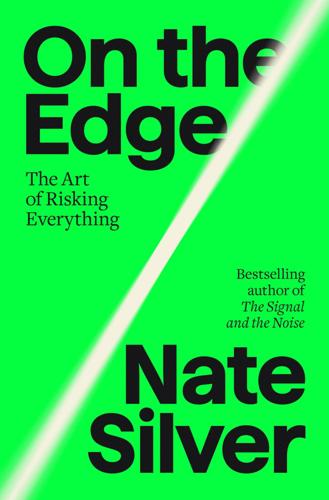
On the Edge: The Art of Risking Everything
by
Nate Silver
Published 12 Aug 2024
But “especially when something is easy to mathematicize it in one way, the tempting thing is then to say, ‘Oh, that must be the best way or the only way to mathematicize it.’ ” When you have a hammer, everything looks like a nail—and utilitarianism can be an awfully blunt instrument. There are alternatives, though—mathematical ways to do philosophy that don’t just rely on summing up all utils across the known universe. The late Princeton philosopher John Rawls, in A Theory of Justice, proposed maximizing the well-being of the least well-off person in society. In principle, you could build some sort of mathematical model to do that. Nick Bostrom, an Oxford philosopher who is associated with EA although probably falls more into the rationalist camp, told me about his idea he called a “moral parliament,” “where I’m uncertain about which ethical theory is correct and I would give them each some weight.
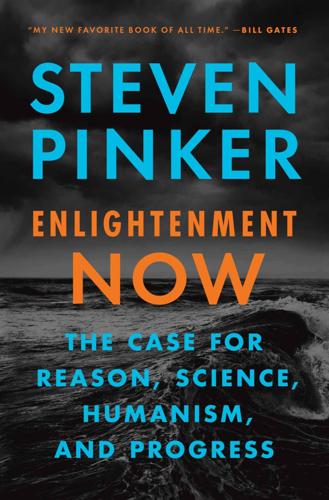
Enlightenment Now: The Case for Reason, Science, Humanism, and Progress
by
Steven Pinker
Published 13 Feb 2018
Figure 8-4: Extreme poverty (proportion), 1820–2015 Sources: Our World in Data, Roser & Ortiz-Ospina 2017, based on data from Bourguignon & Morrison 2002 (1820–1992), averaging their “Extreme poverty” and “Poverty” percentages for commensurability with data on “Extreme poverty” for 1981–2015 from the World Bank 2016g. The world’s progress can be appreciated in two ways. By one reckoning, the proportions and per capita rates I have been plotting are the morally relevant measure of progress, because they fit with John Rawls’s thought experiment for defining a just society: specify a world in which you would agree to be incarnated as a random citizen from behind a veil of ignorance as to that citizen’s circumstances.24 A world with a higher percentage of long-lived, healthy, well-fed, well-off people is a world in which one would prefer to play the lottery of birth.
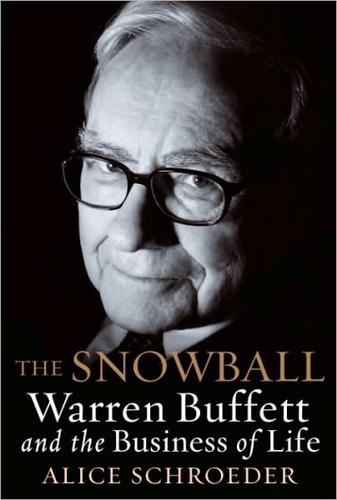
The Snowball: Warren Buffett and the Business of Life
by
Alice Schroeder
Published 1 Sep 2008
However, it is the second word—“lottery” versus “roulette”—that changes a bad choice to bad luck: from a child who is born unwanted to a woman who trusts to random chance, to a child who is born in cruel circumstances because of random chance. 57. “I Didn’t Do It Alone,” a report by Chuck Collins’s organization, Responsible Wealth. 58. See John Rawls, A Theory of Justice, Cambridge: The Belknap Press of Harvard University Press, 1971. The Ovarian Lottery resembles Rawls’s view, which is a form of determinism—and assumes that much, though not necessarily all, of what happens to people is determined by the present and past, for example, through their genes, or the luck of where they are born and when.